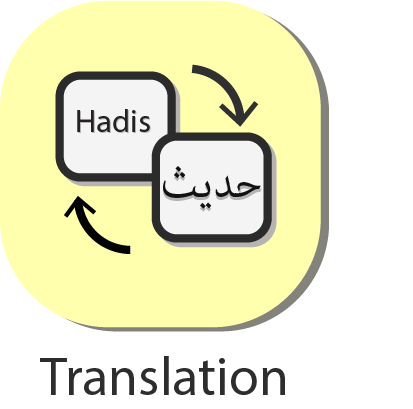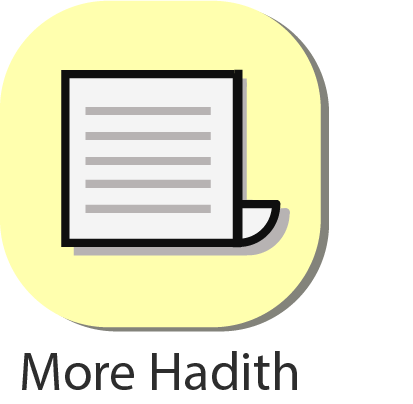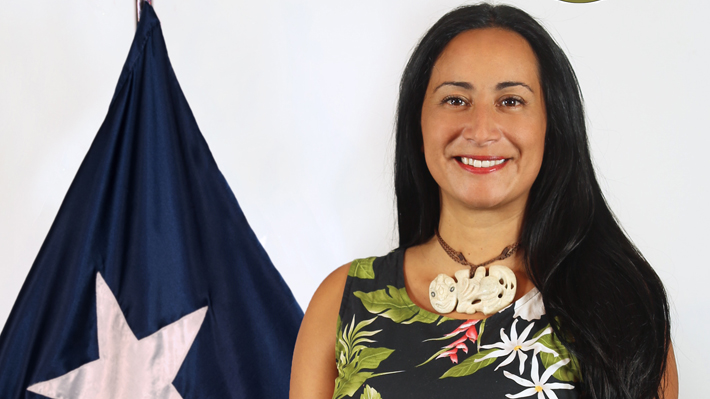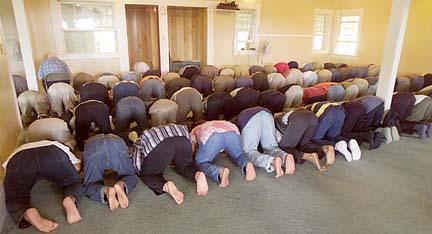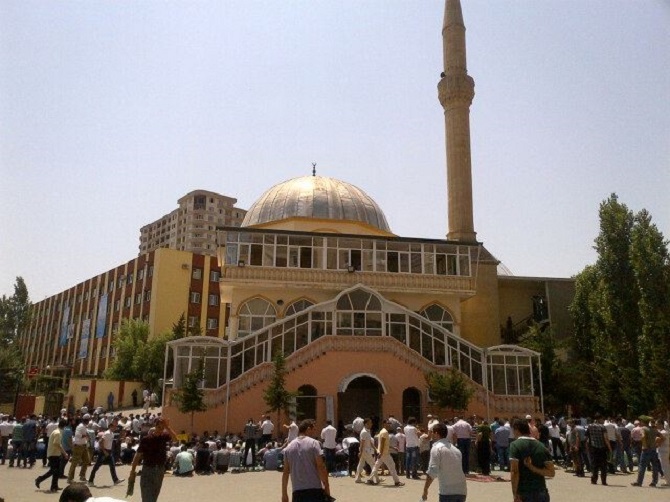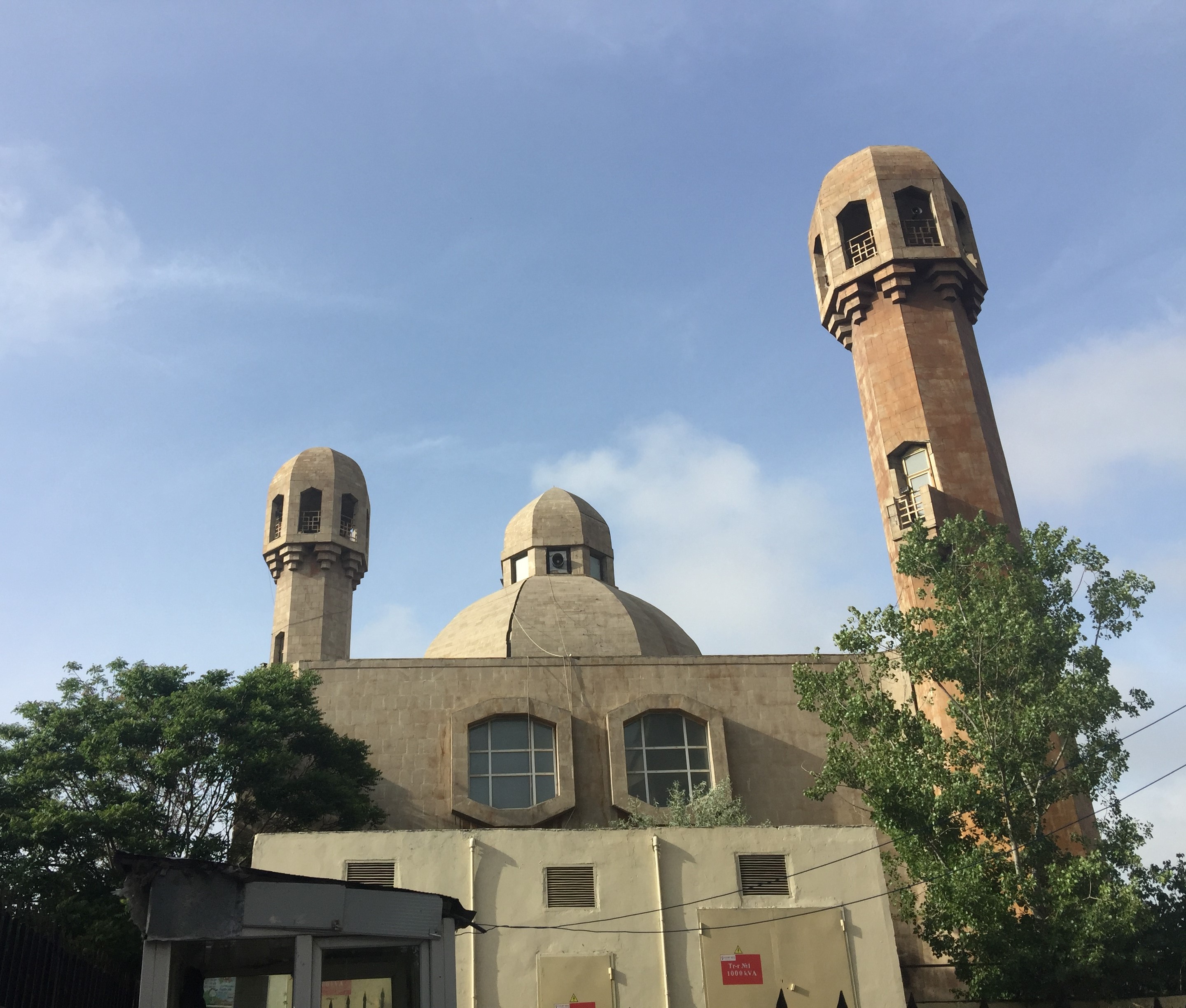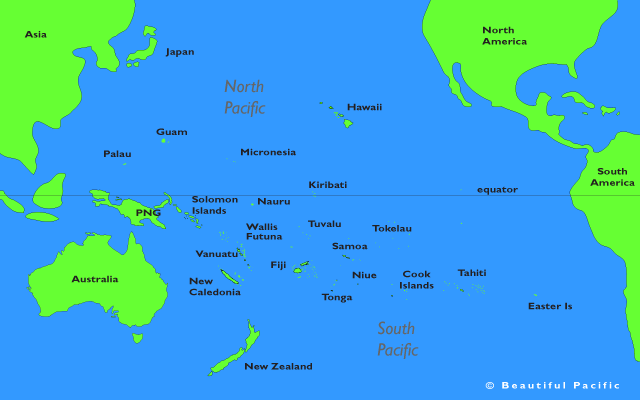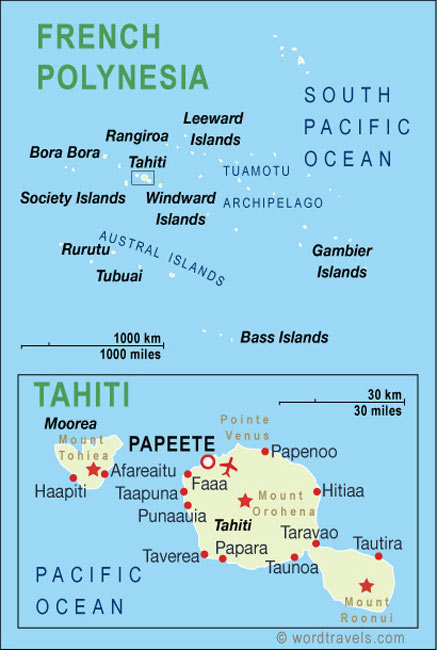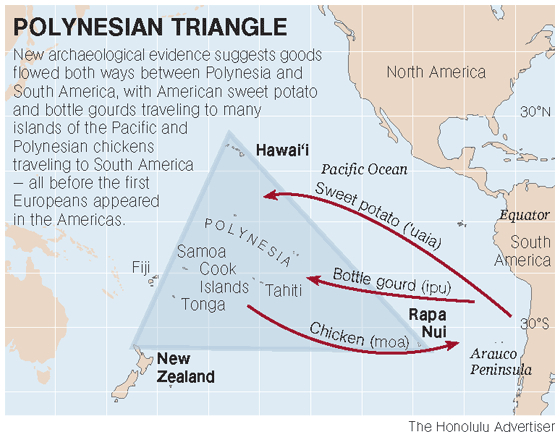600101 - Al-Qori'ah, 102 - At-Takasur
ISLAM : Misunderstood more....
Q.600 : 365/ 365...Q.594:364 / 365
_____________________________________________
MEMORIZATION TABLE

![]() : Khamis : V : 99-100
: Khamis : V : 99-100 
______________________________________________

Southland Muslim Association's mosque ( Invercargill Islamic Centre ) – the southern most mosque in the world.


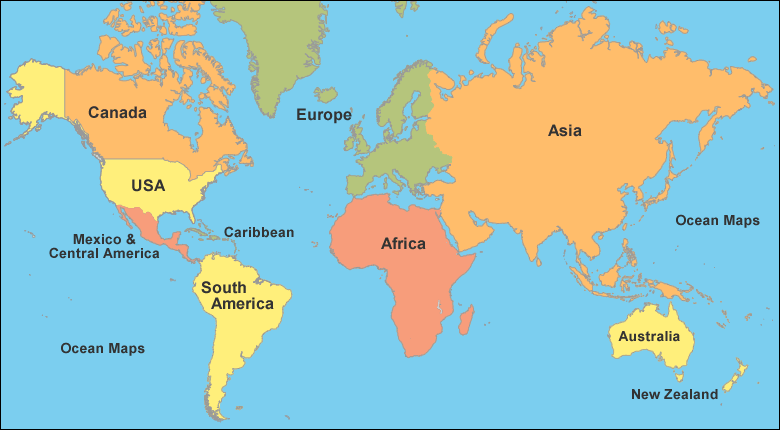



Abdul-Jabbar is not your typical Southland dairy farmer. Nor is he a typical Imam, or Islamic religious leader.
"Whereas in a lot of [Islamic] centres, the Imams are trained scholars, I'm more of a Massey-taught Imam," grins the bike-mad designated leader of the Southland Muslim Association's mosque – the southernmost in the world.
/media.nzherald.co.nz/webcontent/image/jpg/201752/SCCZEN_051217NZHBPSOUTHLANDMOSQUE8_master.jpg)
"Mine is not the most traditional pathway, but it goes to show that Islam isn't limited to a certain background as it can be perceived. You can be anything and everything; it's a way of life more than anything else."
Abdul-Jabbar was born in Pontianak, the capital of the Indonesian province of West Kalimantan on the island of Borneo, in 1975. Raised Muslim, in multi-ethnic Borneo his upbringing was also far from traditional.
His late father was a businessman dealing in pharmaceuticals, textiles and infrastructure construction. Young Reza shadowed him everywhere, heaving his briefcase to meetings, running errands, grinding coffee.
They lived on a sprawling urban section with orchards and mango plantations alongside deer, cockerels, and quail. They even had pet orang-utans.
"They were like brothers or sisters to me. We used to take them to town, holding hands, and get ice-cream. It was so cool," Abdul-Jabbar says.
"West Borneo wasn't like Jakarta, it was more like Auckland 20 years ago where everyone wanted a quarter-acre section. It gave me a good start to the farming thing."
/arc-anglerfish-syd-prod-nzme.s3.amazonaws.com/public/GVC6R5JMCFAE5LASVPOWPFZNXI.jpg)
At the age of 7, he told his father he wanted to be a farmer. Together they formulated a plan to pursue his dream.
New Zealand's global farming reputation was attractive and after some secondary schooling in Singapore, Abdul-Jabbar was accepted for his final year Glenfield College in Auckland.
He then studied agricultural science at Massey University before completing a Masters and becoming assistant herd manager on a 750-cow dairy farm outside Hamilton. Within months, he was promoted to farm manager at just 22 years old.
By then, he'd also met Silvia, a banking and finance major working for Westpac in Wellington. She shifted to Hamilton and worked at National bank before a stint at Ministry for Social Development and then starting a family.
After sharemilking in Rotorua and Winton, the Abdul-Jabbars bought 185-hectares south-east of Invercargill in 2007. They soon bought neighbouring properties and now operate two dairy farms and three support blocks, milking more than 1000 cows a day.
It's been a great move for the Abdul-Jabbars and their five children: Aisha, 15, Hafsha, 13, Maryam, 10, Omar, 7, and 3-year-old Talha. Despite Southland being known as a conservative region, they've become prominent members of the local community.
/arc-anglerfish-syd-prod-nzme.s3.amazonaws.com/public/TBJAO6T5W5FKRLE26NJ46GPBNI.jpg)
Reza is a member of the Gorge Road School board of trustees while Silvia is on the PTA, while they both act as translators for police and as Consulate-general for the Republic of Indonesia.
Reza lectures for schools and other organisations while being involved in a research centre for dairy production. All the while running five farms, caring for five children, hunting wild geese, goats, and deer, touring Harley Davidsons across the Catlins, and praying to Allah six times a day.
"You can always sleep less," Abdul-Jabbar says, tucking into stuffed chicken prepared earlier by Silvia. He spreads homemade chilli and passes the jar, warning with smile, that it's got a kick.
"Yes, we're busy, everyone is busy but you've got to give something. It's good to make money and have businesses, but nothing is more rewarding than serving others. You can always do something, at lunchtime, in the evening. We have an open door policy at the farm here and it's the same for the mosque."
Taxis are parked out front, shoes stacked at the door. Latecomers shuffle inside, dropping coins or notes into a donation box, before kneeling on a prayer mat at the back of the room.
They shake hands and quietly offer greetings. It's warm and stuffy inside the mosque, curtains shading the sun. Copies of the Holy Quran are stacked in ornate shelves but otherwise the room is sparse. Women and children listen to the sermon from behind an adjoining wall. Abdul-Jabbar's youngest son, Talha peeks with wide brown eyes through a gap in the separating curtain.
"Muslims have an obligation in this life that supersedes personal fulfilment," says Abdul-Jabbar from his pulpit, a tiered wooden chair with carved balustrades.
His weekly sermon, at 1.45pm every Friday, is a reflection of how he lives his life. "A believer is one who positively affects those around us."
/arc-anglerfish-syd-prod-nzme.s3.amazonaws.com/public/GE3H6GADYNEIZFQCLT7HRZRQNM.jpg)
There was no mosque when the Abdul-Jabbars first landed in Southland ten years ago. They were involved in founding the Southland Muslims Association for the growing Islamic population.
The association bought a small industrial building in the sleepy Invercargill suburb of Hawthorndale and in 2010 opened a permanent masjid, or mosque, and community centre to serve around 80 Muslim families in the region.
At first, locals eyed the mosque with suspicion. It wasn't helped when a passenger of a Pakistani-born driver launched a foul-mouthed anti-Islamic rant that was caught on camera about how he should "F*** off back to where you come from… you shouldn't be in New Zealand in the first place ... we don't require your Muslim bulls*** in this country."
The Southland Muslim Association accepted the remorseful Invercargill passenger's subsequent apology and invited him to the mosque to broaden his mind on the religion.
And a year later, the congregation learned they were being covertly watched by undercover Security Intelligence Service (SIS) officers.
Prime Minister John Key confirmed at the time that mosques around New Zealand were being monitored after a Kiwi Muslim allegedly linked to Al-Qaeda was killed by a US drone strike in Yemen.
Christopher Havard had spent time in Invercargill around three years earlier and attended the mosque. Abdul-Jabbar said 27-year-old Havard had introduced himself as Saleem but there had been nothing to suggest radicalisation.
Since then, Abdul-Jabbar has worked closely with both security agencies and police, and welcomes people inside the mosque anytime.
/arc-anglerfish-syd-prod-nzme.s3.amazonaws.com/public/N753M2KXWJCCPB2EPRQ24P2KQE.jpg)
"There is nothing to hide," he says.
"Our main objective is to portray the right form or image of Islam to the community, in particular, and to the country as a whole. And it's in our best interests that people are not misled.
"When you have people who have got the wrong understanding and blowing themselves up or inciting hatred, then you have to wonder: where did he or she learn that particular brand of Islam? Because it's certainly not what Islam is supposed to be. With the likes of ISIS and Al-Qaeda, their targets are often the person who is unlearned. Or else it's people who have nothing to lose.
"You wouldn't do that if you had plenty to live for. You see bombings like Paris and London, those guys are losers. Their track histories are they are druggies or prostitution, that sort of thing, and then they want to be religious all of a sudden."
Immigration New Zealand earlier this year named Invercargill as a new refugee settlement location because of its employment opportunities. A group of Colombians fleeing paramilitary gangs will be the first to be resettled in the area, with more expected from war-torn Syria.
It's a move that Mayor Tim Shadbolt said had locals raising fears about the city becoming a resettlement location.
"Some people are very wary of it and think we may be inheriting a lot of social problems that are generated when you come from a war zone, but others are very tolerant of it," Shadbolt said.
/arc-anglerfish-syd-prod-nzme.s3.amazonaws.com/public/K5GMMTCA6FCU7KVENZ63325P3Y.jpg)
While Abdul-Jabbar admits that conservative Southlanders are wary of change, and can take time to accept newcomers, he believed it was "the best place in New Zealand".
"If you conduct yourself well, show people respect and good manners, then they're never going to be angry at you," he says.
"And in the mosque, if you are preaching the same, the building blocks of society, it's the same. Our job in Southland is easier than in most places.
"We have a lot of doctors and restaurants owners, respected, well-mannered people in town. You'd be pretty hard pressed to accuse your GP of being a terrorist. It's good to know the community, but it's more important that the community knows us."
After Abdul-Jabbar's Friday sermon, the congregation quickly disperses, back to work or study. Little Talha bursts from behind the curtain, "Dad!" He's desperate to return to the farm and ride the two-wheel motorbike.
Zamberi Matyounus shakes hands with the men as they leave. The white-bearded Malaysian who has lived in New Zealand for 35 years acts as a mentor and advisor to Abdul-Jabbar. The mosque has become integral to the lives of Southland Muslims, he says.
"It's very important for our religion that we are all together," says Matyounus. "Everyone, we are like brothers, we respect each other. Black, white, poor, rich, no matter what you are like, we are brothers."
Once everyone has left, Abdul-Jabbar swaps his white robe for his leather jacket and tells Silvia and Talha he'll see them at home. He straddles the Harley and phones back Brent the digger driver. I
It's been a productive growing season and the outlook is dry. "Everything is looking good eh," he says, firing up the motorbike, flicking down his visor and riding into the high afternoon sun.
___________________________________________
ISLAMOPHOBIA WATCH
Documenting anti-Muslim bigotry
French Polynesia’s first imam receiving death threats over mosque
Posted on by Bob Pitt

The lawyer acting for French Polynesia’s first imam [Hishan el-Barkani, pictured] says he has been given death threats over last week’s brief opening of Tahiti’s first mosque.
The city administration of Papeete shut thr orayer room a day after it opened, saying the premises failed to meet safety standards for public meetings and could only be used as office space.
The news about the mosque caused an uproar, with the A Tia Porinetia political party warning against the risk of extremism while the government restated the constitutional right to freedom of assembly and religion.
The issue triggered a debate in the assembly, with a member of the ruling majority and deputy mayor of Papeete, Charles Fong Loi, saying the 23-year-old imam has a provocative attitude and fails to give proof of intellectual honesty.
One anti-independence member said while he wants to keep the traditional hospitality, it cannot be extended to anything and anyone in the name of secularism.
Addressing his pro-French rivals, the pro-independence opposition leader, Oscar Temaru, said by coming to Tahiti the imam simply travelled within France, and in France there are mosques.
Radio New Zealand International, 20 October 2013
Anti-mosque demonstration in French Polynesia

Tuesday, July 15th, 2014
About 1,000 people in French Polynesia have staged a demonstration marching through Papeete in protest at plans to build Tahiti’s first mosque.
The rally was directed mainly at the 23-year-old imam, Hicham El Barkani, from Seine-Saint-Denis, who last year set up a prayer room in town, and is now asking for donations from Muslims in France for a Tahiti mosque.
Some attending the demonstration say El Barkain’s form of Islam is dangerous while some women at the rally have been quoted as saying they fear losing their rights.
Hicham El Berkani did part of his theological training in Egypt and at the mosque of Medina in Saudi Arabia.
The mosque of Medina is associated with Salafism, a radical branch of the Sunni Moslem religion.
It is said to advocate a return to the original Islam and the implementation of Sharia.
On his return to France, El Barkani also attended the Bilal mosque in Saint-Denis, another place of worship affiliated with Salafism.
Authorities in French Polynesia have shown interest in Hicham El Barkani as a result of his connection with these radical circles.
French Polynesian authorities are also concerned that the United States has refused the presence of Hicham El Berkani on American soil.
This demonstration is the most recent of a number of protests, and attacks that have been made on Muslim property, in Papa’ete.
Last year a prayer room at a Muslim Centre in was desecrated. A pig’s head was deposited there and pig’s blood was splashed on the walls.
According to a report in the Journal des Mosquees de France another act of desecration was said to have occurred on 27 June.
El Berkani told the Journal that a pig’s head was thrown in front of the centre located 11 Rue Paul Gauguin in Pape’ete.
______________________________________________
______________________________________________
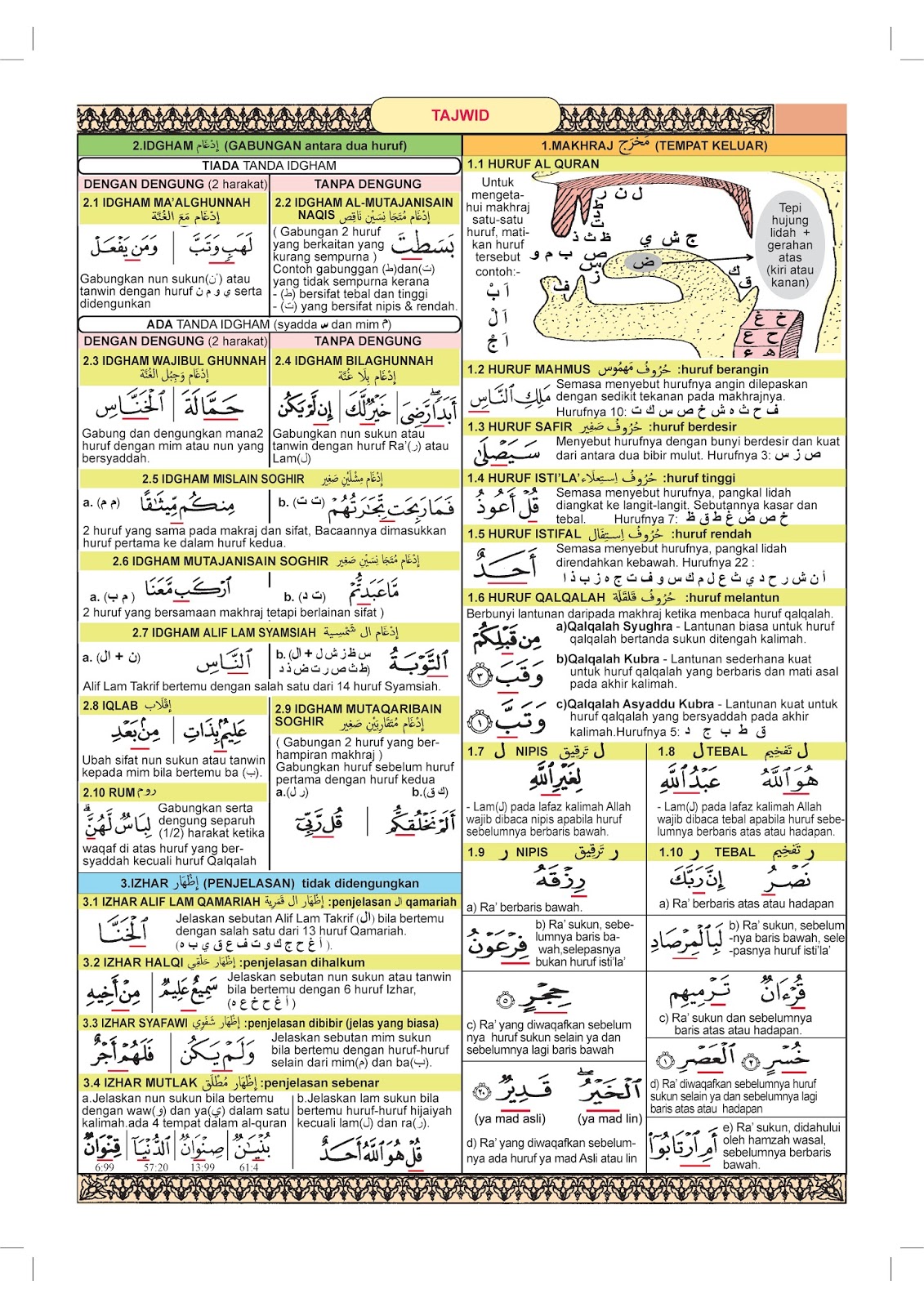

______________________________________________
______________________________________________
_______________________________________
Tafsir Muyassar تفسير المیسر
Saheeh International
Basmeih
Ma Jian
E......ARABIC : ENGLISH : MALAY : CHINESE
Tafsir Muyassar تفسير المیسر : Saheeh International : Basmeih : Ma Jian
_____________________________________________
Tafsir Muyassar : تفسير المیسر
١٠ وَحُصِّلَ مَا فِي الصُّدُورِ
١٠ واستُخرج ما استتر في الصدور من خير أو شر.
١١ إِنَّ رَبَّهُمْ بِهِمْ يَوْمَئِذٍ لَخَبِيرٌ
١١ إن ربهم بهم وبأعمالهم يومئذ لخبير، لا يخفى عليه شيء من ذلك.
----------------------------------------
101 - Al-Qori'ah,
بِسْمِ اللَّهِ الرَّحْمَٰنِ الرَّحِيمِ
بسم الله الرحمن الرحيم
١ الْقَارِعَةُ
١ الساعة التي تقرع قلوب الناس بأهوالها.
٢ مَا الْقَارِعَةُ
٢ أيُّ شيء هذه القارعة؟
٣ وَمَا أَدْرَاكَ مَا الْقَارِعَةُ
٣ وأيُّ شيء أعلمك بها؟
٤ يَوْمَ يَكُونُ النَّاسُ كَالْفَرَاشِ الْمَبْثُوثِ
٤ في ذلك اليوم يكون الناس في كثرتهم وتفرقهم وحركتهم كالفراش المنتشر، وهو الذي يتساقط في النار.
٥ وَتَكُونُ الْجِبَالُ كَالْعِهْنِ الْمَنْفُوشِ
٥ وتكون الجبال كالصوف متعدد الألوان الذي يُنْفَش باليد، فيصير هباء ويزول.
٦ فَأَمَّا مَنْ ثَقُلَتْ مَوَازِينُهُ
٦ فأما من رجحت موازين حسناته، فهو في حياة مرضية في الجنة.
٧ فَهُوَ فِي عِيشَةٍ رَاضِيَةٍ
٧ فأما من رجحت موازين حسناته، فهو في حياة مرضية في الجنة.
٨ وَأَمَّا مَنْ خَفَّتْ مَوَازِينُهُ
٨ وأما من خفت موازين حسناته، ورجحت موازين سيئاته، فمأواه جهنم.
٩ فَأُمُّهُ هَاوِيَةٌ
٩ وأما من خفت موازين حسناته، ورجحت موازين سيئاته، فمأواه جهنم.
١٠ وَمَا أَدْرَاكَ مَا هِيَهْ
١٠ وما أدراك -أيها الرسول- ما هذه الهاوية؟
١١ نَارٌ حَامِيَةٌ
١١ إنها نار قد حَمِيت من الوقود عليها.
----------------------------------------
102 - At-Takasur
بِسْمِ اللَّهِ الرَّحْمَٰنِ الرَّحِيمِ
بسم الله الرحمن الرحيم
١ أَلْهَاكُمُ التَّكَاثُرُ
١ شغلكم عن طاعة الله التفاخر بكثرة الأموال والأولاد.
٢ حَتَّىٰ زُرْتُمُ الْمَقَابِرَ
٢ واستمر اشتغالكم بذلك إلى أن صرتم إلى المقابر، ودُفنتم فيها.
٣ كَلَّا سَوْفَ تَعْلَمُونَ
٣ ما هكذا ينبغي أن يُلْهيكم التكاثر بالأموال، سوف تتبيَّنون أن الدار الآخرة خير لكم.
٤ ثُمَّ كَلَّا سَوْفَ تَعْلَمُونَ
٤ ثم احذروا سوف تعلمون سوء عاقبة انشغالكم عنها.
٥ كَلَّا لَوْ تَعْلَمُونَ عِلْمَ الْيَقِينِ
٥ ما هكذا ينبغي أن يلهيكم التكاثر بالأموال، لو تعلمون حق العلم لانزجرتم، ولبادرتم إلى إنقاذ أنفسكم من الهلاك. لتبصرُنَّ الجحيم، ثم لتبصرُنَّها دون ريب، ثم لتسألُنَّ يوم القيامة عن كل أنواع النعيم.
٦ لَتَرَوُنَّ الْجَحِيمَ
٦ ما هكذا ينبغي أن يلهيكم التكاثر بالأموال، لو تعلمون حق العلم لانزجرتم، ولبادرتم إلى إنقاذ أنفسكم من الهلاك. لتبصرُنَّ الجحيم، ثم لتبصرُنَّها دون ريب، ثم لتسألُنَّ يوم القيامة عن كل أنواع النعيم.
٧ ثُمَّ لَتَرَوُنَّهَا عَيْنَ الْيَقِينِ
٧ ما هكذا ينبغي أن يلهيكم التكاثر بالأموال، لو تعلمون حق العلم لانزجرتم، ولبادرتم إلى إنقاذ أنفسكم من الهلاك. لتبصرُنَّ الجحيم، ثم لتبصرُنَّها دون ريب، ثم لتسألُنَّ يوم القيامة عن كل أنواع النعيم.
٨ ثُمَّ لَتُسْأَلُنَّ يَوْمَئِذٍ عَنِ النَّعِيمِ
٨ ما هكذا ينبغي أن يلهيكم التكاثر بالأموال، لو تعلمون حق العلم لانزجرتم، ولبادرتم إلى إنقاذ أنفسكم من الهلاك. لتبصرُنَّ الجحيم، ثم لتبصرُنَّها دون ريب، ثم لتسألُنَّ يوم القيامة عن كل أنواع النعيم.
_____________________________________________
____________________________________________
Saheeh International
١٠ وَحُصِّلَ مَا فِي الصُّدُورِ
10 And that within the breasts is obtained,
١١ إِنَّ رَبَّهُمْ بِهِمْ يَوْمَئِذٍ لَخَبِيرٌ
11 Indeed, their Lord with them, that Day, is [fully] Acquainted.
----------------------------------------
101 - Al-Qori'ah,
بِسْمِ اللَّهِ الرَّحْمَٰنِ الرَّحِيمِ
In the name of Allah, the Entirely Merciful, the Especially Merciful.
١ الْقَارِعَةُ
1 The Striking Calamity -
٢ مَا الْقَارِعَةُ
2 What is the Striking Calamity?
٣ وَمَا أَدْرَاكَ مَا الْقَارِعَةُ
3 And what can make you know what is the Striking Calamity?
٤ يَوْمَ يَكُونُ النَّاسُ كَالْفَرَاشِ الْمَبْثُوثِ
4 It is the Day when people will be like moths, dispersed,
٥ وَتَكُونُ الْجِبَالُ كَالْعِهْنِ الْمَنْفُوشِ
5 And the mountains will be like wool, fluffed up.
٦ فَأَمَّا مَنْ ثَقُلَتْ مَوَازِينُهُ
6 Then as for one whose scales are heavy [with good deeds],
٧ فَهُوَ فِي عِيشَةٍ رَاضِيَةٍ
7 He will be in a pleasant life.
٨ وَأَمَّا مَنْ خَفَّتْ مَوَازِينُهُ
8 But as for one whose scales are light,
٩ فَأُمُّهُ هَاوِيَةٌ
9 His refuge will be an abyss.
١٠ وَمَا أَدْرَاكَ مَا هِيَهْ
10 And what can make you know what that is?
١١ نَارٌ حَامِيَةٌ
11 It is a Fire, intensely hot.
----------------------------------------
102 - At-Takasur
بِسْمِ اللَّهِ الرَّحْمَٰنِ الرَّحِيمِ
In the name of Allah, the Entirely Merciful, the Especially Merciful.
١ أَلْهَاكُمُ التَّكَاثُرُ
1 Competition in [worldly] increase diverts you
٢ حَتَّىٰ زُرْتُمُ الْمَقَابِرَ
2 Until you visit the graveyards.
٣ كَلَّا سَوْفَ تَعْلَمُونَ
3 No! You are going to know.
٤ ثُمَّ كَلَّا سَوْفَ تَعْلَمُونَ
4 Then no! You are going to know.
٥ كَلَّا لَوْ تَعْلَمُونَ عِلْمَ الْيَقِينِ
5 No! If you only knew with knowledge of certainty...
٦ لَتَرَوُنَّ الْجَحِيمَ
6 You will surely see the Hellfire.
٧ ثُمَّ لَتَرَوُنَّهَا عَيْنَ الْيَقِينِ
7 Then you will surely see it with the eye of certainty.
٨ ثُمَّ لَتُسْأَلُنَّ يَوْمَئِذٍ عَنِ النَّعِيمِ
8 Then you will surely be asked that Day about pleasure.
___________________________________________
___________________________________________
Basmeih
١٠ وَحُصِّلَ مَا فِي الصُّدُورِ
10 Dan dikumpul serta didedahkan segala yang terpendam dalam dada?
١١ إِنَّ رَبَّهُمْ بِهِمْ يَوْمَئِذٍ لَخَبِيرٌ
11 Sesungguhnya Tuhan mereka Maha Mengetahui dengan mendalam tentang (balasan yang diberikanNya kepada) mereka - pada hari itu.
----------------------------------------
101 - Al-Qori'ah,
بِسْمِ اللَّهِ الرَّحْمَٰنِ الرَّحِيمِ
Dengan nama Allah, Yang Maha Pemurah, lagi Maha Mengasihani.
١ الْقَارِعَةُ
1 Hari yang menggemparkan,
٢ مَا الْقَارِعَةُ
2 Apa dia hari yang menggemparkan itu?
٣ وَمَا أَدْرَاكَ مَا الْقَارِعَةُ
3 Dan apa jalannya engkau dapat mengetahui kedahsyatan hari yang menggemparkan itu? -
٤ يَوْمَ يَكُونُ النَّاسُ كَالْفَرَاشِ الْمَبْثُوثِ
4 (Hari itu ialah: hari kiamat), hari manusia menjadi seperti kelkatu yang terbang berkeliaran,
٥ وَتَكُونُ الْجِبَالُ كَالْعِهْنِ الْمَنْفُوشِ
5 Dan gunung-ganang menjadi seperti bulu yang dibusar berterbangan.
٦ فَأَمَّا مَنْ ثَقُلَتْ مَوَازِينُهُ
6 Setelah berlaku demikian, maka (manusia akan diberikan tempatnya menurut amal masing-masing); adapun orang yang berat timbangan amal baiknya, -
٧ فَهُوَ فِي عِيشَةٍ رَاضِيَةٍ
7 Maka ia berada dalam kehidupan yang senang lenang.
٨ وَأَمَّا مَنْ خَفَّتْ مَوَازِينُهُ
8 Sebaliknya orang yang ringan timbangan amal baiknya, -
٩ فَأُمُّهُ هَاوِيَةٌ
9 Maka tempat kembalinya ialah "Haawiyah"
١٠ وَمَا أَدْرَاكَ مَا هِيَهْ
10 Dan apa jalannya engkau dapat mengetahui, apa dia "Haawiyah" itu?
١١ نَارٌ حَامِيَةٌ
11 (Haawiyah itu ialah): api yang panas membakar.
----------------------------------------
102 - At-Takasur
بِسْمِ اللَّهِ الرَّحْمَٰنِ الرَّحِيمِ
Dengan nama Allah, Yang Maha Pemurah, lagi Maha Mengasihani.
١ أَلْهَاكُمُ التَّكَاثُرُ
1 Kamu telah dilalaikan (daripada mengerjakan amal bakti) oleh perbuatan berlumba-lumba untuk mendapat dengan sebanyak-banyaknya (harta benda, anak-pinak pangkat dan pengaruh), -
٢ حَتَّىٰ زُرْتُمُ الْمَقَابِرَ
2 Sehingga kamu masuk kubur.
٣ كَلَّا سَوْفَ تَعْلَمُونَ
3 Jangan sekali-kali (bersikap demikian)! Kamu akan mengetahui kelak (akibatnya yang buruk semasa hendak mati)!
٤ ثُمَّ كَلَّا سَوْفَ تَعْلَمُونَ
4 Sekali lagi (diingatkan): jangan sekali-kali (kamu bersikap demikian)! Kamu akan mengetahui kelak akibatnya yang buruk pada hari kiamat)!
٥ كَلَّا لَوْ تَعْلَمُونَ عِلْمَ الْيَقِينِ
5 Demi sesungguhnya! Kalaulah kamu mengetahui - (apa yang kamu akan hadapi) - dengan pengetahuan yang yakin, (tentulah kamu akan mengerjakan perkara-perkara yang menjadi bekalan kamu untuk hari akhirat).
٦ لَتَرَوُنَّ الْجَحِيمَ
6 (Ingatlah) demi sesungguhnya! - Kamu akan melihat neraka yang marak menjulang.
٧ ثُمَّ لَتَرَوُنَّهَا عَيْنَ الْيَقِينِ
7 Selepas itu - demi sesungguhnya! - kamu (wahai orang-orang yang derhaka) akan melihatnya dengan penglihatan yang yakin (semasa kamu dilemparkan ke dalamnya)!
٨ ثُمَّ لَتُسْأَلُنَّ يَوْمَئِذٍ عَنِ النَّعِيمِ
8 Selain dari itu, sesungguhnya kamu akan ditanya pada hari itu, tentang segala nikmat (yang kamu telah menikmatinya)!
______________________________________________
____________________________________________
Ma Jian
١٠ وَحُصِّلَ مَا فِي الصُّدُورِ
10 胸中的秘密被显示的时侯,
١١ إِنَّ رَبَّهُمْ بِهِمْ يَوْمَئِذٍ لَخَبِيرٌ
11 在那日, 他们的主, 确是彻知他们的。
----------------------------------------
101 - Al-Qori'ah,
بِسْمِ اللَّهِ الرَّحْمَٰنِ الرَّحِيمِ
奉至仁至慈的真主之名
١ الْقَارِعَةُ
1 大难,
٢ مَا الْقَارِعَةُ
2 大难是什么?
٣ وَمَا أَدْرَاكَ مَا الْقَارِعَةُ
3 你怎能知道大难是什么?
٤ يَوْمَ يَكُونُ النَّاسُ كَالْفَرَاشِ الْمَبْثُوثِ
4 在那日, 众人将似分散的飞蛾,
٥ وَتَكُونُ الْجِبَالُ كَالْعِهْنِ الْمَنْفُوشِ
5 山岳将似疏松的采绒。
٦ فَأَمَّا مَنْ ثَقُلَتْ مَوَازِينُهُ
6 至於善功的份量较重者,
٧ فَهُوَ فِي عِيشَةٍ رَاضِيَةٍ
7 将在满意的生活中;
٨ وَأَمَّا مَنْ خَفَّتْ مَوَازِينُهُ
8 至於善功的份量较轻者,
٩ فَأُمُّهُ هَاوِيَةٌ
9 他的归宿是深坑。
١٠ وَمَا أَدْرَاكَ مَا هِيَهْ
10 你怎能知道深坑里有什么?
١١ نَارٌ حَامِيَةٌ
11 有烈火。
----------------------------------------
102 - At-Takasur
بِسْمِ اللَّهِ الرَّحْمَٰنِ الرَّحِيمِ
奉至仁至慈的真主之名
١ أَلْهَاكُمُ التَّكَاثُرُ
1 竞赛富庶, 已使你们疏忽,
٢ حَتَّىٰ زُرْتُمُ الْمَقَابِرَ
2 直到你们去游坟地。
٣ كَلَّا سَوْفَ تَعْلَمُونَ
3 真的, 你们将来就知道了。
٤ ثُمَّ كَلَّا سَوْفَ تَعْلَمُونَ
4 真的, 你们将来就知道了。
٥ كَلَّا لَوْ تَعْلَمُونَ عِلْمَ الْيَقِينِ
5 真的, 假若你们有真知灼见, (你们必不疏忽),
٦ لَتَرَوُنَّ الْجَحِيمَ
6 你们必定看见火狱,
٧ ثُمَّ لَتَرَوُنَّهَا عَيْنَ الْيَقِينِ
7 然後, 你们必亲眼看见它。
٨ ثُمَّ لَتُسْأَلُنَّ يَوْمَئِذٍ عَنِ النَّعِيمِ
8 在那日, 你们必为恩泽而被审问。
_____________________________________________
_______________________________________________
E......ARABIC : ENGLISH : MALAY : CHINESE
Tafsir Muyassar تفسير المیسر : Saheeh International : Basmeih : Ma Jian
١٠ وَحُصِّلَ مَا فِي الصُّدُورِ
١٠ واستُخرج ما استتر في الصدور من خير أو شر.
10 And that within the breasts is obtained,
10 Dan dikumpul serta didedahkan segala yang terpendam dalam dada?
10 胸中的秘密被显示的时侯,
١١ إِنَّ رَبَّهُمْ بِهِمْ يَوْمَئِذٍ لَخَبِيرٌ
١١ إن ربهم بهم وبأعمالهم يومئذ لخبير، لا يخفى عليه شيء من ذلك.
11 Indeed, their Lord with them, that Day, is [fully] Acquainted.
11 Sesungguhnya Tuhan mereka Maha Mengetahui dengan mendalam tentang (balasan yang diberikanNya kepada) mereka - pada hari itu.
11 在那日, 他们的主, 确是彻知他们的。
----------------------------------------
101 - Al-Qori'ah,
بِسْمِ اللَّهِ الرَّحْمَٰنِ الرَّحِيمِ
بسم الله الرحمن الرحيم
In the name of Allah, the Entirely Merciful, the Especially Merciful.
Dengan nama Allah, Yang Maha Pemurah, lagi Maha Mengasihani.
奉至仁至慈的真主之名
١ الْقَارِعَةُ
١ الساعة التي تقرع قلوب الناس بأهوالها.
1 The Striking Calamity -
1 Hari yang menggemparkan,
1 大难,
٢ مَا الْقَارِعَةُ
٢ أيُّ شيء هذه القارعة؟
2 What is the Striking Calamity?
2 Apa dia hari yang menggemparkan itu?
2 大难是什么?
٣ وَمَا أَدْرَاكَ مَا الْقَارِعَةُ
٣ وأيُّ شيء أعلمك بها؟
3 And what can make you know what is the Striking Calamity?
3 Dan apa jalannya engkau dapat mengetahui kedahsyatan hari yang menggemparkan itu? -
3 你怎能知道大难是什么?
٤ يَوْمَ يَكُونُ النَّاسُ كَالْفَرَاشِ الْمَبْثُوثِ
٤ في ذلك اليوم يكون الناس في كثرتهم وتفرقهم وحركتهم كالفراش المنتشر، وهو الذي يتساقط في النار.
4 It is the Day when people will be like moths, dispersed,
4 (Hari itu ialah: hari kiamat), hari manusia menjadi seperti kelkatu yang terbang berkeliaran,
4 在那日, 众人将似分散的飞蛾,
٥ وَتَكُونُ الْجِبَالُ كَالْعِهْنِ الْمَنْفُوشِ
٥ وتكون الجبال كالصوف متعدد الألوان الذي يُنْفَش باليد، فيصير هباء ويزول.
5 And the mountains will be like wool, fluffed up.
5 Dan gunung-ganang menjadi seperti bulu yang dibusar berterbangan.
5 山岳将似疏松的采绒。
٦ فَأَمَّا مَنْ ثَقُلَتْ مَوَازِينُهُ
٦ فأما من رجحت موازين حسناته، فهو في حياة مرضية في الجنة.
6 Then as for one whose scales are heavy [with good deeds],
6 Setelah berlaku demikian, maka (manusia akan diberikan tempatnya menurut amal masing-masing); adapun orang yang berat timbangan amal baiknya, -
6 至於善功的份量较重者,
٧ فَهُوَ فِي عِيشَةٍ رَاضِيَةٍ
٧ فأما من رجحت موازين حسناته، فهو في حياة مرضية في الجنة.
7 He will be in a pleasant life.
7 Maka ia berada dalam kehidupan yang senang lenang.
7 将在满意的生活中;
٨ وَأَمَّا مَنْ خَفَّتْ مَوَازِينُهُ
٨ وأما من خفت موازين حسناته، ورجحت موازين سيئاته، فمأواه جهنم.
8 But as for one whose scales are light,
8 Sebaliknya orang yang ringan timbangan amal baiknya, -
8 至於善功的份量较轻者,
٩ فَأُمُّهُ هَاوِيَةٌ
٩ وأما من خفت موازين حسناته، ورجحت موازين سيئاته، فمأواه جهنم.
9 His refuge will be an abyss.
9 Maka tempat kembalinya ialah "Haawiyah"
9 他的归宿是深坑。
١٠ وَمَا أَدْرَاكَ مَا هِيَهْ
١٠ وما أدراك -أيها الرسول- ما هذه الهاوية؟
10 And what can make you know what that is?
10 Dan apa jalannya engkau dapat mengetahui, apa dia "Haawiyah" itu?
10 你怎能知道深坑里有什么?
١١ نَارٌ حَامِيَةٌ
١١ إنها نار قد حَمِيت من الوقود عليها.
11 It is a Fire, intensely hot.
11 (Haawiyah itu ialah): api yang panas membakar.
11 有烈火。
----------------------------------------
102 - At-Takasur
بِسْمِ اللَّهِ الرَّحْمَٰنِ الرَّحِيمِ
بسم الله الرحمن الرحيم
In the name of Allah, the Entirely Merciful, the Especially Merciful.
Dengan nama Allah, Yang Maha Pemurah, lagi Maha Mengasihani.
奉至仁至慈的真主之名
١ أَلْهَاكُمُ التَّكَاثُرُ
١ شغلكم عن طاعة الله التفاخر بكثرة الأموال والأولاد.
1 Competition in [worldly] increase diverts you
1 Kamu telah dilalaikan (daripada mengerjakan amal bakti) oleh perbuatan berlumba-lumba untuk mendapat dengan sebanyak-banyaknya (harta benda, anak-pinak pangkat dan pengaruh), -
1 竞赛富庶, 已使你们疏忽,
٢ حَتَّىٰ زُرْتُمُ الْمَقَابِرَ
٢ واستمر اشتغالكم بذلك إلى أن صرتم إلى المقابر، ودُفنتم فيها.
2 Until you visit the graveyards.
2 Sehingga kamu masuk kubur.
2 直到你们去游坟地。
٣ كَلَّا سَوْفَ تَعْلَمُونَ
٣ ما هكذا ينبغي أن يُلْهيكم التكاثر بالأموال، سوف تتبيَّنون أن الدار الآخرة خير لكم.
3 No! You are going to know.
3 Jangan sekali-kali (bersikap demikian)! Kamu akan mengetahui kelak (akibatnya yang buruk semasa hendak mati)!
3 真的, 你们将来就知道了。
٤ ثُمَّ كَلَّا سَوْفَ تَعْلَمُونَ
٤ ثم احذروا سوف تعلمون سوء عاقبة انشغالكم عنها.
4 Then no! You are going to know.
4 Sekali lagi (diingatkan): jangan sekali-kali (kamu bersikap demikian)! Kamu akan mengetahui kelak akibatnya yang buruk pada hari kiamat)!
4 真的, 你们将来就知道了。
٥ كَلَّا لَوْ تَعْلَمُونَ عِلْمَ الْيَقِينِ
٥ ما هكذا ينبغي أن يلهيكم التكاثر بالأموال، لو تعلمون حق العلم لانزجرتم، ولبادرتم إلى إنقاذ أنفسكم من الهلاك. لتبصرُنَّ الجحيم، ثم لتبصرُنَّها دون ريب، ثم لتسألُنَّ يوم القيامة عن كل أنواع النعيم.
5 No! If you only knew with knowledge of certainty...
5 Demi sesungguhnya! Kalaulah kamu mengetahui - (apa yang kamu akan hadapi) - dengan pengetahuan yang yakin, (tentulah kamu akan mengerjakan perkara-perkara yang menjadi bekalan kamu untuk hari akhirat).
5 真的, 假若你们有真知灼见, (你们必不疏忽),
٦ لَتَرَوُنَّ الْجَحِيمَ
٦ ما هكذا ينبغي أن يلهيكم التكاثر بالأموال، لو تعلمون حق العلم لانزجرتم، ولبادرتم إلى إنقاذ أنفسكم من الهلاك. لتبصرُنَّ الجحيم، ثم لتبصرُنَّها دون ريب، ثم لتسألُنَّ يوم القيامة عن كل أنواع النعيم.
6 You will surely see the Hellfire.
6 (Ingatlah) demi sesungguhnya! - Kamu akan melihat neraka yang marak menjulang.
6 你们必定看见火狱,
٧ ثُمَّ لَتَرَوُنَّهَا عَيْنَ الْيَقِينِ
٧ ما هكذا ينبغي أن يلهيكم التكاثر بالأموال، لو تعلمون حق العلم لانزجرتم، ولبادرتم إلى إنقاذ أنفسكم من الهلاك. لتبصرُنَّ الجحيم، ثم لتبصرُنَّها دون ريب، ثم لتسألُنَّ يوم القيامة عن كل أنواع النعيم.
7 Then you will surely see it with the eye of certainty.
7 Selepas itu - demi sesungguhnya! - kamu (wahai orang-orang yang derhaka) akan melihatnya dengan penglihatan yang yakin (semasa kamu dilemparkan ke dalamnya)!
7 然後, 你们必亲眼看见它。
٨ ثُمَّ لَتُسْأَلُنَّ يَوْمَئِذٍ عَنِ النَّعِيمِ
٨ ما هكذا ينبغي أن يلهيكم التكاثر بالأموال، لو تعلمون حق العلم لانزجرتم، ولبادرتم إلى إنقاذ أنفسكم من الهلاك. لتبصرُنَّ الجحيم، ثم لتبصرُنَّها دون ريب، ثم لتسألُنَّ يوم القيامة عن كل أنواع النعيم.
8 Then you will surely be asked that Day about pleasure.
8 Selain dari itu, sesungguhnya kamu akan ditanya pada hari itu, tentang segala nikmat (yang kamu telah menikmatinya)!
8 在那日, 你们必为恩泽而被审问。
_____________________________________________
_____________________________________________
3. LEARN ARABIC : OTHER LANGUAGES






|
فعل
مجهول
مضارع |
فعل
مجهول
ماض |
فعل
معلوم
مضارع |
فعل
معلوم
ماض |
|
|
يُفْعَلُ |
فُعِلَ |
يَفْعَلُ |
فَعَلَ |
I |
|
يُفَعَّلُ |
فُعِّلَ |
يَفَعِّلُ |
فَعَّلَ |
II |
|
يُفَاعَلُ |
فُوْعِلَ |
يُفَاعِلُ |
فَاعَلَ |
III |
|
يُفْعَلُ |
أُفْعِلَ |
يُفْعِلُ |
أَفْعَلَ |
IV |
|
يُتَفَعَّلُ |
تُفُعِّلَ |
يَتَفَعَّلُ |
تَفَعَّلَ |
V |
|
يُتَفَاعَلُ |
تُفُوعِلَ |
يَتَفَاعَلُ |
تَفَاعَلَ |
VI |
|
يُنْفَعَلُ |
أُنْفُعِلَ |
يَنْفَعِلُ |
إِنْفَعَلَ |
VII |
|
يُفْتَعَلُ |
أُفْتُعِلَ |
يُفْتَعِلُ |
إِفْتَعَلَ |
VIII |
|
يُفَعَّلُ |
أُفْعِلَّ |
يَفْعَلُّ |
إِفْعَلَّ |
IX |
|
يُسْتَفْعَلُ |
أُسْتُفْعِلَ |
يَسْتَفْعِلُ |
إِسْتَفْعَلَ |
X |
|
مصدر |
فعل
النهي |
فعل
الأمر |
|
|
فَعْلٌ |
لاَتَفْعَلْ |
إِِفْعَلْ |
I |
|
تَفْعِيْلٌ |
لاَتُفَعِّلْ |
فَعِّلْ |
II |
|
مُفَاعَلَةٌ |
لاَتُفَاعِلْ |
فَاعِلْ |
III |
|
إِفْعَالٌ |
لاَتُفْعِلْ |
أَفْعِلْ |
IV |
|
تَفَعُّلٌ |
لاَتَتَفَعَّلْ |
تَفَعَّلْ |
V |
|
تَفَاعُلٌ |
لاَتَتَفَاعَلْ |
تَفَاعَلْ |
VI |
|
إِنْفِعَالٌ |
لاَتَنْفَعِلْ |
إِنْفَعِلْ |
VII |
|
إِفْتِعَالٌ |
لاَتَفْتَعِلْ |
إِفْتَعِلْ |
VIII |
|
إِفْعِلاَلٌ |
|
|
IX |
|
إِسْتِفْعَالٌ |
لاَتَسْتَفْعِلْ |
إِسْتَفْعِلْ |
X |
|
إسم
الألة |
إسم
المكن
الزمان |
إسم
المفعول |
إسم
الفاعل |
|
|
مِفْعَلٌ |
مَفْعَلٌ |
مَفْعُولٌ |
فَاعِلٌ |
I |
|
|
مُفَعَّلٌ |
مُفَعَّلٌ |
مُفَعِّلٌ |
II |
|
|
مُفَاعَلٌ |
مُفَاعَلٌ |
مُفَاعِلٌ |
III |
|
|
مُفَعَلٌ |
مُفْعَلٌ |
مُفْعِلٌ |
IV |
|
|
مُتَفَعَّلٌ |
مُتَفَعَّلٌ |
مُتَفَعِّلٌ |
V |
|
|
مُتَفَاعَلٌ |
مُتَفَاعَلٌ |
مُتَفَاعِلٌ |
VI |
|
|
مُنْفَعَلٌ |
مُنْفَعَلٌ |
مُنْفَعِلٌ |
VII |
|
|
مُفْتَعَلٌ |
مُفْتَعَلٌ |
مُفْتَعِلٌ |
VIII |
|
|
مُفْعَلٌ |
مُفْعَلٌ |
مُفْعِلٌ |
IX |
|
|
مُسْتَفْعَلٌ |
مُسْتَفْعَلٌ |
مُسْتَفْعِلٌ |
X |
_____________________________________________
_____________________________________________
4. ANSWERING CRITIQUES ON ISLAM
_____________________________________________
_____________________________________________
_____________________________________________
_____________________________________________
_____________________________________________
_____________________________________________
_____________________________________________
_____________________________________________
_____________________________________________
_____________________________________________
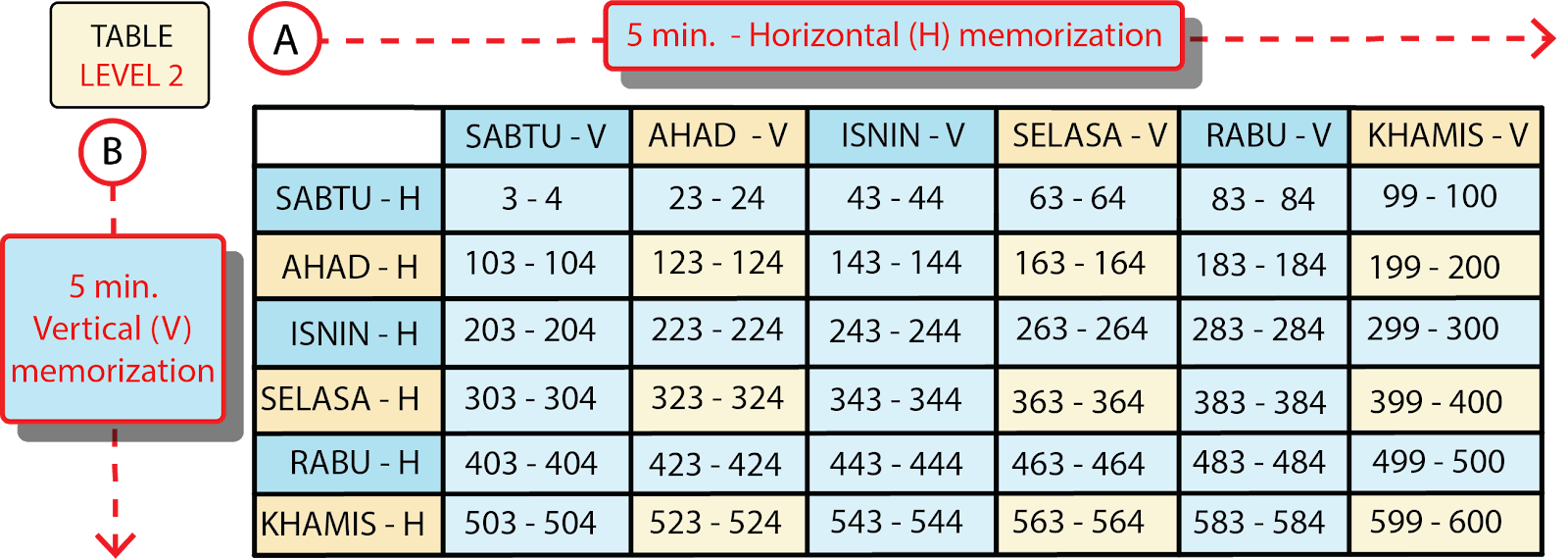
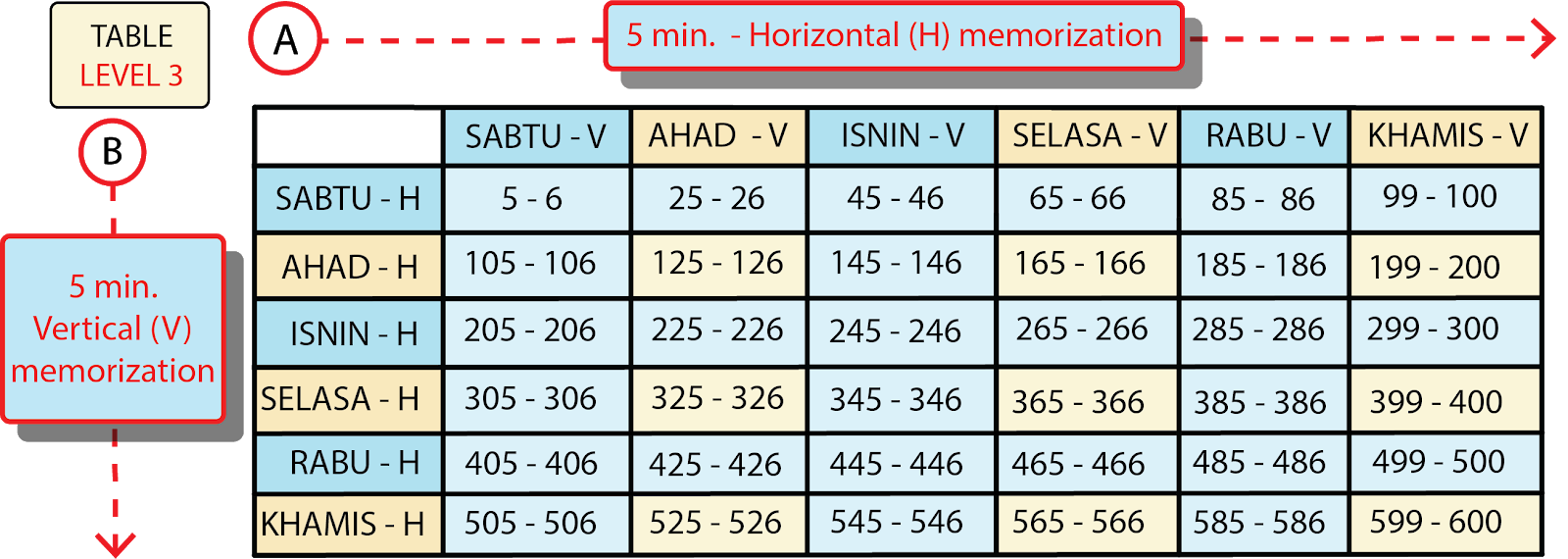
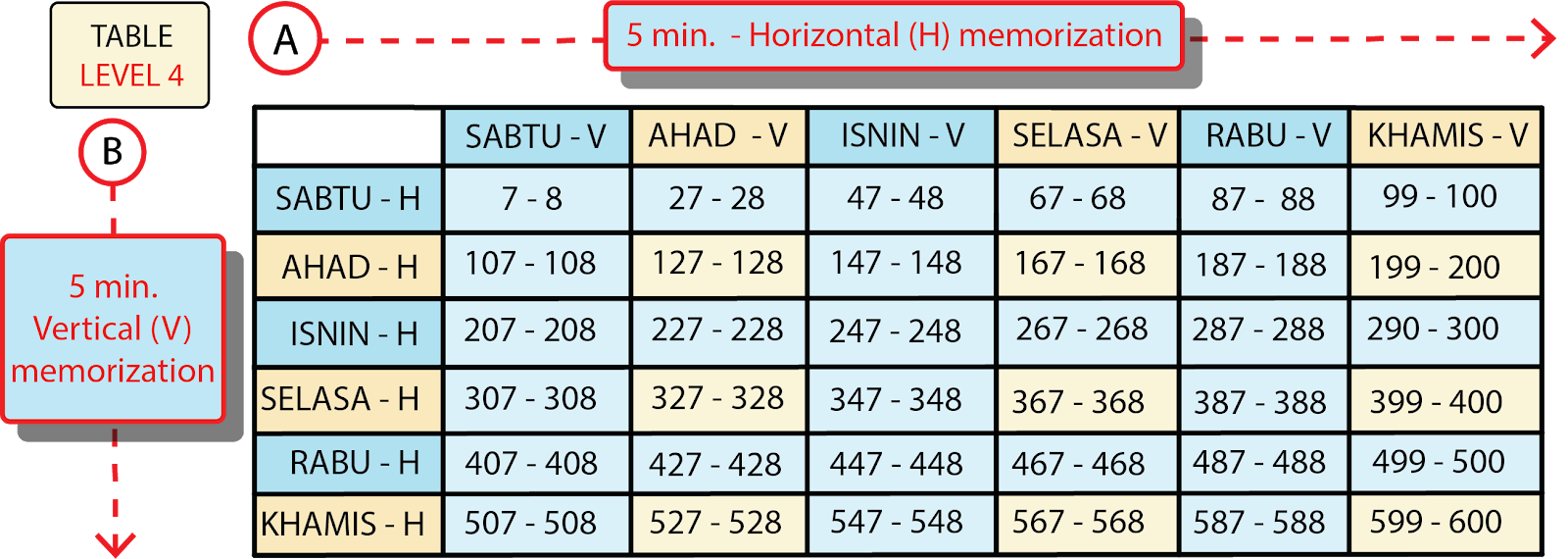
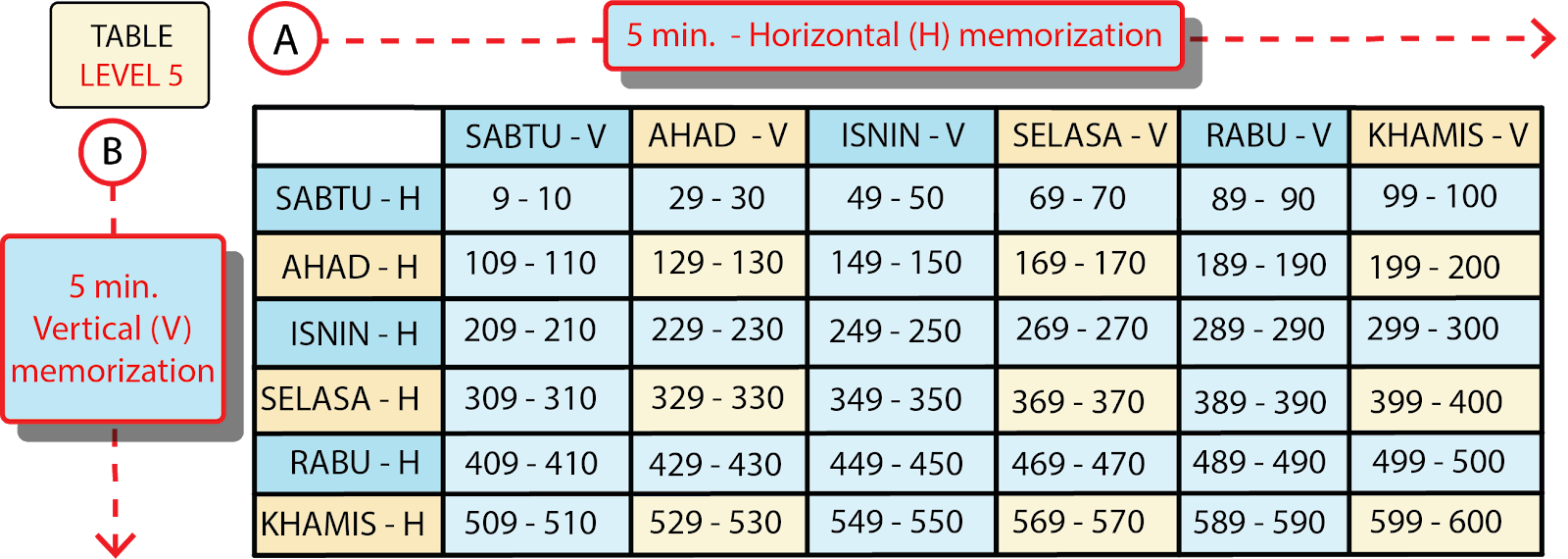
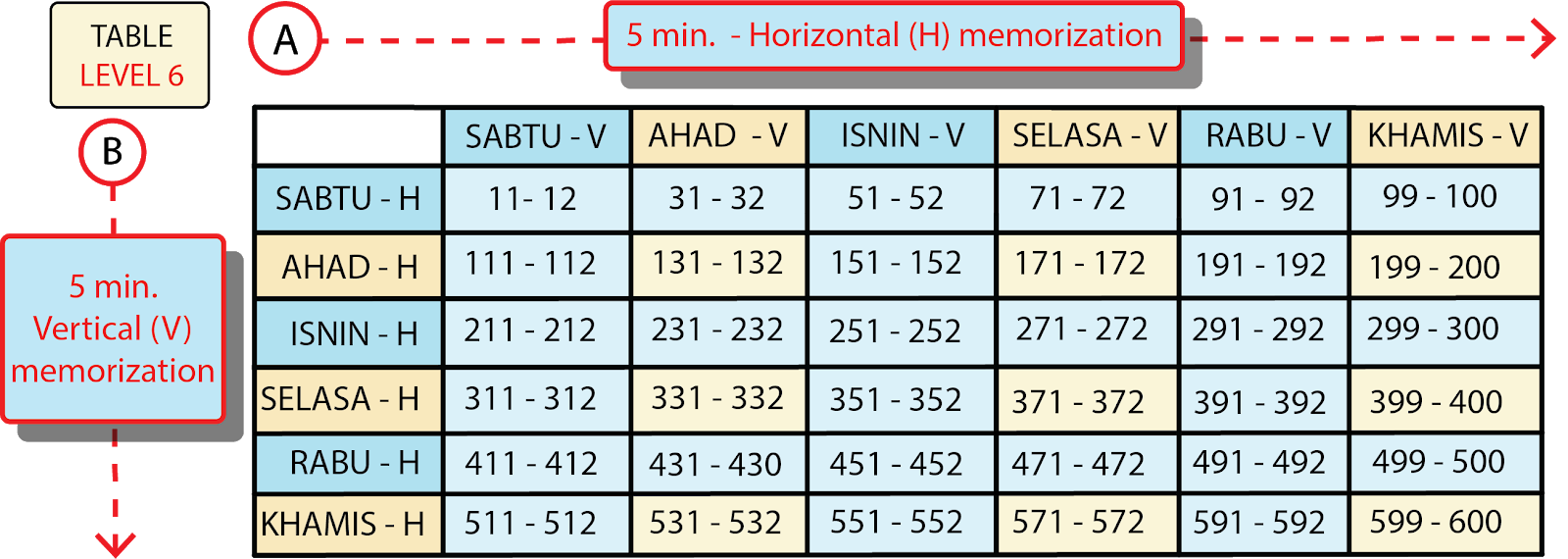

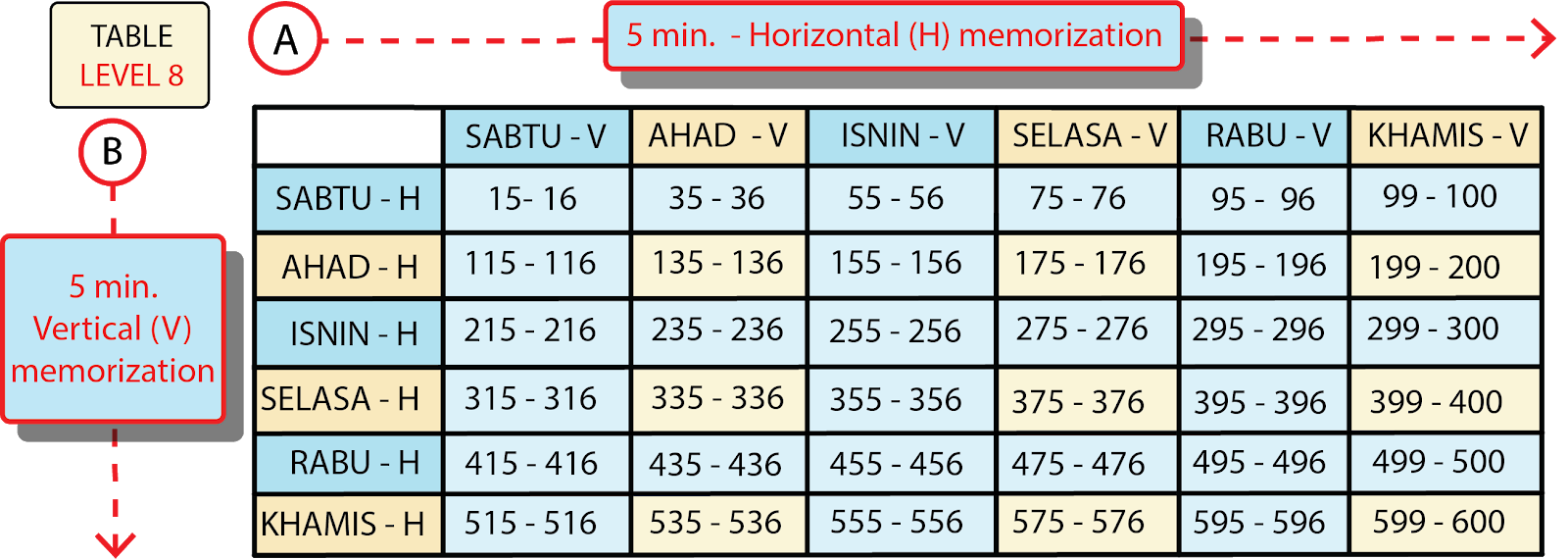
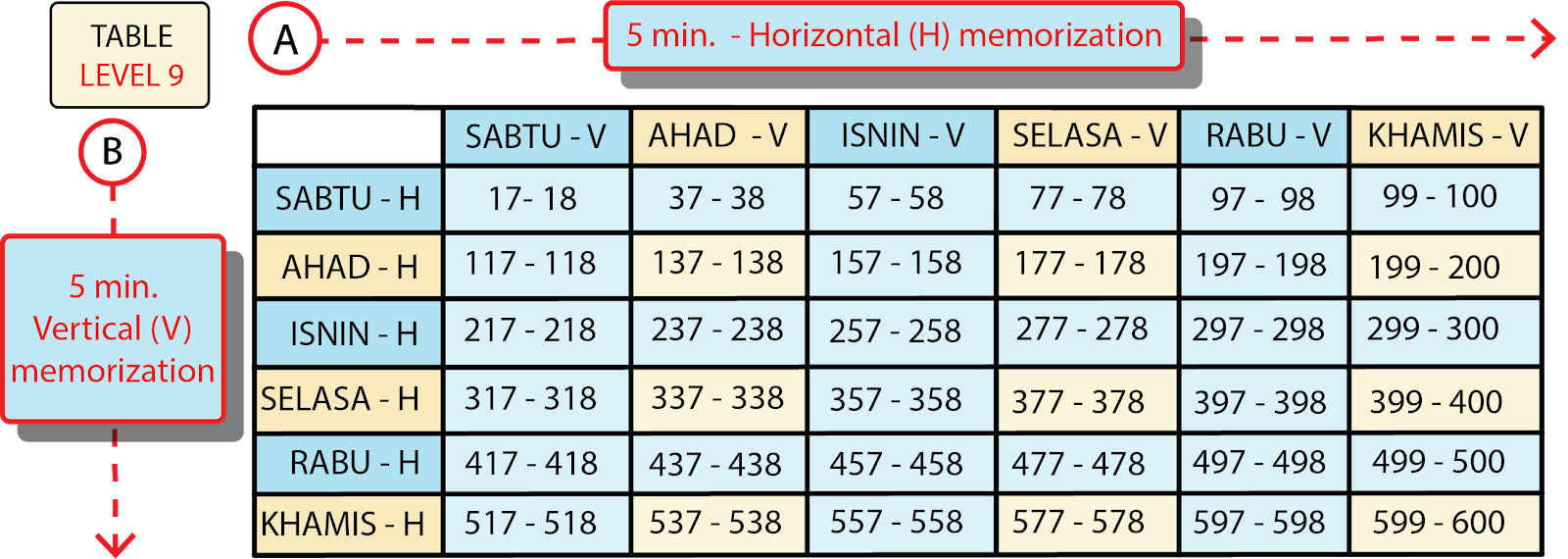
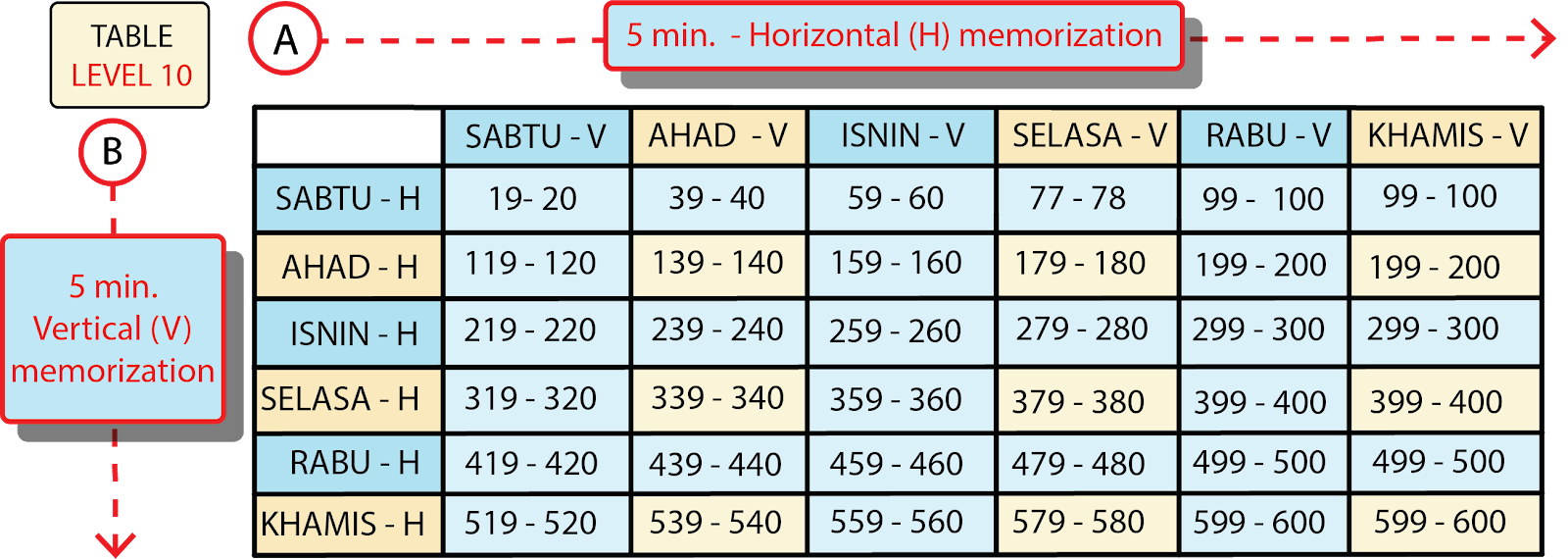
1. Quran & Hadith
2. Seerah
3. Tabligh 6 points
4. Renowned local preachers
5. Renowned foreign preachers
______________________________________________
1. QURAN & HADITH
---------------------------------------------------------------------------
Sabt 1 - 99
1 : Al Fatihah : 6
اهْدِنَا الصِّرَاطَ الْمُسْتَقِيمَ
HR Bukhari
وَإِنَّ أَحَبَّ الأَعْمَالِ إِلَى اللَّهِ مَا دَامَ وَإِنْ قَلَّ
----------------------------------------
7 : Al Baqarah 2 : 43
وَأَقِيمُوا الصَّلَاةَ وَآتُوا الزَّكَاةَ وَارْكَعُوا مَعَ الرَّاكِعِينَ
HR Muslim
صَلاَةُ الْجَمَاعَةِ أَفْضَلُ مِنْ صَلاَةِ الْفَذِّ بِسَبْعٍ وَعِشْرِينَ دَرَجَةً
----------------------------------------
19 : Al Baqarah 2 : 121
الَّذِينَ آتَيْنَاهُمُ الْكِتَابَ يَتْلُونَهُ حَقَّ تِلَاوَتِهِ أُولَٰئِكَ يُؤْمِنُونَ بِهِ ۗ وَمَنْ يَكْفُرْ بِهِ فَأُولَٰئِكَ هُمُ الْخَاسِرُونَ
HR Bukhari
خيركم من تعلم القرآن وعلمه
----------------------------------------
22 : Al Baqarah 2 : 143
وَكَذَٰلِكَ جَعَلْنَاكُمْ أُمَّةً وَسَطًا لِتَكُونُوا شُهَدَاءَ عَلَى النَّاسِ وَيَكُونَ الرَّسُولُ عَلَيْكُمْ شَهِيدًا ۗ
HR Ibn Mājah : Sahih (Al-Albani)
يَا أَيُّهَا النَّاسُ عَلَيْكُمْ بِالْقَصْدِ " . ثَلاَثًا : " فَإِنَّ اللَّهَ لاَ يَمَلُّ حَتَّى تَمَلُّوا
--------------------------------------------
52 : Ali Imran 3 : 19
إِنَّ الدِّينَ عِنْدَ اللَّهِ الْإِسْلَامُ ۗ
61 : Ali Imran 3 : 85
وَمَنْ يَبْتَغِ غَيْرَ الْإِسْلَامِ دِينًا فَلَنْ يُقْبَلَ مِنْهُ وَهُوَ فِي الْآخِرَةِ مِنَ الْخَاسِرِينَ
HR Bukhari
مَنْ أَحْدَثَ فِي أَمْرِنَا هَذَا مَا لَيْسَ مِنْهُ فَهُوَ رَدٌّ
HR Ad-Daraqutni
اَلْإِسْلَامِ يَعْلُو, وَلَا يُعْلَى
--------------------------------------
62 : Ali Imran 3 : 92
لَنْ تَنَالُوا الْبِرَّ حَتَّىٰ تُنْفِقُوا مِمَّا تُحِبُّونَ ۚ وَمَا تُنْفِقُوا مِنْ شَيْءٍ فَإِنَّ اللَّهَ بِهِ عَلِيمٌ
HR Bukhari & Muslim : muttafaq ‘alaih
اَلْيَدُ الْعُلْيَا خَيْرٌ مِنَ الْيَدِ السُّفْلَى
--------------------------------------
63 : Ali Imran 3 : 104
وَلْتَكُنْ مِنْكُمْ أُمَّةٌ يَدْعُونَ إِلَى الْخَيْرِ وَيَأْمُرُونَ بِالْمَعْرُوفِ وَيَنْهَوْنَ عَنِ الْمُنْكَرِ ۚ وَأُولَٰئِكَ هُمُ الْمُفْلِحُونَ
HR Muslim
مَنْ دَلَّ عَلَى خَيْرٍ, فَلَهُ مِثْلُ أَجْرِ فَاعِلِهِ
-----------------------------------------
64 : Ali Imran 3 : 110
كُنْتُمْ خَيْرَ أُمَّةٍ أُخْرِجَتْ لِلنَّاسِ تَأْمُرُونَ بِالْمَعْرُوفِ وَتَنْهَوْنَ عَنِ الْمُنْكَرِ وَتُؤْمِنُونَ بِاللَّهِ ۗ ....
HR Muslim
مَنْ رَأَى مِنْكُمْ مُنْكَرًا فَلْيُغَيِّرْهُ بِيَدِهِ، فَإِنْ لَمْ يَسْتَطِعْ فَبِلِسَانِهِ، فَإِنْ لَمْ يَسْتَطِعْ فَبِقَلْبِهِ، وَذَلِكَ أَضْعَفُ الْإِيمَانِ
-------------------------------------------
74 : Ali Imran 3 : 185
كُلُّ نَفْسٍ ذَائِقَةُ الْمَوْتِ ۗ
Sunan Ibn Majah.....Grade Hasan (Darussalam)
ـ ثُمَّ قَالَ : يَا رَسُولَ اللَّهِ أَىُّ الْمُؤْمِنِينَ أَفْضَلُ قَالَ : " أَحْسَنُهُمْ خُلُقًا " . قَالَ فَأَىُّ الْمُؤْمِنِينَ أَكْيَسُ قَالَ : " أَكْثَرُهُمْ لِلْمَوْتِ ذِكْرًا وَأَحْسَنُهُمْ لِمَا بَعْدَهُ اسْتِعْدَادًا أُولَئِكَ الأَكْيَاسُ "
--------------------------------------------
87 : An Nisaa' 4 : 59
يَا أَيُّهَا الَّذِينَ آمَنُوا أَطِيعُوا اللَّهَ وَأَطِيعُوا الرَّسُولَ وَأُولِي الْأَمْرِ مِنْكُمْ ۖ فَإِنْ تَنَازَعْتُمْ فِي شَيْءٍ فَرُدُّوهُ إِلَى اللَّهِ وَالرَّسُولِ إِنْ كُنْتُمْ تُؤْمِنُونَ بِاللَّهِ وَالْيَوْمِ الْآخِرِ ۚ ذَٰلِكَ خَيْرٌ وَأَحْسَنُ تَأْوِيلًا
HR Imam Malik dalam Al Muwatta
َ " تَرَكْتُ فِيكُمْ أَمْرَيْنِ لَنْ تَضِلُّوا مَا تَمَسَّكْتُمْ بِهِمَا كِتَابَ اللَّهِ وَسُنَّةَ نَبِيِّهِ
HR Abu Daud & Termidhi...Hadith Hasan Sahih
فَعَلَيْكُمْ بِسُنَّتِي وَسُنَّةِ الْخُلَفَاءِ الرَّاشِدِينَ الْمَهْدِيينَ.
---------------------------------------------
91 : An-Nisaa' 4 : 82
أَفَلَا يَتَدَبَّرُونَ الْقُرْآنَ ۚ وَلَوْ كَانَ مِنْ عِنْدِ غَيْرِ اللَّهِ لَوَجَدُوا فِيهِ اخْتِلَافًا كَثِيرًا
---------------------------------------------
Ahad : 100 - 199
107 : ِِAl Maidah 5 : 3
الْيَوْمَ أَكْمَلْتُ لَكُمْ دِينَكُمْ وَأَتْمَمْتُ عَلَيْكُمْ نِعْمَتِي وَرَضِيتُ لَكُمُ الْإِسْلَامَ دِينًا
_____________________________
134 : Al An'am 6 : 54
ۖ .وَإِذَا جَاءَكَ الَّذِينَ يُؤْمِنُونَ بِآيَاتِنَا فَقُلْ سَلَامٌ عَلَيْكُمْ
HR Termizi....Hadith Hasan Sahih
"يا أيها الناس أفشوا السلام، وأطعموا الطعام، وصلوا الأرحام وصلوا والناس نيام، تدخلوا الجنة بسلام"
--------------------------------------------
Ithnain 200 - 299
----------------------
Thulatha : 300 - 399
342 : Al Mu'minun 23 : 1-2
1.قَدْ أَفْلَحَ الْمُؤْمِنُونَ
2. الَّذِينَ هُمْ فِي صَلَاتِهِمْ خَاشِعُونَ
HR Imam Malik
وَأَسْوَأُ السَّرِقَةِ الَّذِي يَسْرِقُ صَلاَتَهُ " . قَالُوا وَكَيْفَ يَسْرِقُ صَلاَتَهُ يَا رَسُولَ اللَّهِ قَالَ " لاَ يُتِمُّ رُكُوعَهَا وَلاَ سُجُودَهَا
-----------------------------------------------
Arbi'a : 400 - 499
401 : Al Ankabut 29 : 45
.... إِنَّ الصَّلَاةَ تَنْهَىٰ عَنِ الْفَحْشَاءِ وَالْمُنْكَرِ ۗ ...
HR Termizi ..hadith hasan
إن أول ما يحاسب به العبد يوم القيامة من عمله صلاته،
-----------------------------------------
404 : Al Ankabut 29 : 69
وَالَّذِينَ جَاهَدُوا فِينَا لَنَهْدِيَنَّهُمْ سُبُلَنَا ۚ وَإِنَّ اللَّهَ لَمَعَ الْمُحْسِنِينَ
420 : Al Ahzab 33 : 21
لَقَدْ كَانَ لَكُمْ فِي رَسُولِ اللَّهِ أُسْوَةٌ حَسَنَةٌ لِمَنْ كَانَ يَرْجُو اللَّهَ وَالْيَوْمَ الْآخِرَ وَذَكَرَ اللَّهَ كَثِيرًا
------------------------------------
Khamis : 500 - 604
507 : Muhammad 47 : 7
يَا أَيُّهَا الَّذِينَ آمَنُوا إِنْ تَنْصُرُوا اللَّهَ يَنْصُرْكُمْ وَيُثَبِّتْ أَقْدَامَكُمْ
----------------------------------------------
518 : Al Hujurat 49 : 13
يَا أَيُّهَا النَّاسُ إِنَّا خَلَقْنَاكُمْ مِنْ ذَكَرٍ وَأُنْثَىٰ وَجَعَلْنَاكُمْ شُعُوبًا وَقَبَائِلَ لِتَعَارَفُوا ۚ إِنَّ أَكْرَمَكُمْ عِنْدَ اللَّهِ أَتْقَاكُمْ ۚ إِنَّ اللَّهَ عَلِيمٌ خَبِيرٌ
HR Muslim
إِنَّ اللَّهَ لاَ يَنْظُرُ إِلَى صُوَرِكُمْ وَأَمْوَالِكُمْ وَلَكِنْ يَنْظُرُ إِلَى قُلُوبِكُمْ وَأَعْمَالِكُمْ
-------------------------------------------
560 : At Tahrim 66 : 6
يَا أَيُّهَا الَّذِينَ آمَنُوا قُوا أَنْفُسَكُمْ وَأَهْلِيكُمْ نَارًا وَقُودُهَا النَّاسُ وَالْحِجَارَةُ عَلَيْهَا مَلَائِكَةٌ غِلَاظٌ شِدَادٌ لَا يَعْصُونَ اللَّهَ مَا أَمَرَهُمْ وَيَفْعَلُونَ مَا يُؤْمَرُونَ
__________________________________________________
574 : Al Muzzammil : 73 : 1-7
١ يَا أَيُّهَا الْمُزَّمِّلُ . ٢ قُمِ اللَّيْلَ إِلَّا قَلِيلًا . ٣ نِصْفَهُ أَوِ انْقُصْ مِنْهُ قَلِيلًا . ٤ أَوْ زِدْ عَلَيْهِ وَرَتِّلِ الْقُرْآنَ تَرْتِيلًا ٥ إِنَّا سَنُلْقِي عَلَيْكَ قَوْلًا ثَقِيلًا . ٦ إِنَّ نَاشِئَةَ اللَّيْلِ هِيَ أَشَدُّ وَطْئًا وَأَقْوَمُ قِيلًا ٧ إِنَّ لَكَ فِي النَّهَارِ سَبْحًا طَوِيلًا
575 : Al Muddatstsir : 74 : 1-7
١ يَا أَيُّهَا الْمُدَّثِّرُ . ٢ قُمْ فَأَنْذِرْ . ٣ وَرَبَّكَ فَكَبِّرْ And magnify your Lord. ٤ وَثِيَابَكَ فَطَهِّرْ 4 And purify your clothes. ٥ وَالرُّجْزَ فَاهْجُرْ 5 And abandon abominations. ٦ وَلَا تَمْنُنْ تَسْتَكْثِرُ 6 And show no favor seeking gain. ٧ وَلِرَبِّكَ فَاصْبِرْ 7 And be constant for your Lord.
2. HADITH
2 : HR Tirmidhi
مفتاح الجنة الصلاة ومفتاح الصلاة الوضوء
19 : HR Bukhari
"خيركم من تعلم القرآن وعلمه"
HR Muslim
“إذا مات الأنسان انقطع عمله إلا من ثلاث: صدقة جارية، أو علم ينتفع به، أو ولد صالح يدعو له"
(HR Bukhari & Muslim : muttafaq ‘alaih)
اَلْيَدُ الْعُلْيَا خَيْرٌ مِنَ الْيَدِ السُّفْلَى
HR Bukhari
بلغوا عنى ولو اية
Xxx
__________________________________________________
3. SEERAH
Narrated 'Abdur-Rahman bin 'Awf:
that the Messenger of Allah (ﷺ) said: "Abu Bakr is in Paradise, 'Umar is in Paradise, 'Uthman is in Paradise, 'Ali is in Paradise, Talhah is in Paradise, Az-Zubair is in Paradise, 'Abdur-Rahman bin 'Awf is in Paradise, Sa'd bin Abi Waqqas is in Paradise, Sa'eed is in Paradise, and Abu 'Ubaidah bin Al-Jarrah is in Paradise."
حَدَّثَنَا قُتَيْبَةُ، حَدَّثَنَا عَبْدُ الْعَزِيزِ بْنُ مُحَمَّدٍ، عَنْ عَبْدِ الرَّحْمَنِ بْنِ حُمَيْدٍ، عَنْ أَبِيهِ، عَنْ عَبْدِ الرَّحْمَنِ بْنِ عَوْفٍ، قَالَ قَالَ رَسُولُ اللَّهِ صلى الله عليه وسلم " أَبُو بَكْرٍ فِي الْجَنَّةِ وَعُمَرُ فِي الْجَنَّةِ وَعُثْمَانُ فِي الْجَنَّةِ وَعَلِيٌّ فِي الْجَنَّةِ وَطَلْحَةُ فِي الْجَنَّةِ وَالزُّبَيْرُ فِي الْجَنَّةِ وَعَبْدُ الرَّحْمَنِ بْنُ عَوْفٍ فِي الْجَنَّةِ وَسَعْدٌ فِي الْجَنَّةِ وَسَعِيدٌ فِي الْجَنَّةِ وَأَبُو عُبَيْدَةَ بْنُ الْجَرَّاحِ فِي الْجَنَّةِ " .
| Grade | : Sahih (Darussalam) |
| English reference | : Vol. 1, Book 46, Hadith 3747 |
| Arabic reference | : Book 49, Hadith 4112 |
____________________________________________
Narrated Sa'id ibn Zayd:
AbdurRahman ibn al-Akhnas said that when he was in the mosque, a man mentioned Ali (may Allah be pleased with him). So Sa'id ibn Zayd got up and said: I bear witness to the Messenger of Allah (ﷺ) that I heard him say: Ten persons will go to Paradise: The Prophet (ﷺ) will go to Paradise, AbuBakr will go to Paradise, Umar will go to Paradise, Uthman will go to Paradise, Ali will go to Paradise, Talhah will go to Paradise: az-Zubayr ibn al-Awwam will go to paradise, Sa'd ibn Malik will go to Paradise, and AbdurRahman ibn Awf will go to Paradise. If I wish, I can mention the tenth. The People asked: Who is he: So he kept silence. The again asked: Who is he: He replied: He is Sa'id ibn Zayd.
حَدَّثَنَا حَفْصُ بْنُ عُمَرَ النَّمَرِيُّ، حَدَّثَنَا شُعْبَةُ، عَنِ الْحُرِّ بْنِ الصَّيَّاحِ، عَنْ عَبْدِ الرَّحْمَنِ بْنِ الأَخْنَسِ، أَنَّهُ كَانَ فِي الْمَسْجِدِ فَذَكَرَ رَجُلٌ عَلِيًّا عَلَيْهِ السَّلاَمُ فَقَامَ سَعِيدُ بْنُ زَيْدٍ فَقَالَ أَشْهَدُ عَلَى رَسُولِ اللَّهِ صلى الله عليه وسلم أَنِّي سَمِعْتُهُ وَهُوَ يَقُولُ " عَشْرَةٌ فِي الْجَنَّةِ النَّبِيُّ فِي الْجَنَّةِ وَأَبُو بَكْرٍ فِي الْجَنَّةِ وَعُمَرُ فِي الْجَنَّةِ وَعُثْمَانُ فِي الْجَنَّةِ وَعَلِيٌّ فِي الْجَنَّةِ وَطَلْحَةُ فِي الْجَنَّةِ وَالزُّبَيْرُ بْنُ الْعَوَّامِ فِي الْجَنَّةِ وَسَعْدُ بْنُ مَالِكٍ فِي الْجَنَّةِ وَعَبْدُ الرَّحْمَنِ بْنُ عَوْفٍ فِي الْجَنَّةِ " . وَلَوْ شِئْتَ لَسَمَّيْتُ الْعَاشِرَ . قَالَ فَقَالُوا مَنْ هُوَ فَسَكَتَ قَالَ فَقَالُوا مَنْ هُوَ فَقَالَ هُوَ سَعِيدُ بْنُ زَيْدٍ .
Grade : Sahih
| Reference | : Sunan Abi Dawud 4649 |
| In-book reference | : Book 42, Hadith 54 |
| English translation | : Book 41, Hadith 4632 |
___________________________________________
Sejarah kejayaan di awal Islam semasa zaman Nabi dan Khalifah Ar Rasyidin :
Kelengkapan meterial...... yang kurang
Ketakwaan....... yang tinggi
Sepuluh Sahabat Nabi yang dijamin syurga..... yang majoriti kaya, tapi dermawan .... terutama Abdurrahman bin Auf RA ..... Yang FATONAH mencari peluang untuk jadi tangan yang di atas
__________________________________
4. SIX POINTS OF TABLIGH ( 6 points of Sahabah )
(1) Iman .... Firm belief in .. Laa ilaaha illallah, Muhammadur Rasulullah
(2) Solah .... Pray with full concentration and humbleness
(3) Ilm & Zikr .... Seek knowledge ( fadhail and masail knowledge) & always zikr or remember Allah, to avoid doing haram action
(4) Ikraam .....Respect and give service to our parents, fellows Muslim and people in general.
(5) Ikhlas ..... Have sincerity in all of our action, or in other word, do things only to please Allah, and not for showing off.
(6) Khuruj fi sabilillah ..... Spend time, money to go out in the path of Allah to train oneself to be a good Muslim and at the same, to spread Islam.

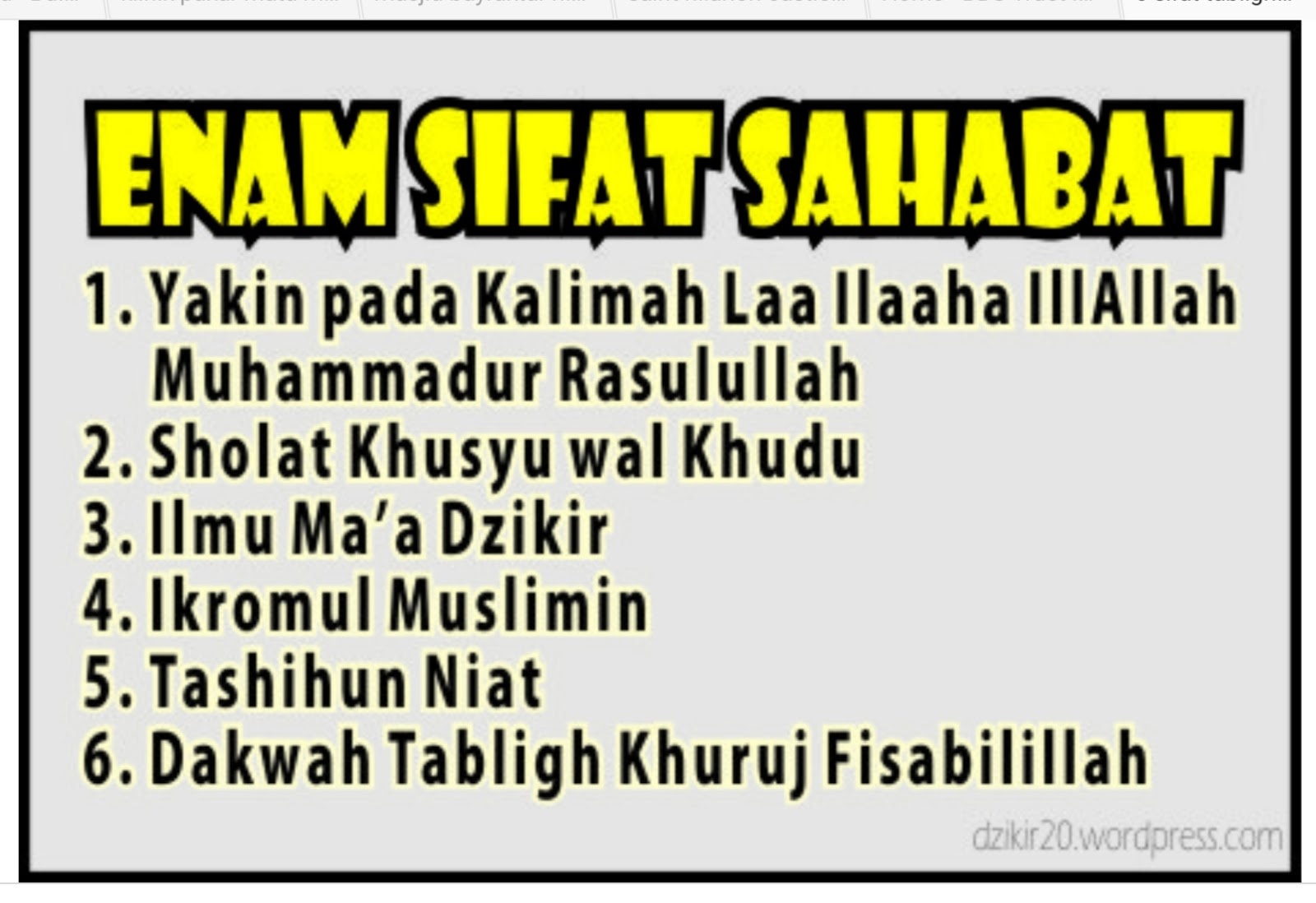
_________________________________
5. RENOWNED LOCAL PREACHERS
1. Ustaz Azhar Idrus
2. Maulana Asri
3. Dr Rozaimi
4. Mufti Asri Zainul Abidin
5. Ust Kazim
6. Ust Ebit Lew
7. Prof Datuk Dr Muhaya
8. Ust Ismail Kamus
9. Ust Ahmad Dusuki
10. Ust Auni Mohamad
__________________________________
6. RENOWNED FOREIGN PREACHERS
1. Dr Zakir Naik
2. Nouman Ali Khan
3. Mufti Menk
4. Yasmin Mogahed
5. Hussain Yee
6. Omar Suleiman
7. Yusuf Estes
8. Moulana Tariq Jameel
9. Yasir Qadhi
10. Taqi Usmani
__________________________________

HAFALAN & ULANGAN ...... KAEDAH QAWAN - ada 10 Level
Semua Al Qur'an di dunia dicetak pada 604 muka surat. Maka Kaedah Qawan membahagikan Al Qur'an kepada 6 bahagian.
Kaedah memilih pasangan .....
1.Pasangan muka surat di antara 2 juzuk.
2.Ayat ayatnya tidak panjang.
3. Sesuai dibaca dalam solat pada rakaat pertama dan kedua.
4. Sesuai dijadikan bahan untuk tazkirah selepas solat.
_______________________________________________
_______________________________________________
LEVEL 1
6 Bahagian Melintang ( Horizontal - H )
Hanya pasangan muka surat di antara 2 juzuk.
Hari Sabtu : ms 1- 100
Hari Ahad : ms 101 - 200
Hari Ithnin : ms 201 - 300
Hari Selasa : ms 301 - 400
Hari Rabu : ms 401 - 500
Hari Khamis : ms 501 - 604
Hari Jumaat : Ulangkaji semua sekadar mampu
_______________________________________________
6 Bahagian Menegak ( Vertical - V )
Hanya pasangan muka surat (ms) seluruh Al Qur'an, di antara 2 juzuk yang berhujung dengan nombor tertentu
H.Sabtu : ms hujung 01-02
H.Ahad : ms hujung 21-22
H.Ithnin : ms hujung 41-42
H.Selasa : ms hujung 61-62
H.Rabu : ms hujung 81-82
H.Khamis : ms hujung 99-00
Hari Jumaat : Ulangkaji semua sekadar mampu
________________________________________________
LEVEL 2 ..... akan datang
_____________________________________________
_____________________________________________
٦٠٠
dan dinampakkan|what
apa|in
dalam|the breasts
dada|10|verily
sesungguhnya|their lord
tuhan mereka|toward them
terhadap mereka|on that day
pada hari itu|truly well acquainted
benar-benar Mahateliti|11
With the name
Dengan nama
奉名字
fèng míng zi | الله
(of) Allah
Allah (punya)
安拉 (的)
ān lā (de) | ذي الأكثر سخاء بجميع الخلق
the Most Generous for all creations
Yang Maha Pemurah untuk semua kejadian
最慷慨对所有创作
zuì kāng kǎi duì suǒ yǒu chuàng zuò | ذي الرحمة بالمؤمنين
the Most Merciful for the believers
Yang Maha Mengasihani untuk yang percaya
最仁慈对信徒
zuì rén cí duì xìn tú | (1)
hari kiamat|1|what
apakah|the striking hour
hari kiamat|2|and what
dan apa|will make
tahukah kamu|what
apa|the striking hour
hari kiamat
pada hari itu|will be
akan|the mankind
manusia|like moths
seperti kupu-kupu|scattered
yang berterbangan|4
dan akan|the mountains
gunung-gunung|like wool
seperti bulu|fluffed up
yang dihambur-hamburkan|5|therefore
maka adapun
orang yang|heavy
berat|scale
timbangannya|6|then he
maka dia|in
dalam|life
kehidupan|pleased
yang memuaskan
dan adapun|the one
orang yang|whose light
ringan|scale
timbangannya|8|then his home
maka tempat kembalinya|the hawiyah fire
neraka hawiyah
dan apa|will make
tahukah kamu|what
apakah|it is
itu|10|fire
api|a hot blazing
yang sangat panas|11
With the name
Dengan nama
奉名字
fèng míng zi | الله
(of) Allah
Allah (punya)
安拉 (的)
ān lā (de) | ذي الأكثر سخاء بجميع الخلق
the Most Generous for all creations
Yang Maha Pemurah untuk semua kejadian
最慷慨对所有创作
zuì kāng kǎi duì suǒ yǒu chuàng zuò | ذي الرحمة بالمؤمنين
the Most Merciful for the believers
Yang Maha Mengasihani untuk yang percaya
最仁慈对信徒
zuì rén cí duì xìn tú | (1)
kamu telah dilalaikan|the desire of abundance
bermegah-megahan|1|until
sampai|you approach
kamu masuk|graves
kubur|2|no
sekali-kali tidak|soon
akan
kamu akan mengetahui|3|then
kemudian|no
sekali-kali tidak|soon
kelak|you will know
kamu akan mengetahui|4|no
sekali-kali tidak|soon
kelak|you will know
kamu akan mengetahui
ilmu|a sure
pasti|5|you surely will see
kamu akan benar-benar melihat|jahim fire
neraka jahim|6|then
kemudian|you surely will see
kamu akan benar-benar melihat
mata|of sight
sendiri|7|then
kemudian|you will surely will be questioned
kamu benar-benar akan ditanya|on that day
pada hari itu|about
tentang|the delights
kenikmatan|8
600
Miracle : Mukjizat
Hadis : Perbualan
MATHEMATICAL MIRACLE IN QURAN
Al Qari'ah 101 : 4
The 365th Word "Day" in Quran
The Word "Day" Mentioned 365 times in the Quran !
_________________________
SCIENTIFIC MIRACLE IN QURAN
How the universe is going to end. Quran confirms Higgs Boson - There is No Clash
__________________________
HR Bukhari
(قَالَ النَّبِيُّ (ﷺ
نِعْمَتَانِ
مَغْبُونٌ فِيهِمَا
كَثِيرٌ مِنَ النَّاسِ
الصِّحَّةُ وَالْفَرَاغُ
_________________________________________________
HR Bukhari
(قَالَ النَّبِيُّ (ﷺ
نِعْمَتَانِ
مَغْبُونٌ فِيهِمَا
كَثِيرٌ مِنَ النَّاسِ
الصِّحَّةُ وَالْفَرَاغُ
_________________________________________________
(قَالَ النَّبِيُّ (ﷺ : Said the prophet saw
نِعْمَتَانِ : two blessings
مَغْبُونٌ فِيهِمَا : being cheated in two of them
كَثِيرٌ مِنَ النَّاسِ : a lot of the people
الصِّحَّةُ وَالْفَرَاغُ : Health and free time
Narrated Ibn `Abbas:
The Prophet (ﷺ) said, "There are two blessings which many people lose: (They are) Health and free time for doing good."
حَدَّثَنَا الْمَكِّيُّ بْنُ إِبْرَاهِيمَ، أَخْبَرَنَا عَبْدُ اللَّهِ بْنُ سَعِيدٍ ـ هُوَ ابْنُ أَبِي هِنْدٍ ـ عَنْ أَبِيهِ، عَنِ ابْنِ عَبَّاسٍ ـ رضى الله عنهما ـ قَالَ قَالَ النَّبِيُّ صلى الله عليه وسلم " نِعْمَتَانِ مَغْبُونٌ فِيهِمَا كَثِيرٌ مِنَ النَّاسِ، الصِّحَّةُ وَالْفَرَاغُ ".
قَالَ عَبَّاسٌ الْعَنْبَرِيُّ حَدَّثَنَا صَفْوَانُ بْنُ عِيسَى، عَنْ عَبْدِ اللَّهِ بْنِ سَعِيدِ بْنِ أَبِي هِنْدٍ، عَنْ أَبِيهِ، سَمِعْتُ ابْنَ عَبَّاسٍ، عَنِ النَّبِيِّ صلى الله عليه وسلم مِثْلَهُ.
| Reference | : Sahih al-Bukhari 6412 |
| In-book reference | : Book 81, Hadith 1 |
| USC-MSA web (English) reference | : Vol. 8, Book 76, Hadith 421 |
_______________________________________________
back to top
_______________________________________________
وعن أبي برزة رضي الله عنه، قال
قال رسول الله صلى الله عليه وسلم
لاَ تَزُوْلُ قَدَمَا عَبْدٍ "
يَوْمَ الْقِيَامَةِ حَتَّى يُسْأَلَ
عَنْ عُمْرِهِ فِيْمَا أَفْنَاهُ
وَعَنْ عِلْمِهِ فِيْمَا فعل فيه،
وَعَنْ مَالِهِ مِنْ أَيْنَ اكْتَسَبَهُ
وفِيْمَا أَنْفَقَهُ،
وَعَنْ جِسْمِهِ فِيْمَا أَبْلاَهُ
((رواه الترمذي وقال: حديث حسن صحيح))
_______________________
وعن أبي برزة
And from Abu Barzah
Dan dari Abu Barzah
和 ...从 Abu Barzah
hé...cóng Abu Barzah
رضي الله عنه، قال
Telah redha Allah kepadanya, berkata
May Allah be pleased with him, said
愿 真主 喜悦 他,说
yuàn zhēn zhǔ xǐ yuè tā shuì
قال رسول الله (ﷺ)
Said the Messenger of Allah (ﷺ) ,
安拉的使者(ﷺ)说,
ān lā de shǐ zhě (ﷺ)shuo
لاَ تَزُوْلُ قَدَمَا عَبْدٍ "
"Do not move..... two feet of a slave
Tak bergerak.. 2 kaki seorang hamba
不 动....... 两 个 奴隶 的 脚
bú dòng......liǎng gè nú lì de jiǎo
يَوْمَ الْقِيَامَةِ
on the Day of Resurrection
pada hari kebangkitan
在 复活 的 那一天
zài fù huó de nā yī tiān
حَتَّى يُسْأَلَ
until he is asked
sehingga dia di tanya
直到他被问到
zhí dào tā bèi wèn dào
عَنْ عُمْرِهِ
about his age
tentang umurnya
关于他的年龄
guān yú tā de nián líng
فِيْمَا أَفْنَاهُ
in what matter he consumed it,
dalam apa perkara dia habiskannya
在他消费的事情上
zài tā xiāo fèi de shì qing shǎng
وَعَنْ عِلْمِهِ
and about his knowledge,
dan tentang ilmunya
和...关于他的知识
hé...guān yú tā de zhī shi
فِيْمَا فعل فيه،
in what matter, he did in it,
dalam apa hal dia buat dalamnya
在什么事情上..他在里面做了,
zài shén me shì qíng shǎng ...
tā zài lǐ miàn zuò liǎo
وَعَنْ مَالِهِ
and about his wealth,
dan tentang hartanya
和....他的财富,
hé... tā de cái fù
مِنْ أَيْنَ اكْتَسَبَهُ
from where he earned it
dari mana dia usahakannya
从他赢得的地方
cóng tā yíng dé de dì fāng
وفِيْمَا أَنْفَقَهُ،
and in what matter he spent it,
dan dalam apa hal dia belanjanya
和....他在什么事情上花了
hé....tā zài shén me shì qíng shǎng huā liǎo
وَعَنْ جِسْمِهِ
and about his body,
dan tentang badannya
和....关于他的身体,
hé.... guān yú tā de shēn tǐ
فِيْمَا أَبْلاَهُ
in what matter, he work out it ."
dalam apa hal , dia kerjakannya
在这个问题上,他解决了这个问题
zài zhè ge wèn tí shǎng tā jiě jué liǎo zhè ge wèn tí
((رواه الترمذي وقال: حديث حسن صحيح))
___________________________________
Unknown source
لاَ تَزُوْلُ قَدَمَا عَبْدٍ حَتَّى يُسْأَلَ عَنْ أَرْبَعٍ: عَنْ عُمْرِهِ فِيْمَ أَفْنَاهُ, وَعَنْ عِلْمِهِ مَا فَعَلَ بِهِ, وَعَنْ مَالِهِ مِنْ أَيْنَ اكْتَسَبَهُ وَفِيْمَ أَنْفَقَهُ, وَعَنْ جِسْمِهِ فِيْمَ أَبْلاَهُ.
________________________
HR At-Tirmidhi
وعن أبي برزة -براء ثم زاى- نضلة بن عبيد الأسلمى، رضي الله عنه، قال: قال رسول الله صلى الله عليه وسلم: "لا تزول قدما عبد يوم القيامة حتى يسأل عن عمره فيما أفناه ، وعن علمه فيما فعل فيه، وعن ماله من أين اكتسبه، وفيما أنفقه، وعن جسمه فيم أبلاه" ((رواه الترمذي وقال: حديث حسن صحيح)).
Abu Barzah (May Allah be pleased with him) reported:
Messenger of Allah (ﷺ) said, "Man's feet will not move on the Day of Resurrection before he is asked about his life, how did he consume it, his knowledge, what did he do with it, his wealth, how did he earn it and how did he dispose of it, and about his body, how did he wear it out."
____________
Jami' At-Tirmidhi
حَدَّثَنَا حُمَيْدُ بْنُ مَسْعَدَةَ، حَدَّثَنَا حُصَيْنُ بْنُ نُمَيْرٍ أَبُو مِحْصَنٍ، حَدَّثَنَا حُسَيْنُ بْنُ قَيْسٍ الرَّحَبِيُّ، حَدَّثَنَا عَطَاءُ بْنُ أَبِي رَبَاحٍ، عَنِ ابْنِ عُمَرَ، عَنِ ابْنِ مَسْعُودٍ، عَنِ النَّبِيِّ صلى الله عليه وسلم قَالَ " لاَ تَزُولُ قَدَمَا ابْنِ آدَمَ يَوْمَ الْقِيَامَةِ مِنْ عِنْدِ رَبِّهِ حَتَّى يُسْأَلَ عَنْ خَمْسٍ عَنْ عُمْرِهِ فِيمَا أَفْنَاهُ وَعَنْ شَبَابِهِ فِيمَا أَبْلاَهُ وَمَالِهِ مِنْ أَيْنَ اكْتَسَبَهُ وَفِيمَ أَنْفَقَهُ وَمَاذَا عَمِلَ فِيمَا عَلِمَ " . قَالَ أَبُو عِيسَى هَذَا حَدِيثٌ غَرِيبٌ لاَ نَعْرِفُهُ مِنْ حَدِيثِ ابْنِ مَسْعُودٍ عَنِ النَّبِيِّ صلى الله عليه وسلم إِلاَّ مِنْ حَدِيثِ الْحُسَيْنِ بْنِ قَيْسٍ . وَحُسَيْنُ بْنُ قَيْسٍ يُضَعَّفُ فِي الْحَدِيثِ مِنْ قِبَلِ حِفْظِهِ . وَفِي الْبَابِ عَنْ أَبِي بَرْزَةَ وَأَبِي سَعِيدٍ .
Ibn Mas'ud narrated that the Messenger of Allah (s.a.w) said:
"The feet of the son of Adam shall not move from before his Lord on the Day of Judgement, until he is asked about five things: about his life and what he did with it, about his youth and what he wore it out in, about his wealth and how he earned it and spent it upon, and what he did with what he knew."
Grade : Da'if ( Darussalam )
________________
Abu Hurairah (May Allah be pleased with him) reported:
Messenger of Allah (ﷺ) said, "He who believes in Allah and the Last Day, let him be hospitable to his guest; and he who believes in Allah and the Last Day, let him maintain good the ties of blood relationship; and he who believes in Allah and the Last Day, must speak good or remain silent".
[Al-Bukhari and Muslim].
وعنه أيضاً أن رسول الله قَالَ : « مَنْ كَانَ يُؤْمِنُ باللهِ وَاليَومِ الآخِرِ ، فَلْيُكْرِمْ ضَيْفَهُ ، وَمَنْ كَانَ يُؤْمِنُ باللهِ وَاليَومِ الآخِرِ ، فَلْيَصِلْ رَحِمَهُ ، وَمَنْ كَانَ يُؤْمِنُ بِاللهِ وَاليَومِ الآخِرِ ، فَلْيَقُلْ خَيْراً أَوْ لِيَصْمُتْ » . مُتَّفَقٌ عَلَيهِ .
Abu Hurairah (May Allah be pleased with him) reported:
__________
It is reported on the authority of Abu Huraira that the Messenger of Allah (ﷺ) observed:
He who believes in Allah and the Last Day should either utter good words or better keep silence; and he who believes in Allah and the Last Day should treat his neighbour with kindness and he who believes in Allah and the Last Day should show hospitality to his guest.
حَدَّثَنِي حَرْمَلَةُ بْنُ يَحْيَى، أَنْبَأَنَا ابْنُ وَهْبٍ، قَالَ أَخْبَرَنِي يُونُسُ، عَنِ ابْنِ شِهَابٍ، عَنْ أَبِي سَلَمَةَ بْنِ عَبْدِ الرَّحْمَنِ، عَنْ أَبِي هُرَيْرَةَ، عَنْ رَسُولِ اللَّهِ صلى الله عليه وسلم قَالَ " مَنْ كَانَ يُؤْمِنُ بِاللَّهِ وَالْيَوْمِ الآخِرِ فَلْيَقُلْ خَيْرًا أَوْ لِيَصْمُتْ وَمَنْ كَانَ يُؤْمِنُ بِاللَّهِ وَالْيَوْمِ الآخِرِ فَلْيُكْرِمْ جَارَهُ وَمَنْ كَانَ يُؤْمِنُ بِاللَّهِ وَالْيَوْمِ الآخِرِ فَلْيُكْرِمْ ضَيْفَهُ " .
| Reference | : Sahih Muslim 47 a |
| In-book reference | : Book 1, Hadith 80 |
| USC-MSA web (English) reference | : Book 1, Hadith 75 |
| (deprecated numbering scheme) |
_______________________________________________
back to top
_______________________________________________
xxx
_______________________________________________ back to top
_______________________________________________
World Islamic History : 600 H
9/9/1203 - 27/8/1204 CE
The Crusaders III, sack Constantinople and loot its treasures.🔈
_________________________________________
More...
- 1: Muharram
- 2: Safar
- 3: Rabiul-Awwal
- 4: Rabi-uthani
- 5: Jumadi-ul-Awwal
- 6: Jumadi-uthani
- 7: Rajab
- 8: Sha’ban
- 9: Ramadan
- 10:Shawwal
- 11:Zhul-Q’ada
- 12:Zhul-Hijja
_______________________________________________
back to top
_______________________________________________
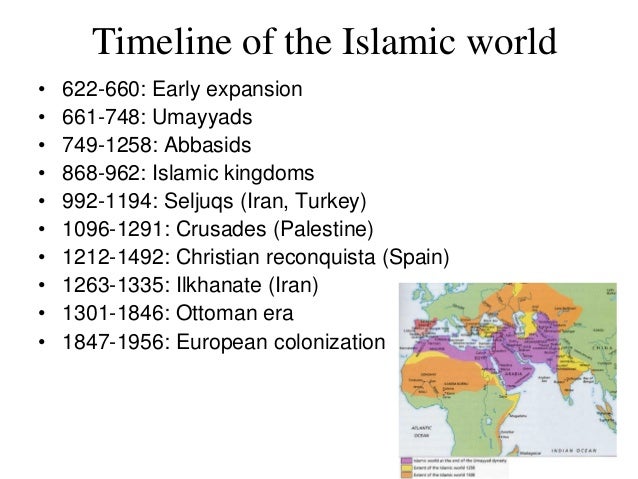


Muslim Spain phases:
1.The Al-Andalus province of the Umayyad Caliphate in Damascus (711–756)
2.The Independent Umayyad Emirate of Cordoba (756–929)
3.The Umayyad Caliphate of Córdoba (929–1031)
4.The first Taifas (1031–c. 1091)
5.The Almoravid rule (c. 1091–c. 1145)
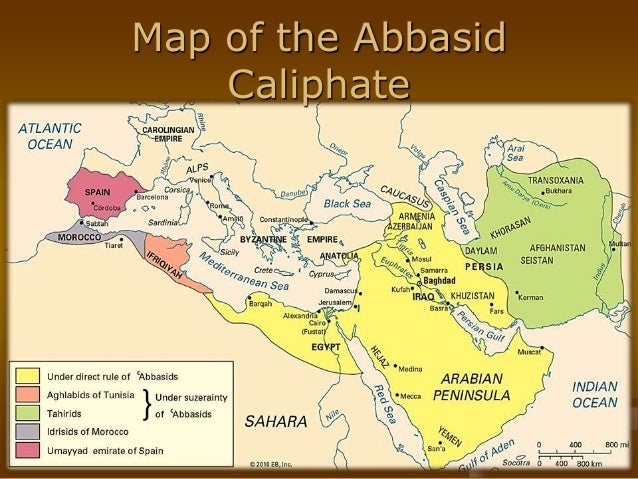

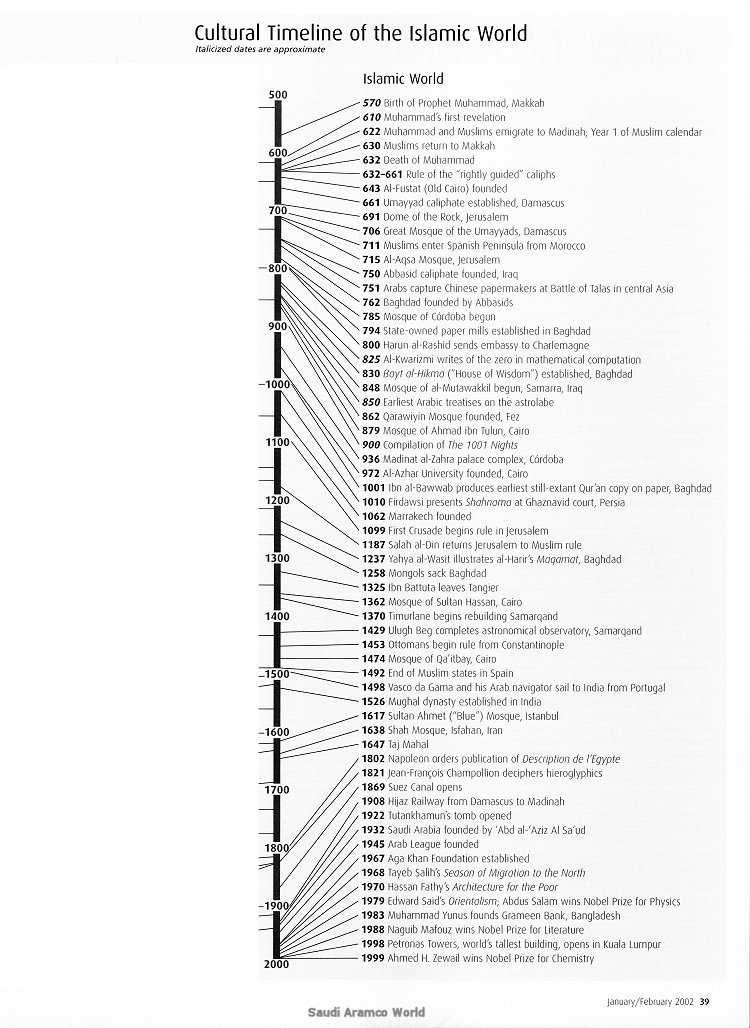


_______________________________________________
back to top
_______________________________________________
1 - 100 (623 - 719)
101 - 200 (720 - 816)
201- 300 (817 - 913)
301 - 400 (914 - 1010)
401 - 500 (1011 - 1107)
501 - 600 (1108 - 1204)
601 - 700 (1205 - 1301)
701 - 800 (1302 - 1398)
801 - 900 (1399 - 1495)
901 - 1000 (1496 - 1592)
1001 - 1100 (1593 - 1689)
1101 - 1200 (1690 - 1786)
1201 - 1300 (1787 - 1883)
1301 - 1400 (1884 - 1980)
1401 - 1500 (1981 - 2078)
| 570 | : 52 BH |
| Birth of Prophet Muhammad at Mecca | |
| 610 | : 12 BH |
| Revelation of the first versus of the Quran | |
| Ali ibn Abu Talib and Abu Bakar as Siddiq accept Islam | |
| 615 | : 7 BH |
| Conversion of Omar Ibn Al Khattab | |
| 620 | : 2 BH |
| A group of Muslims migrates to Abyssinia to escape the persecution in Mecca | |
| 622 | : 1 AH |
| Prophet Muhammad migrates to Madina | |
| Start of the Islamic calendar | |
| back to top | |
| 624 | : 2 AH |
| Battle of Badr | |
| 625 | : 3 AH |
| Battle of Uhud | |
| 626 | : 5 AH |
| Battle of Khandaq / Battle of the Trench | |
| 627 | : 6 AH |
| Prophet Muhammad concludes the Treaty of Hudaibiya with the Meccans | |
| 628 | : 7 AH |
| The Muslims reclaim Mecca | |
| The Prophet sends messages to Khosroe of Persia, Heraclius of Byzantium, Muqawqis of Egypt and the king of Yemen, inviting them to accept Islam | |
| 632 | : 11 AH |
| Farewell pilgrimage of Prophet Muhammad | |
| The last verse of the Quran is revealed | |
| Defensive expedition to Tabuk against the Byzantines ends in a stalemate and commander Zaid bin Harris is killed in action | |
| Prophet Muhammad passes away | |
| The Companions establish the Caliphate to affirm the historical continuity of Islam | |
| Abu Bakar as Siddiq is elected the first Caliph | |
| Death of Fatimah az Zahra beloved daughter of the Prophet,wife of Ali ibn Abu Talib | |
| 633 | : 12 AH |
| Abu Bakar conducts campaigns against eastern Arabs to ensure their compliance with zakat | |
| Rise of the false prophets | |
| Battle of Yamama against Musailimah Al Kazzab | |
| Abu Bakar authorizes the preparation of a written copy of the Quran, the Mashaf e Siddiqi | |
| 634 | : 13 AH |
| Muslim armies defeat the Byzantines at the Battle of Ajnadyn | |
| Abu Bakar passes away | |
| Omar ibn Al Khattab is elected the Caliph | |
| 635 | : 14 AH |
| Campaigns against eastern Roman and Persian Empires | |
| The Muslims capture Damascus | |
| 636 | : 15 AH |
| The Persian army is defeated at the Battle of Qadasia | |
| The Byzantines are defeated at the Battle of Yarmuk | |
| Jerusalem conquered by Arab armies. Freedom of worship is guaranteed to Christians. | |
| 637 | : 16 AH |
| The Muslims capture Madayen, capital of the Persian Empire | |
| 640 | : 19 AH |
| Omar bin al As begins campaigns in Egypt | |
| 641 | : 20 AH |
| Arab armies advance towards Khorasan, Afghanistan dan Sindh | |
| 642 | : 21 AH |
| The conquest of Egypt is completed | |
| Caliph Omar streamlines the administration of the vast empire | |
| Judical rulings of Omar ibn al Khattab and Ali ibn Abu Talib provide a basis for the sciences of Fiqh | |
| Persian armies defeated at the Battle of Nahawand | |
| 643 | : 22 AH |
| First construction of the Al Aqsa mosque in Jerusalem | |
| 644 | : 23 AH |
| Caliph Omar ibn Al Khattab is assassinated | |
| Uthman bin Affan is elected the Caliph | |
| 649 | : 28 AH |
| Cyprus is captured from the Byzantines | |
| 650 | : 29 AH |
| Pronunciation of Quranic verses standardized | |
| 652 | : 31 AH |
| Death of Abu Dhar al Ghifari, venerated Companion and Sufi | |
| 656 | : 36 AH |
| Caliph Uthman bin Affan is assassinated | |
| Ali ibn Abu Talib is elected the Caliph | |
| Beginning of the Civil Wars | |
| Caliph Ali ibn Abu Talib defeats dissidents under Aisha binti Abu Bakar at the Battle of the Camel | |
| 657 | : 37 AH |
| Muawiya ibn Abu Sufyan, governor of Syria, refuses to recognize the Caliphate of Ali | |
| Battle of Siffin between forces of Ali and Muawiya | |
| Beginning of the Kharijite schism | |
| 658 | : 38 AH |
| Ali ibn Abu Talib defeats the Kharijites at the Battle of Nahrawan | |
| Muawiya is declared the Caliph by his supporters in Damascus | |
| 659 | : 39 AH |
| Truce between Caliph Ali ibn Abu Talib and Muawiya ibn Abu Sufyan | |
| 661 | : 41 AH |
| Caliph Ali ibn Abu Talib is assassinated | |
| Age of Khulafa e Rashidoon ends | |
| Muawiya claims the Caliphate | |
| Beginning of the Umayyad dynasty | |
| Imam Hassan ibn Ali retires from politics | |
| 665 | : 45 AH |
| Muawiya orders the buildup of a navy | |
| 667 | : 47 AH |
| Muslim armies capture Khorasan | |
| 669 | : 49 AH |
| Death of Imam Hassan ibn Ali | |
| 670 | : 50 AH |
| Uqba bin Nafi begins the conquest of North Africa | |
| The city of Khairaoun in North Africa is founded | |
| 671 | : 51 AH |
| Muslim armies capture the island of Rhodes | |
| The first attempt to capture Constantinople fails | |
| 678 | : 58 AH |
| Death of Aisha binti Abu Bakar wife of Prophet Muhammad and the source of a large number of Hadith | |
| 680 | : 60 AH |
| Death of Muawiya ibn Abu Sufyan | |
| Yazid son of Muawiya becomes Omayyad ruler | |
| The tragedy of Karbala, Hussain ibn Ali,grandson of the Prophet is martyred | |
| Beginning of Yawm e Ashoora | |
| 683 | : 63 AH |
| Yazid sacks Madina | |
| Uqba bin Nafi conquers North Africa | |
| Death of Yazid: Muawiya II succeeds him | |
| 684 | : 64 AH |
| Marwan I becomes the Caliph | |
| 685 | : 65 AH |
| Abdul Malik becomes the Caliph | |
| Construction of the Dome of the Rock in Jerusalem | |
| Muslim armies advance into Central Asia | |
| 690 | : 71 AH |
| Omayyad armies reach the Atlantic Ocean | |
| 691 | : 72 AH |
| Dome of the Rock in Jerusalem is completed | |
| 692 | : 73 AH |
| Abdul Malik mints the first coins of the Islamic state | |
| 693 | : 74 AH |
| Al Hajjaj also known as al Hajjaj the cruel becomes governor of Iraq | |
| 694 | : 75 AH |
| Construction of the Omayyad Mosque in Damascus | |
| 699 | : 80 AH |
| Death of Al Juhani rationalist, philosopher | |
| back to top | |
| 705 | : 86 AH |
| Al Walid I becomes the Caliph and begins a vigorous expansion of the empire | |
| 711 | : 92 AH |
| Tariq ibn Ziyad lands in Spain. Visigoth army under Rodriguez is defeated at the Battle of Buhayrah | |
| Muhammad bin Qasim lands at Debal subdues Baluchistan , Sindh , Multan and southern Punjab | |
| 712 | : 93 AH |
| Musa ibn Nusair advances into Leon, Astoria, and Galicia | |
| Beginning of 780 years of Muslim rule in Andalus | |
| Jewish golden age in Spain | |
| Death of Imam Zainul Abedin | |
| 713 | : 94 AH |
| Zaid bin Zainul Abedin organizes resistance to the Omayyads. Beginning of the Zaidi branch. | |
| Muslim armies capture Lyons in France | |
| 714 | : 95 AH |
| Muhammad bin Qasim recalled from Sindh by Hajjaj bin Yusuf and imprisoned until death | |
| Muslims capture Normandy in France | |
| 715 | : 96 AH |
| Sulaiman becomes Umayyad Caliph | |
| Musa ibn Nusair recalled from Spain by Caliph Sulaiman, stripped of all power and banished into the desert | |
| 717 | : 98 AH |
| Omar bin Abdul Aziz becomes the Caliph and attempts reconciliation in the Islamic community. He lowers taxes on peasants in Persia and Egypt. | |
| The Byzantines repulse a second Muslim attempt to capture Constantinople. | |
| Spread of Islam into Persia and Egypt picks up momentum | |
| 719 | : 100 AH |
| Omar bin Abdul Aziz is poisoned | |
| Yazid II becomes the Caliph | |
| 720 | : 101 AH |
| Muslim armies cross the Pyrenees and occupy southern France | |
| 724 | : 106 AH |
| Hisham becomes the Caliph | |
| 728 | : 110 AH |
| Death of Hasan al Basri,well known Sufi Shaykh | |
| 731 | : 113 AH |
| Death of Imam al Baqir | |
| 732 | : 114 AH |
| Charles Martel stops the Muslim advance into Europe at the Battle of Tours | |
| 735 | : 117 AH |
| Muslim armies advance through southern France and occupy mountain passes in Switzerland | |
| 740 | : 122 AH |
| Death of Imam Zaid bin Zain ul Abedin | |
| 743 | : 125 AH |
| Al Walid II becomes the Caliph | |
| 744 | : 126 AH |
| Abu Muslim is appointed the chief dayee of Khorasan | |
| Yazid III, Ibrahim and Marwan II become the Caliphs in rapid succession | |
| 745 | : 127 AH |
| Imam Jaafar as Saadiq discusses Fiqh issues in his study circles. Imam Abu Haneefa participates in these studies and benefits from them. | |
| 746 | : 128 AH |
| Beginning of the Abbasid revolution in Khorasan | |
| 747 | : 129 AH |
| Kufa falls to the Abbasids. Abu Muslim nominates Abul Abbas as the first Abbasid Caliph | |
| 750 | : 132 AH |
| The Abbasid Revolution | |
| The Abbasid forces defeat the Caliph Marwan at the Battle of Kushaf. The Umayyads are swept away from power and are slaughtered | |
| Andur Rahman I escapes to Spain | |
| Beginning of the Abbasid Caliphate in Baghdad. Abu Abbas al Saffah becomes the first Abbasid Caliph | |
| 751 | : 133 AH |
| Battle of Tlas.The Muslim armies are victorious over the forces of the Tang Empire. China cedes Central Asia to the Caliphate | |
| Systematic development of Fiqh begins | |
| 754 | : 136 AH |
| Al Mansur becomes the Caliph,sends troops into China in response to a request for help from the Tang Emperor Tsung. | |
| 755 | : 138 AH |
| The Umayyad Abdur Rahman I establishes the Umayyad Emirate in Cordoba Spain | |
| 759 | : 142 AH |
| The Franks recapture Narbonne from the Muslims | |
| 760 | : 143 AH |
| Death of Imam Ismail, son of Imam Jaafar as Saadiq | |
| Beginning of the Fatimid branch among Muslims | |
| 763 | : 146 AH |
| Baghdad becomes the seat of the Caliphate and the cradle of Islamic civilization | |
| 765 | : 148 AH |
| Death of Imam Jaafar as Saadiq one of the principal sources of Fiqh. Caliph al Mansur establishes schools of translation in Baghdad. | |
| Muslims come into contact with Greek philosophy and Indian mathematics | |
| 768 | : 151 AH |
| Death of Imam Abu Haneefa after whom the Hanafi school of Fiqh is named. | |
| Charlemagne ( 768-814) ascends the Frankish throne. | |
| 775 | : 158 AH |
| Al Mahdi becomes the Caliph | |
| 778 | : 161 AH |
| Charlemagne of France raids Muslim Spain | |
| 780 | : 163 AH |
| Charlemagne invades German territories and converts the Germans to Christianity | |
| 781 | : 164 AH |
| Ibn Jabir invents the science of chemistry | |
| 785 | : 168 AH |
| Al Hadi becomes the Caliph | |
| 786 | : 169 AH |
| Harun al Rashid becomes the Caliph. Golden age of Baghdad | |
| 788 | : 172 AH |
| Beginning of the Idrisid dynasty in North Africa | |
| 790 | : 174 AH |
| The manufacture of paper is introduced into Baghdad from China | |
| 795 | : 179 AH |
| Death of Imam Malik bin Anas, after whom the Maliki school of Fiqh is named | |
| 799 | : 183 AH |
| Zubaida, wife of Harun al Rashid performs the Hajj and builds rest houses for hajjis on the road | |
| Death of Imam Muza al Kazim | |
| 800 | : 184 AH |
| Harun al Rashid and Charlemagne exchange ambassadors | |
| 801 | : 185 AH |
| The city of Fez is established | |
| Charlemagne begins an invasion of Muslim Spain | |
| 802 | : 186 AH |
| Death of Rabia al Adawiya one of the most celebrated spiritual luminaries and a teacher of Sufi masters | |
| 809 | : 193 AH |
| Death of Harun al Rashid. Al Amin becomes the Caliph in Baghdad | |
| 813 | : 197 AH |
| Al Mamun succeeds his brother Al Amin as the Caliph | |
| 814 | : 198 AH |
| Death of Charlemagne. The Carolingian Empire in Europe begins to disintegrate | |
| 815 | : 199 AH |
| Al Khwarizmi invents the science of Algebra and develops the mathematics of equations | |
| Viking raids from the North ravage Europe | |
| The Abbasid Empire begins a slow process of disintegration. The Idrisids in North Africa and the Tahirids in Persia become autonomous | |
| 818 | : 202 AH |
| Death of Imam Ali al Rida | |
| 820 | : 205 AH |
| Death of Imam al Shafie after whom the Shafie school of Fiqh is named. | |
| Rise of the Aghlabids in North Africa | |
| 822 | : 207 AH |
| Music flourishes at the court of Cordoba under the musician al Zirhab | |
| The Aghlabid armies from North Africa invade Sicily | |
| 827 | : 212 AH |
| Caliph al Mamun adopts Mutazilite doctrines as court dogma | |
| The Idrisids capture Crete, Sardinia and Sicily | |
| 830 | : 215 AH |
| Caliph al Mamun patronizes the Bait ul Hikmah (House of Wisdom) in Baghdad and encourages translation of Greek and Sanskrit books into arabic. The Muslims develop concept of decimals in mathematics | |
| 831 | : 216 AH |
| Muslims capture Palermo Italy | |
| 833 | : 218 AH |
| Death of Al Mamun. Al Mutasim becomes the Caliph and enlists Turks into the army | |
| 835 | : 220 AH |
| Death of Imam al Jawwad | |
| 838 | : 223 AH |
| Umayyad armies from Spain occupy Marseilles France | |
| 840 | : 225 AH |
| Death of Al Khwarizmi mathematician , Sufi Shaykh | |
| 842 | : 227 AH |
| Al Wathiq becomes the Caliph | |
| 846 | : 231 AH |
| The Aghlabids in North Africa occupy Pisa and conduct a raid on Rome | |
| 847 | : 232 AH |
| Al Mutawakkil becomes the Caliph abandons Mutazilite doctrines | |
| 850 | : 235 AH |
| Turkish influence in the Caliphate grows | |
| 855 | : 241 AH |
| Death of Imam ibn Hanbal after whom the Hanbali school of FIqh is named | |
| 861 | : 247 AH |
| University of Kairaouine ( established 859 CE ) in Fes Morocco. Caliph al Mutawakkil is murdered in Baghdad. Al Muntasir becomes the Caliph | |
| 866 | : 252 AH |
| Al Mutaz becomes the Caliph | |
| 868 | : 254 AH |
| Egypt becomes autonomous under the Tulunids | |
| Palermo in Sicily becomes a center of Islamic learning | |
| Death of Imam al Hadi | |
| 870 | : 256 AH |
| The Zanj workers from East Africa revolt in Iraq | |
| Death of Al Farabi and Al Kindi noted men of science | |
| Death of Al Tabari renowned physician | |
| The Muslims capture Malta | |
| Al Mutamid becomes the Caliph in Baghdad | |
| 874 | : 260 AH |
| Death of Abul Hussain Muslim, compiler of Hadith | |
| Death of Imam al Askari | |
| Death of Al Kindi mathematician astronomer | |
| Death of Al Bistami one of the most celebrated Sufi Shaikhs | |
| 875 | : 261 AH |
| Hamdan Karamat starts the Karamatian movement | |
| The Sassanids establish themselves in Bokhara | |
| 878 | : 264 AH |
| Disappearance of Imam al Muntazar the Twelth Imam | |
| Beginning of belief in the hidden Imam | |
| 880 | : 266 AH |
| The Aghlabids lose southern Italy to Christian forces | |
| 882 | : 268 AH |
| A rebellion of the Zanj in Iraq is crushed | |
| 885 | : 272 AH |
| Death of Dawud ibn Khalaf expounder of the Zahiri school of Fiqh | |
| 887 | : 274 AH |
| Peasant revolt in China against foreigners forces out the Muslims of Canton | |
| 889 | : 276 AH |
| Death of Ibn Kutaiba historian | |
| 890 | : 277 AH |
| Spanish Muslims re-establish bases in southern France and conduct raids into Switzerland | |
| 892 | : 279 AH |
| Death of Muhammed al Tharmidi historian | |
| Al Mutadid becomes the Caliph | |
| 893 | : 280 AH |
| The Karamatians capture Yemen | |
| 898 | : 285 AH |
| Imam al Hadi Yahya establishes a Zaidi state in Yemen | |
| 900 | : 287 AH |
| The Arabian Nights are compiled | |
| Improvements appear in the design and use of the Astrolabe | |
| The Kharijites establish a dynasty in Sijilmasa North Africa | |
| 901 | : 288 AH |
| The Samanids emerge in Khorasan Persia | |
| 902 | : 289 AH |
| Al Muktafi becomes the Caliph | |
| 903 | : 290 AH |
| The Karamatians plunder Damascus | |
| 904 | : 291 AH |
| Muslim armies capture Solonika from the Byzantines | |
| 907 | : 294 AH |
| Abu Abdullah Fatimid leader moves to North Africa | |
| 908 | : 295 AH |
| Al Muqtadir becomes the Caliph in Baghdad | |
| 909 | : 296 AH |
| The Fatimids establish themselves in North Africa | |
| Ubaidulla al Mahdi becomes the first Fatimid Caliph | |
| 910 | : 297 AH |
| Al Razi conducts research into infectious diseases including small pox,rabies and the plague | |
| 912 | : 299 AH |
| Reign of Abdul Rahman III in Spain (912 - 961). Cordoba becomes the premier city of Europe. Golden age of Spain. Science and civilization thrive. | |
| 914 | : 301 AH |
| Nasr al Saeed of the Samanids in Khorasan favors the Fatimids over the Abbasids | |
| 915 | : 302 AH |
| The Kharijites establish themselves in southern Morocco | |
| The Fatimids raid Egypt | |
| 922 | : 310 AH |
| Mansur al Hallaj Persian mystic is executed for his esoteric views | |
| Beginning of the Tahirid dynasty in Iraq | |
| 923 | : 311 AH |
| Death of Abu Tabari, noted commentator on the Quran | |
| 925 | : 313 AH |
| Death of Al Razi doctor of medicine | |
| 929 | : 317 AH |
| In response to Fatimid claims to the Caliphate, Abdul Rahman III of Spain assumes the title of Caliph and protector of Sunni Muslims in North Africa | |
| 930 | : 318 AH |
| The Karamatians raid Mecca and carry off the Hijr e Aswad from the Haram to Bahrain | |
| 931 | : 319 AH |
| Abdur Rahman III occupies Ceuta | |
| The Fatimids capture Algeria | |
| 932 | : 320 AH |
| The Buyids establish their rule in southern Iraq | |
| Al Qahir becomes the Caliph in Baghdad | |
| 933 | : 321 AH |
| The Ishkedids displace the Tulunids in Egypt and rule until 969 | |
| 934 | : 322 AH |
| Al Radi becomes the Abbasid Caliph | |
| Al Qaim becomes the Fatimid Caliph | |
| 936 | : 324 AH |
| Death of Al Ashari (874-936), highly influential theologian who reconciled Mutazilite doctrines with orthodox theology. Author of ''occasionalism' in philosophy | |
| 939 | : 327 AH |
| Abdul RAhman III of Spain captures Fraxinetum, Valais,Geneva, Toulon and Great St. Bernard | |
| 940 | : 328 AH |
| Extensive postal services are established by the Abbasids | |
| Al Muttaqi becomes the Abbasid Caliph | |
| 945 | : 333 AH |
| The Buyids temporarily capture Baghdad | |
| 946 | : 334 AH |
| Al Mutee becomes the Abbasid Caliph | |
| Al Mansur becomes the Fatimid Caliph | |
| 950 | : 338 AH |
| Death of Al Farabi , noted scientist, philosopher, jurist,author of treatises on ethics, music and logic, Sufi Shaykh | |
| 951 | : 340 AH |
| The Ikhwan as Safa in Iraq compile an Ecyclopedia of Knowledge | |
| 953 | : 342 AH |
| Al Muiz becomes the Fatimid Caliph in North Africa | |
| 955 | : 344 AH |
| Sharp naval engagements between the navies of Al Muiz and Abdul Rahman III off the coast of Spain | |
| 957 | : 346 AH |
| Al Masudi, the historian, passes away | |
| 961 | : 350 AH |
| Death of Abdul Rahman III | |
| The Oghuz family of Turks in Central Asia accepts Islam | |
| 962 | : 351 AH |
| The Seljuk, Alaptagin, establishes a kingdom in Ghazna Afghanistan | |
| 968 | : 357 AH |
| The Umayyads establish a university in Cordoba | |
| 969 | : 358 AH |
| The Fatimids conquer Egypt and establish the city of Cairo | |
| 970 | : 359 AH |
| The Fatimids capture Syria, Mecca and Madina and lay claim to the leadership of the Islamic world. Fatimid rule in Multan ( modern Pakistan ). Brisk trade between Alexandria, Egypt and Venice, Italy | |
| 971 | : 360 AH |
| The Fatimids establish Al-Azhar University in Cairo | |
| 974 | : 363 AH |
| Al Ta'ee becomes the Abbasid Caliph | |
| 975 | : 364 AH |
| Death of Al Muiz, Fatimid Caliph of Egypt. Al Aziz becomes the Fatimid Caliph | |
| Muslim astronomers publish manuscripts showing constellations of stars | |
| 988 | : 378 AH |
| Count Vladimir of Kiev embraces Eastern Orthodox Christianity | |
| 991 | : 381 AH |
| Al Qadir becomes the Abbasid Caliph | |
| 996 | : 386 AH |
| Al Hakim becomes the Fatimid Caliph | |
| Pope Pious XI declares the Crusades against Muslim | |
| 997 | : 387 AH |
| Mahmud succeeds Alaptagin in Ghazna and dominates Central Asia | |
| 999 | : 389 AH |
|
Large scale Turkish migrations into Central Asia. |
|
|
Kara Khani Turks occupy Bukhara. |
|
|
Mahmud of Ghazna annexes Khorasan. |
|
| 1000 | : 390 AH |
|
Mahmud makes the first of seventeen raids into India. |
|
|
The Chinese use gunpowder to propel arrows. |
|
| 1001 | : 391 AH |
|
Mahmud starts campaigns to capture Peshawar, Bhera, Nagarkot, Tarain, Thaneshwar and Kanauj in India. |
|
| 1004 | : 394 AH |
|
Mahmud defeats Dawud, Fatimid ruler of Multan. |
|
| 1016 | : 407 AH |
|
The Christians reclaim Sardinia. |
|
| 1017 | : 408 AH |
|
Beginning of the Druze sect in Lebanon. |
|
| 1020 | : 411 AH |
|
Death of Firdowsi of Persia, author of Shah Nama. |
|
|
Mahmud establishes Lahore as the capital of Punjab. |
|
|
Death of Fatimid Caliph al Hakim who had claimed divinity. |
|
| 1021 | : 412 AH |
|
Al Zahir becomes the Fatimid Caliph. |
|
| 1024 | : 415 AH |
|
Mahmud raids temple of Somanath in Gujrat, India. |
|
| 1025 | : 416 AH |
|
Al Baruni publishes Kitab ul Hind, a penetrating study of the people of India. |
|
| 1030 | : 421 AH |
|
Death of Mahmud of Ghazna. |
|
| 1031 | : 422 AH |
|
The Umayyad Caliphate of Cordoba disintegrates. Spain breaks up into petty emirates. The Christian kingdoms of Castille, Leon and Portugal position themselves to attack the Muslim territories. |
|
|
Al Qaim becomes the Abbasid Caliph in Baghdad. |
|
| 1032 | : 423 AH |
|
The Church of Constantinople breaks with the Church of Rome over the issue of icons in the Church. |
|
| 1036 | : 427 AH |
|
Taghril Beg becomes Seljuk Sultan. |
|
|
Al Mustansir becomes the Fatimid Caliph. |
|
| 1037 | : 428 AH |
|
Death of Abu Ali ibn Sina, one of the greatest of physicians. |
|
|
Ferdinand I, king of Castille, captures Leon. |
|
| 1038 | : 429 AH |
|
Death of Al Hazen, noted physicist. |
|
| 1043 | : 434 AH |
|
The Fatimid Empire begins to crumble. Mecca, Madina, Yemen and North Africa are lost by the Fatimids. |
|
| 1048 | : 440 AH |
|
Death of al Bairuni, historian, author of Kitab ul Hind. |
|
| 1050 | : 442 AH |
|
The Christians advance in Sicily. |
|
| 1051 | : 443 AH |
|
Beginning of the Murabitun revolution in West Africa. |
|
| 1056 | : 448 AH |
|
The Seljuk Taghril Beg and the Buyid Basisiri contest the control of Baghdad. |
|
| 1058 | : 450 AH |
|
Taghril Beg is anointed by Abbasid Caliph Kaim as “sultan of the east and the west” for his role in protecting the Abbasid Caliphate. |
|
| 1060 | : 452 AH |
|
The Seljuk Turks advance into Persia, Azerbaijan and Armenia. |
|
|
The Crusaders raid the coast of North Africa. |
|
| 1061 | : 453 AH |
|
The Murabitun capture Morocco. |
|
|
The Murabitun establish the city of Marrakesh as their capital. |
|
| 1063 | : 455 AH |
|
Taghril Beg dies childless. His nephew Alap Arsalan becomes the Seljuk sultan. |
|
| 1068 | : 460 AH |
|
Beginning of the Songhay Empire in West Africa. |
|
| 1072 | : 464 AH |
|
Battle of Manzikert. The Seljuk Turks under Alap Arsalan defeat the Byzantines under Emperor Romanus and open up Anatolia for Turkish settlement. |
|
|
The Christians capture Palermo in Sicily. |
|
| 1075 | : 467 AH |
|
The Seljuk Sultan Malik Shah retakes Syria from the Fatimids. |
|
|
Al Muqtadi becomes the Abbasid Caliph. |
|
| 1077 | : 469 AH |
|
Birth of Abdul Qader Jeelani, celebrated Sufi sage. |
|
| 1085 | : 478 AH |
|
Alfonso I of Castile captures Toledo, the ancient capital of Visigoth Spain. The extensive libraries of Toledo become accessible to Christian Europe. |
|
| 1086 | : 479 AH |
|
The Murabitun emir, Yusuf bin Tashfin, advances into Spain at the head of a powerful African force. |
|
|
The Nizamiya College is founded in Baghdad by Nizam ul Mulk, grand vizier to Sultan Malik Shah. |
|
| 1087 | : 480 AH |
|
Yusuf bin Tashfin defeats Alfonso VI at the Battle of Sagrajas. |
|
|
The Crusaders sack Mahdiya in North Africa. |
|
|
The assassin terror grows in Iraq and Syria. |
|
| 1090 | : 483 AH |
|
Al Ghazzali teaches at NizamiyaCollege, Baghdad. |
|
|
The Crusaders capture Malta. |
|
|
The assassins capture Alamut in northern Syria and establish a training center for fidayees. |
|
| 1091 | : 484 AH |
|
End of Muslim presence in Sicily. |
|
|
Smyrna in Anatolia becomes the Seljuk capital. |
|
|
Death of Sultan Malik Shah. |
|
|
The assassins murder grand vizier Nizam ul Mulk. |
|
| 1094 | : 487 AH |
|
Al Mustansir becomes the Abbasid Caliph in Baghdad. |
|
|
Al Mustadi becomes the Fatimid Caliph in Cairo. |
|
| 1095 | : 488 AH |
|
Pope Urban II declares a Crusade to take Jerusalem. |
|
|
Al Afdal, grand vizier of Fatimid Egypt, recaptures Jerusalem from Turkish emir Duqaq of Damascus. |
|
| 1096 | : 489 AH |
|
The start of the First Crusade. |
|
| 1097 | : 490 AH |
|
Konya Anatolia becomes the Seljuk capital. |
|
| The Turks retreat before the advancing Crusaders. | |
| The Fatimids in Egypt start negotiations with the Crusaders to divide up Seljuk territories. | |
| 1098 | : 491 AH |
|
The Crusaders capture Antioch. |
|
| 1099 | : 492 AH |
|
Jerusalem falls to the Crusaders. The Muslims and the Jews are massacred. Baldwin becomes king of Jerusalem. |
|
| 1100 | : 493 AH |
|
Al Ghazzali writes a powerful diatribe, Tahaffuz al Falsafa, against speculative philosophy. In Ihya al Uloom, he accords tasawwuf an honored position in the Islamic sciences. |
|
| 1106 | : 499 AH |
|
Death of Yusuf bin Tashfin, emir of the Murabitun. |
|
| 1111 | : 504 AH |
|
Abu Hamid al Ghazzali dies after transforming the intellectual landscape of the Islamic world. |
|
| 1113 | : 507 AH |
|
Maudud, a Seljuk officer from Mosul, defeats King Baldwin of Jerusalem. |
|
| 1118 | : 512 AH |
|
Al Mustarshid, Abbasid Caliph in Baghdad. |
|
| 1123 | : 517 AH |
|
Death of Omar al Khayyam, mathematician, mystic. |
|
| 1124 | : 518 AH |
|
Death of Hassan al Sabbah, leader of the Assassins. |
|
| 1126 | : 520 AH |
|
Archbishop Raymond establishes a school in Toledo to translate Arabic books into Latin. |
|
| 1127 | : 521 AH |
|
The Assassins murder Turkish officer Maudud. |
|
| 1130 | : 524 AH |
|
Death of ibn Tumart, leader of the Al Muhaddithin. |
|
| 1132 | : 526 AH |
|
Roger II of Sicily invites Muslim scholars to work at his court. |
|
| 1139 | :533 AH |
|
Birth of Khwaja Moeenuddin Chishti, Sufi sage. |
|
| 1141 | : 535 AH |
|
The Kara Kitai Turkomans defeat the Seljuks at Amu Darya. |
|
| 1144 | : 538 AH |
| The Seljuks, under Zengi, recapture Edessa. | |
| Pope Eugene declares the Second Crusade. | |
| 1145 | : 539 AH |
| The Second Crusade collapses in Anatolia but succeeds in capturing Lisbon in Portugal. | |
| End of the Murabitun rule in Andalus. | |
| 1146 | : 541 AH |
| The al Muhaddithin captures Morocco. | |
| The assassins murder Seljuk Emir Zengi. | |
| 1149 | : 544 AH |
|
Al Zafir becomes the Fatimid Caliph. |
|
| 1150 | : 545 AH |
|
The University of Paris is established. |
|
| 1151 | : 546 AH |
|
Al Idrisi constructs a map of the then known world. |
|
| 1154 | : 549 AH |
| The Kurdish officer Nuruddin, in Seljuk service, takes Damascus. | |
| Al Faiz becomes the Fatimid Caliph in Cairo. | |
| 1157 | : 552 AH |
|
The al Muhaddithin captures Andalus. |
|
| 1160 | : 555 AH |
| Al Mustanjid becomes the Abbasid Caliph in Baghdad. | |
| Al Adid, the last of the Fatimids, becomes the Caliph in Cairo. | |
| 1163 | : 558 AH |
|
The Seljuks and the Crusaders compete for influence in Fatimid Egypt. |
|
| 1166 | : 561 AH |
| Death of Shaykh Abdul Qader Jeelani of Baghdad, called Shaykh ul Mashaiq, founder of the Qadariya Sufi order. | |
| Death of the geographer, al Idrisi. | |
| 1167 | : 562 AH |
| Establishment of Oxford University in England. | |
| 1170 | : 565 AH |
| Salahuddin takes Egypt from the Fatimids. | |
| Al Mustadi becomes the Abbasid Caliph in Baghdad. | |
| 1171 | : 566 AH |
| End of the Fatimid era. Egypt reverts to the Abbasid Caliphate. | |
| 1173 | : 568 AH |
| Ghiasuddin Ghori established the kingdom of Ghor in Afghanistan. | |
| 1175 | : 570 AH |
| Salahuddin consolidates his hold on Syria and Egypt. | |
| Death of Ahmed al Rifai, founder of the Rifaiyah Sufi brotherhood. | |
| 1177 | : 572 AH |
| Muhammed Ghori adds Multan, Uch, Dera Ismail Khan and Sindh to his dominions. | |
| 1179 | : 575 AH |
| Muhammed Ghori starts campaigns to capture Peshawar and Sialkot. | |
| 1182 | : 578 AH |
| Khwaja Muhammed Ghouse of Sindh introduces the Qadariya order into India and Pakistan. | |
| 1187 | : 583 AH |
| Battle of Hittin. Salahuddin triumphs and recaptures Jerusalem. | |
| Muhammed Ghori captures Lahore. | |
| 1188 | : 584 AH |
| Pope Clement III launches the Third Crusade. | |
| 1189 | : 585 AH |
| Khwaja Moeenuddin Chisti moves to Ajmer, India and establishes the Chistiya order. | |
| 1190 | : 586 AH |
| King Richard of England proposes a marriage between his sister and Saifuddin, brother of Salahuddin and for the two together to rule Jerusalem. The proposal is opposed by the Crusaders and is abandoned. | |
| 1191 | : 587 AH |
| Accra surrenders to the Crusaders after a long siege. | |
| Mohammed Ghori suffers a defeat at the Battle of Tarain and is forced to withdraw towards Kabul. | |
| 1192 | : 588 AH |
| Muhammed Ghori, victorious over the Rajputs, captures Delhi. Prithvi Raj Chauhan, ruler of Ajmer and Delhi is slain. | |
| 1193 | : 589 AH |
|
Salahuddin passes away and is buried in Damascus. |
|
| 1196 | : 592 AH |
| The al Muhaddith emir al Mansur defeats the Crusaders at the Battle of Alarcos. | |
| 1198 | : 594 AH |
| Death of ibn Rushd, of the great world philosophers. | |
| 1199 | : 595 AH |
| Pope Innocent III declares the Fourth Crusade. | |
| 1200 | : 596 AH |
| Islam takes roots in Indonesia. | |
| Alauddin Muhammed becomes the Shah of Khwarazm. | |
| The Crusaders capture Valencia. | |
| Cambridge University is established in England. | |
| 1201 | : 597 AH |
| The Latin Crusaders sack Zara, a Christian city on the Adriatic. | |
| 1202 | : 598 AH |
| The Delhi Sultanate is established. | |
| 1203 | : 599 AH |
| Death of Nizami, well known Farsi poet. | |
| 1204 | : 600 AH |
| The Crusaders, led by Dondolo of Venice, sack Constantinople and loot its treasures. | |
| Johan Shah, ruler of Sumatra, accepts Islam. | |
| 1205 | : 601 AH |
| The Turkoman Kara Kitai defeats Mohammed Ghori. | |
| The Ghorids put down a rebellion in the Punjab. | |
| 1206 | : 602 AH |
| Genghiz Khan becomes the supreme ruler of the Mongol tribes. | |
| The assassins murder Muhammed Ghori. | |
| The Delhi sultans advance towards Bengal. | |
| 1211 | : 608 AH |
| Altumish ascends the throne of Delhi. | |
| 1212 | : 609 AH |
| The Crusaders defeat the al Muhaddith at the Battle of Las Novas de Tolosa. | |
| 1215 | : 612 AH |
| Genghiz Khan captures northern China; learns the use of gunpowder from the Chinese. | |
| 1218 | : 615 AH |
| The Fifth Crusade is directed against Egypt. The Egyptians open the Nile docks and drown the invaders. | |
| 1219 | : 616 AH |
| Genghiz Khan invades the territories of Shah Muhammed of Khorasan. | |
| 1220 | : 617 AH |
| Genghiz Khan devastates Central Asia. | |
| 1221 | : 618 AH |
| Genghiz Khan destroys Persia and Afghanistan. | |
| Prince Jalaluddin faces the Khan at the Battle of the Indus. | |
| 1222 | : 619 AH |
| Genghiz Khan returns to Mongolia. | |
| 1223 | : 620 AH |
| Ibn al Athir, celebrated historian, passes away. | |
| 1227 | : 624 AH |
| Death of Genghiz Khan. The Mongols continue their advance through West Asia and Eastern Europe. | |
| 1228 | : 625 AH |
| The Sixth Crusade, directed at Egypt and led by Emperor Frederick II of Germany fails. | |
| 1230 | : 627 AH |
| Sundiata starts consolidation of the Empire of Mali. | |
| 1235 | : 632 AH |
| Baba Fareed of Lahore becomes heads of the Chistiya order in India. | |
| 1236 | : 633 AH |
| Cordoba, capital of Muslim Spain, falls to the Crusaders. | |
| Razia rules as Queen of India. | |
| Death of Khwaja Moeenuddin Chishti of Ajmer, the most celebrated awliya of the subcontinent. | |
| Al Mustansir becomes the Caliph in Baghdad. | |
| 1240 | : 637 AH |
| Death of ibn al Arabi, renowned Sufi Shaykh. | |
| Roger Bacon teaches in England. | |
| 1242 | : 639 AH |
| Al Musta’sim becomes the 37th and the last Abbasid Caliph in Baghdad. | |
| 1245 | : 643 AH |
| At the Council of Lyons, Christian Europe resolves to seek an alliance with the Mongols against the Muslims. A Franciscan priest, John de Plano Carpini, arrives at the Mongol court to seek military assistance. | |
| 1248 | : 646 AH |
| Seville in Spain falls to the Christians. | |
| Ibn Ahmar starts the Nasirid dynasty in Granada. | |
| 1249 | : 647 AH |
| The Seventh Crusade, directed at Egypt by the Franks, is beaten back. | |
| 1250 | : 648 AH |
| Shajarat al Durr rules as Queen of Egypt. | |
| 1251 | : 649 AH |
| Hulagu Khan becomes the Mongol lord of Persia and Central Asia. | |
| 1256 | : 654 AH |
| Hulagu Khan destroys the Assassins. | |
| 1257 | : 655 AH |
| Death of Shaykh Saadi, celebrated Farsi poet. | |
| Nizamuddin Awliya becomes head of the Chishtiya order in Delhi. Islam spreads in India. | |
| 1258 | : 656 AH |
| Hulagu Khan sacks Baghdad. End of the Abbasid Caliphate of Baghdad. The curtain falls on the classic Islamic civilization. Caliph al Musta’sim is killed. | |
| Death of Ali al Shadhuli, founder of the Shadhuli Sufi order. | |
| 1260 | : 658 AH |
| Kublai Khan ascends the throne of China. Many capable Muslims work at the court of the Great Khan. | |
| Hulagu Khan storms Aleppo and massacres its inhabitants. | |
| 1261 | : 659 AH |
| The Mamlukes of Egypt install Al Mustansir as the Abbasid Caliph in Cairo. | |
| The Mamluke, Zahir Baybars of Egypt, defeats a combined army of Mongols, Armenians and Crusaders at the Battle of Ayn Jalut. | |
| 1265 | : 663 AH |
| Death of Hulagu Khan. | |
| 1269 | : 667 AH |
| The Merinide al Yakub captures Marrakesh. | |
| 1273 | : 671 AH |
| Death of Jalaluddin Rumi, author of Mathnavi, the most celebrated of Farsi poets and founder of the Maulavi Sufi order. | |
| 1274 | : 672 AH |
| Death of al Tusi, astronomer and inventor of the 2-axis gimbal. | |
| Emir al Yaqub of the Merinides defeats the Christians at the Battle of Ecija. | |
| 1277 | : 676 AH |
| Sultan Baybars defeats the Mongol armies at the Battle of Abulistan. | |
| 1278 | : 677 AH |
| Death of Sultan Baybars. | |
| 1289 | : 688 AH |
| The Mamlukes captures Acre, last Crusader stronghold in Syria. | |
| 1290 | : 689 AH |
| Sultan Malik Shah rules in Sumatra. | |
| 1291 | : 690 AH |
| Death of Shaykh Saadi, well known Farsi poet. | |
| 1294 | : 693 AH |
| Marco Polo returns to Italy from journey to the East. | |
| 1295 | : 694 AH |
| Ghazan the Great, the Il Khan Emperor, accepts Islam. | |
| 1300 | : 699 AH |
| Alauddin Khilji consolidates his empire over the subcontinent. Malik Kafur advances into southern India. | |
| 1301 | : 700 AH |
| Uthman Ghazi, founder of the Ottoman Empire, consolidates his holdings around Burs and Eskishehir; he defeats the Byzantines at the Battle of Yalakova. | |
| The Mamlukes triumph over the Il Khans at the Battle of Marj as Suffar. | |
| 1307 | : 706 AH |
| Mansa Musa becomes emperor of Mali. | |
| 1316 | : 716 AH |
| Death of Alauddin Khilji, emperor of India. | |
| 1320 | : 720 AH |
| The Khilji dynasty in India collapses. | |
| Beginning of the Tughlaq dynasty. | |
| 1324 | : 724 AH |
| Mansa Musa performs his hajj with an entourage of 12000. | |
| 1325 | : 725 AH |
| Death of Nizamuddin Awliya of Delhi. | |
| Ibn Batuta begins his journey around the world. | |
| Death of Amir Khusroe ,famed Sufi poet of India | |
| 1326 | : 726 AH |
| Death of Uthman I, founder of the Ottoman Empire. His successor Sultan Orkhan captures Bursa. | |
| Death of ibn Taymiyah, noted scholar, considered to be the founder of the “salafi” school of thought. | |
| 1333 | : 733 AH |
| Yusuf I becomes emir of Granada, breaks with Castille, forms an alliance with the sultan of Morocco and makes a last attempt to capture Spain from the Christians. | |
| 1334 | : 734 AH |
| Ibn Batuta arrives in Delhi. | |
| Death of Shaykh Safiuddin Ishaq, after whom the Safavid dynasty of Persia is named. | |
| 1335 | : 735 AH |
| Death of Abu Said, Il Khanid Prince. | |
| 1340 | : 740 AH |
| The Yuan Emperor Toghon Timur of China sends an embassy to the court of Muhammed bin Tughlaq of India. | |
| The Merinide navy defeats the Spaniards at the Battle of Tarifa. | |
| 1341 | : 742 AH |
| Death of Sultan ibn Qalawun of Egypt. | |
| 1345 | : 746 AH |
| Ibn Batuta visits Sultan Malik al Zahir of Pasai Indonesia. | |
| 1346 | : 747 AH |
| The Black Plague devastates Europe. | |
| 1351 | : 752 AH |
| Death of Muhammed bin Tughlaq of India. The Tughlaq Empire begins to disintegrate. | |
| 1354 | : 755 AH |
| Ibn Batuta visits the Empire of Mali. | |
| The Ottomans capture Gallipoli and Ankara. | |
| 1355 | : 756 AH |
| Ibn Batuta returns to Tangier. The Merinide Sultan Abu Inan authorizes the writing of the Rehla of Ibn Batuta. | |
| The Genoese briefly occupy Tripoli, Libya. | |
| 1357 | : 758 AH |
| The Ottomans capture Erdirne. | |
| 1368 | : 769 AH |
| Timurlane, elected the leader of the Tatars, consolidates his hold on the valley of Farghana in Uzbekistan. | |
| 1369 | : 770 AH |
| Death of ibn Batuta. | |
| 1375 | : 777 AH |
| Dimitrius, Count of Moscow, wins a victory over the Tatar Golden Horde. | |
| 1376 | : 778 AH |
| The Golden Horde burns down Moscow. | |
| 1380 | : 782 AH |
| Timurlane begins his first campaign in Persia. | |
| Shaykh Awliya Karim al Maqdum introduces Islam into Mindanao, the Philippines. | |
| Kara Muhammed, leader of the Turkish tribe Kara Kuyunlu, establishes his kingdom near Mosul. | |
| 1381 | : 783 AH |
| The Ottomans capture Bulgaria. | |
| 1385 | : 787 AH |
| The Ottomans capture Thrace. | |
| 1387 | : 789 AH |
| Timurlane invades Russia and destroys the power of the Golden Horde. Russia begins its long march towards political consolidation. | |
| 1389 | : 791 AH |
| Bayazid I becomes the Ottoman sultan, defeats the Serbs at the Battle of Kosova. | |
| Death of Hafiz, one of the greatest of Farsi poets. | |
| Death of Bahauddin Naqshband, founder of the Naqshbandi Sufi tareeqa of Bukhara. | |
| 1390 | : 792 AH |
| A combined French and Genoese force attacks Mahdiya, Tunisia. | |
| 1391 | : 793 AH |
| Bayazid I attacks Constantinople. | |
| 1396 | : 798 AH |
| Bayazid defeats the Crusader armies at the Battle of Nicopolis. | |
| 1398 | : 800 AH |
| Timur sacks Isfahan, Persia. | |
| 1399 | : 801 AH |
| Timur invades India, sacks Delhi, India. | |
| Castille sacks Tetuan, Morocco. | |
| 1400 | : 802 AH |
| Bayazid I lays siege to Constantinople. | |
| 1401 | : 803 AH |
| Timur defeats the Mamlukes of Egypt. | |
| Damascus surrenders to the Tatars. | |
| Timur sacks Baghdad. | |
| 1402 | : 804 AH |
| Timur defeats Bayazid I at the Battle of Ankara. | |
| Sulaiman I becomes the Ottoman sultan. | |
| Sultan Iskander Shah expels the Thais from Malaya. | |
| 1404 | : 806 AH |
| Timur embarks on an expedition to China. | |
| 1405 | : 807 AH |
| Timurlane dies en route to China; his son Shah Rukh succeeds him. | |
| 1406 | : 809 AH |
| Sultan Sikander Shah of Malaysia accepts Islam. | |
| The great Chinese Admiral Zheng Yi (commonly known as Admiral Ho), a Muslim, sails to Malaya, Indonesia, India, Persia, Yemen, East Africa and the Cape of Good Hope with a fleet of 50 great ships. | |
| Death of ibn Khaldun, author of Muqaddamah. | |
| 1409 | : 812 AH |
| Shah Rukh, heir to Timurlane, occupies Samarqand. | |
| 1410 | : 813 AH |
| Kara Yusuf establishes the Kara Kuyunlu kingdom around Tabriz, Persia. | |
| Death of Gaysu Daraz, Sufi shaykh of the Deccan, India. | |
| 1411 | : 814 AH |
| Sultan Iskander Shah of Malaya visits China at the invitation of the Chinese Emperor. | |
| Prince Mehmet begins the reconsolidation of the Ottoman Empire after the disastrous defeat in the Battle of Ankara. | |
| 1415 | : 818 AH |
| The Portuguese capture Ceuta in Morocco. | |
| 1420 | : 823 AH |
| Shah Rukh consolidates his hold on Persia. | |
| 1421 | : 824 AH |
| Murad II becomes Ottoman Sultan. | |
| 1422 | : 825 AH |
| Murad II lays unsuccessful siege to Constantinople. | |
| 1424 | : 827 AH |
| Death of Sultan Iskander Shah of Malaya. | |
| 1425 | : 828 AH |
| Tangier in Morocco, captured by the Portuguese. | |
| 1430 | : 833 AH |
| The Portuguese acquire the technology to sail against the wind from the Venetians. | |
| 1432 | : 835 AH |
| Portuguese captain Diaz sails around Cape Bajador in West Africa. | |
| 1434 | : 837 AH |
| Death of Shah Rukh. Persia disintegrates. The Kara Kuyunlu and Aq Kuyunlu expand their territories. | |
| 1441 | : 845 AH |
| First slave raid by the Portuguese in southern Morocco directed against Muslims. | |
| 1443 | : 847 AH |
| The Portuguese capture the island of Tristao off the coast of West Africa, later to gain notoriety in the Atlantic slave trade. | |
| 1444 | : 848 AH |
| Ottomans armies march into Hungary. | |
| Murad II defeats combined armies of Hungary, Wallachia and Venice at the Battle of Varna. | |
| The Portuguese Lagos Company chartered under Prince Henry. | |
| 1445 | : 849 AH |
| Printing is introduced into Europe. Portuguese sailor Diaz sails around West Africa. | |
| 1451 | : 855 AH |
| Mehmet II becomes Ottoman Sultan. | |
| Shaykh Rahmat converts the Majapahit ruler (Indonesia) Raja Kertawijaya to Islam. | |
| Islam spreads rapidly in Java. | |
| 1453 | : 857 AH |
| Mehmet II conquerors Constantinople, renames it Istanbul and makes it the capital of the Ottoman Empire. | |
| 1455 | : 859 AH |
| The Venetians sail to the delta of the Gambia River. | |
| 1456 | : 860 AH |
| Mehmet II captures Athens, Greece. | |
| The Portuguese arrive at the mouth of the Gambia River. | |
| 1458 | : 862 AH |
| The Portuguese occupy the fortress of al Qasr, Morocco. | |
| 1460 | : 864 AH |
| King Alfonso of Portugal authorizes Fernao Gomes to explore the western coast of Africa. | |
| 1461 | : 865 AH |
| Leonardo da Vinci begins his work in Venice. | |
| 1463 | : 867 AH |
| Mehmet II conquers Bosnia. Mosque of Sultan Mehmet II constructed in Istanbul. | |
| 1465 | : 869 AH |
| Death of al Jazuli, Sufi Shaykh in Morocco. | |
| 1467 | : 871 AH |
| Herzegovina conquered by Mehmet II. | |
| Uzun Hassan, leader of Aq Quyunlu defeats Jehan Shah, leader of the Kara Quyunlu. Jehan Shah dies in battle. | |
| 1471 | : 876 AH |
| Tangiers occupied by Portugal. | |
| Portugal occupies Arzila on the West coast of Morocco. | |
| 1473 | : 878 AH |
| Ottoman Sultan Mehmet II defeats the Aq Kuyunlu Sultan Uzun Hassan. Portuguese captain Sequira sails to Benin, Nigeria. | |
| 1474 | : 879 AH |
| Commercial town of Kedah, in Indonesia, becomes Muslim. | |
| 1475 | : 880 AH |
| War between Spain and Portugal over rights to the Canary Islands. | |
| 1478 | : 883 AH |
| Kara Quli, a descendant of Jehan Shah, flees to India and establishes the Qutubshahi dynasty near Hyderabad. | |
| Death of Uzun Hassan, Aq Quyunlu Sultan. | |
| Turmoil in western Persia. | |
| 1479 | : 884 AH |
| Consolidation of Spain under Ferdinand and Isabella. | |
| 1480 | : 885 AH |
| The Ottomans capture the island of Rhodes. | |
| 1481 | : 886 AH |
| Bayazid II becomes Ottoman Sultan. | |
| 1482 | : 887 AH |
| Ferdinand of Spain attacks al Hama. | |
| 1483 | : 888 AH |
| Civil wars in Granada. | |
| Ferdinand captures Malaga, Spain. | |
| 1484 | : 889 AH |
| The Portuguese appear at the delta of the Congo River. | |
| 1487 | : 892 AH |
| Portuguese sailor Diaz rounds the Cape of Good Hope. | |
| 1488 | : 893 AH |
| Malaga, one of the last Nasirid strongholds, falls to Castille. | |
| 1489 | : 894 AH |
| Adil Shah becomes Sultan of Bijapur, India | |
| 1490 | : 895 AH |
| Ferdinand lays siege to Granada, called Santa Fe (Holy Faith). | |
| 1492 | : 897 AH |
| Columbus discovers America. | |
| Granada falls to the Christians. | |
| Beginning of the Spanish Inquisition. | |
| The Jews are expelled from Spain. | |
| Sultan Bayazid II takes Hungary. | |
| Lodhi Sultanate established in Delhi. | |
| Death of Abdur Rahman Jami, well known Farsi poet. | |
| 1493 | : 898 AH |
| Abu Abdallah, commonly known as Boabdil, last emir of Granada, leaves Spain. | |
| Askiya Muhammed becomes Emperor of Songhay. | |
| 1494 | : 899 AH |
| At the Treaty of Tordesillas arranged by Pope Alexander VI, Portugal and Spain agree to divide up the world for conquest. | |
| 1495 | : 900 AH |
| Shaykh Putah introduces Islam into the Celebes islands and western New Guinea. | |
| 1496 | : 901 AH |
| Vasco da Gama, sails around the Cape of Good Hope and with the help of Muslim navigator Ahmed ibn Majid, discovers route to Malabar, India. | |
| 1497 | : 902 AH |
| Zahiruddin Babur loses Samarqand. | |
| Askiya Muhammed moves the capital of Songhay to Gao on the Niger River. | |
| 1499 | : 904 AH |
| Ottoman navy defeats the Venetians, takes Lepanto, off the coast of Greece. | |
| 1500 | : 905 AH |
| Muslims in Granada resist the Spanish Inquisition. | |
| Spain institutes forced slavery in Cuba. | |
| 1501 | : 906 AH |
| Shah Ismail I, with the help of the Safaviyya Sufi order, establishes the Safavid dynasty in Persia. | |
| The Uzbek Shaibani Khan evicts Zahiruddin Babur from Samarqand. | |
| 1502 | : 907 AH |
| Second voyage of Vasco da Gama to the Indian Ocean. The Portuguese bombard the city-states of East Africa, destroy the port city of Cochin, India and force the Raja of Cochin to expel Muslim traders. | |
| The Portuguese capture Shofala, East Africa. | |
| Leonardo da Vinci paints the Mona Lisa. | |
| Inquisition against the Muslims in Spain. | |
| 1504 | : 910 AH |
| Babur takes Kabul, Afghanistan. | |
| Death of al Maghili, influential thinker from North Africa. | |
| 1505 | : 911 AH |
| Spain occupies Mars al Kabir, Algeria. | |
| The Portuguese occupy Agadir Morocco and build the fort of Santa Cruz. | |
| Portuguese captain Almeida raids Kilwa, Tanzania. | |
| 1507 | : 913 AH |
| The Portuguese occupy Safi, Morocco. | |
| The Portuguese occupy Bab el Mandap at the entrance to the Red Sea. | |
| 1508 | : 914 AH |
| A Mamluke fleet defeats the Portuguese off the coast of Chaul near modern Karachi. | |
| Spain occupies Oran, Algeria. | |
| 1509 | : 915 AH |
| The Mamlukes defeat the Portuguese navy off the coast of Yemen. | |
| Shah Ismail I defeats the Uzbek Shaibani Khan at the Battle of Merv. | |
| Spain occupies Bogie, Tunisia. | |
| The first batch of slaves bought in Lisbon for transportation to America. | |
| 1511 | : 917 AH |
| The Portuguese take Goa, India, and make it the capital of their operations in the Indian Ocean. | |
| The Inquisition is instituted against Hindus and Muslim in India. | |
| Spain destroys Tripoli, Libya. | |
| The Ottomans crush a Qazilbash uprising in eastern Anatolia at the Battle of Sivas. | |
| 1512 | : 918 AH |
| Selim I becomes Ottoman Sultan. | |
| The Portuguese capture the Straits of Malacca. | |
| Tlemcen in North Africa becomes a protectorate of Spain. | |
| The Uzbeks defeat the Safavids at the Battle of Khuzduvan and take Khorasan. | |
| 1514 | : 920 AH |
| Ottoman Sultan Selim I defeats Shah Ismail I at the Battle of Chaldiran. | |
| 1515 | : 921 AH |
| The Portuguese capture the Straits of Hormuz in Persia. | |
| The Portuguese control the entire Atlantic coastline of Morocco. | |
| First shipload of sugar from Cuba arrives in Spain. | |
| 1516 | : 922 AH |
| The Portuguese occupy Bahrain and Oman. | |
| The Ottomans capture Mosul. | |
| Ottoman Sultan Selim I defeats the Mamlukes at the Battle of Marj Dabik in Syria. | |
| 1517 | : 923 AH |
| Selim I occupies Cairo. | |
| Egypt becomes a province of the Ottoman Empire. | |
| The Caliphate moves to Istanbul. | |
| Selim I becomes the first Ottoman Caliph of Islam. | |
| Muhammed al Mahdi becomes Sa’adid Sultan of Morocco. | |
| Martin Luther begins Protestant reformation in Germany. | |
| The Portuguese capture Colombo, Sri Lanka. | |
| The King of Spain grants license to import African slaves into America. | |
| Ibrahim Lodhi becomes Sultan of Delhi. | |
| 1519 | : 925 AH |
| Death of Leonardo da Vinci. | |
| Mexican silver flows into Europe. | |
| 1520 | : 926 AH |
| Sulaiman the Magnificent becomes Ottoman Sultan. | |
| 1521 | : 927 AH |
| Sulaiman captures Belgrade. | |
| Cortez destroys the Aztec Empire of Mexico. | |
| 1522 | : 928 AH |
| Sulaiman captures Rhodes. Spain captures Central America. | |
| 1525 | : 931 AH |
| Death of Safavid Shah Ismail I. | |
| Tahmasp I becomes Safavid ruler of Persia. | |
| Babur takes Lahore, Pakistan. | |
| Sulaiman the Magnificent orders a reorganization of the Ottoman fleet to challenge the Spaniards and the Portuguese. | |
| 1526 | : 932 AH |
| Babur captures Delhi; the Moghul dynasty is born. Sulaiman the Magnificent defeats the Hungarians at the Battle of Mohacs. | |
| 1527 | : 933 AH |
| Babur defeats Rajput armies at the Battle of Khanua. | |
| 1528 | : 934 AH |
| Sultan Sulaiman captures the city of Buda in Hungary. | |
| Askiya Muhammed becomes blind and is deposed as the Emperor of Songhay. | |
| 1529 | : 935 AH |
| Sultan Sulaiman lays siege to Vienna, Austria. | |
| 1530 | : 936 AH |
| Death of Zahiruddin Babur. His son Humayun ascends the Moghul throne in Delhi. | |
| The Englishman William Hawkins raids the Ivory Coast. | |
| 1534 | : 940 AH |
| Khairuddin, admiral of the Ottoman fleets, recaptures Tunis. | |
| Henry VIII takes the Church of England out of the orbit of Rome. | |
| 1535 | : 941 AH |
| Sulaiman Pasha, Ottoman governor of Egypt, drives the Portuguese from Yemen. | |
| The English Parliament passes laws against loitering in London. | |
| John Calvin preaches the Protestant Reformation in Switzerland. | |
| Stock Exchange is established in London. | |
| 1536 | : 943 AH |
| Khairuddin raids Valencia, Spain. | |
| 1537 | : 944 AH |
| Khairuddin captures Otranto, Italy and threatens Rome. | |
| 1538 | : 945 AH |
| Khairuddin victorious over combined navies of Venice and the Vatican at the Battle of Prevesa. | |
| 1540 | : 947 AH |
| Spain colonizes the Philippines. | |
| Destruction of religious relics in England. Beginning of the end of feudalism in England. | |
| Sher Shah Suri defeats Moghul Emperor Humayun and displaces him from the throne of Delhi until 1555. | |
| 1541 | : 948 AH |
| Charles V of Spain strikes at the Algerian coast. | |
| Ottoman Admiral Khairuddin takes Otranto, Italy. | |
| Muhammed al Saadi drives the Portuguese from the fort of Santa Cruz in Morocco. | |
| 1542 | : 949 AH |
| Increasing tribal warfare in West Africa. | |
| 1546 | : 953 AH |
| Death of Khairuddin. Piri Rais becomes admiral of Ottoman navies. | |
| 1550 | : 957 AH |
| Kingdom of Acheh in Indonesia is founded. Islam spreads in the Archipelago. | |
| 1551 | : 958 AH |
| The Ottomans reclaim Tripoli. | |
| Piri Rais challenges the Portuguese blockage of the Straits of Hormuz. | |
| 1553 | : 960 AH |
| Thomas Wyndham of England raids the coast of West Africa. | |
| 1554 | : 961 AH |
| John Lock of England raids the Ivory Coast. | |
| 1557 | : 964 AH |
| The Ottomans occupy Masawa, Eritrea. | |
| 1558 | : 965 AH |
| Akbar becomes Moghul Emperor of India. | |
| 1560 | : 967 AH |
| Akbar adds Malwa, Chitoor, Rathambur, Gujrat and Bengal to the Moghul Empire (1560-1574). | |
| Abul Fazal and Faizi, well known writers, grace the Moghul court. | |
| Akbar surrounds himself with the “seven gems”; men of outstanding capabilities, including the musician Tan Sen and the Finance Minister Raja Todar Mal. | |
| 1561 | : 968 AH |
| Piri Rais prepares an accurate map of the Atlantic seaboard. | |
| The Ottomans destroy a Spanish fleet at the Battle of Djerba. | |
| 1562 | : 969 AH |
| Akbar marries Jodha Bai, princess of Amber, Rajasthan. | |
| 1563 | : 970 AH |
| First English fortifications off the coasts of New Guinea. | |
| 1564 | : 971 AH |
| Spain occupies the Philippines. | |
| 1565 | : 972 AH |
| Battle of Telekote, India. The combined forces of Bijapur, Golkunda, Bidar and Gulbarga defeat the armies of Vijayanagar in southern India. | |
| Piri Rais undertakes unsuccessful siege of Malta. | |
| Akbar, the Great Moghul, captures Gujrat. | |
| John Hawkins of England conducts slave raids on Sierra Leone. | |
| Sulaiman the Magnificent passes away | |
| 1566 | : 973 AH |
| Muslims in Spain rebel against forced conversion to Catholicism. | |
| 1571 | : 979 AH |
| Battle of Lepanto. Combined navies of Spain, Venice, Austria and the Vatican defeat the Ottoman navy and occupy Tunis. Ottoman naval advance into the western Mediterranean is halted. | |
| 1572 | : 980 AH |
| The Ottomans reclaim Tunis. | |
| The Dutch gain their independence from Spain. | |
| 1573 | : 981 AH |
| The Moghul Emperor Akbar authorizes the construction of four large temples in Mathura. | |
| 1576 | : 984 AH |
| The Ottomans advance through Algeria and take the city of Fez in Morocco. | |
| 1578 | : 986 AH |
| Battle of Al Qasr al Kabir. The Sa’adid Sultan Ahmed al Mansur crushes the Portuguese army. King Sebastian of Portugal is killed. Morocco remains independent. Ottoman westward advance is halted. | |
| 1579 | : 987 AH |
| Akbar, the Great Moghul, completes the construction of a new city, Fatehpur Sikri. He starts ecumenical discussions with all religious faiths in the Ibadat Khana. | |
| 1580 | : 988 AH |
| Ottoman Admiral Ali Beg raids Portuguese positions in East Africa. | |
| Skirmishes between the Empire of Songhay and the Sa’adids of Morocco over the salt mines of Taodini. | |
| Portugal becomes a protectorate of Spain. | |
| 1581 | : 989 AH |
| Akbar, the Great Moghul, moves to Lahore, and adds Kashmir, Sindh, Baluchistan and southern Afghanistan to his empire. | |
| Akbar completes the construction of a Jami Masjid in Peshawar. | |
| Queen Elizabeth I sends Harborne as ambassador to Istanbul to seek trade relations with the Ottomans. | |
| 1585 | : 993 AH |
| War between the Safavids and the Ottomans for control of Iraq and Azerbaijan. | |
| 1587 | : 995 AH |
| Pope Sixtus V authorizes a Catholic crusade against England. | |
| The English defeat the Scots. Consolidation of Britain under the English throne. | |
| 1588 | : 996 AH |
| Shah Abbas becomes Safavid emperor of Persia. | |
| The Spanish armada is destroyed off the coast of England. | |
| Death of Sinan, architect of Sulaimaniye and Shehzade mosques in Turkey. | |
| 1590 | : 998 AH |
| William Shakespeare writes in England. | |
| 1591 | : 999 AH |
| The Bohras emerge as a sub-branch of the Fatimids. | |
| 1592 | : 1000 AH |
| The Sa’adids of Morocco invade the Songhay Empire. A strong force under Judar Pasha destroys Timbaktu. | |
| 1596 | : 1004 AH |
| Akbar captures Ahmednagar in the Deccan, India. | |
| 1598 | : 1006 AH |
| A second Spanish attempt to conquer England ends in failure. | |
| 1600 | : 1008 AH |
| Dutch ascendancy in the Atlantic. The Atlantic slave trade gathers momentum. | |
| The British East India Company is granted a charter by Queen Elizabeth I. | |
| 1602 | : 1010 AH |
| Shah Abbas drives the Portuguese from Bahrain. | |
| The Dutch East India Company is formed. | |
| 1603 | : 1012 AH |
| Death of Queen Elizabeth I. | |
| 1605 | : 1014 AH |
| Death of Moghul Emperor Akbar. | |
| 1609 | : 1018 AH |
| Final expulsion of Muslims from Spain. | |
| 1615 | : 1024 AH |
| The Dutch capture the Straits of Malacca from the Portuguese. | |
| Thomas Roe arrives in India as British ambassador to the Moghul court. | |
| Galileo is tried by the Church for his view that the earth is not the center of the universe. | |
| 1619 | : 1028 AH |
| The Dutch East India Company obtains trading rights on the island of Java. | |
| Thomas Roe obtains a farman from the Great Moghul Jehangir granting Britain trading rights in India. | |
| 1620 | : 1029 AH |
| Sufi doctrines spread to East Asia. | |
| The Pilgrims land at Port Plymouth, Massachusetts. | |
| 1622 | : 1031 AH |
| Shah Abbas I, with the help of the British navy, expels the Portuguese from the Straits of Hormuz. The British obtain trading rights in Persia. | |
| 1623 | : 1032 AH |
| Murad IV becomes Ottoman Sultan. | |
| 1624 | : 1033 AH |
| Death of Shaykh Ahmed Sirhindi, referred to as Mujaddid alf e Thani (Reformer of the Second Millennium). He expounded the doctrine of Wahdat as Shahada. | |
| 1626 | : 1035 AH |
| The Dutch establish themselves in New Amsterdam (New York). | |
| 1627 | : 1036 AH |
| Shah Jehan, Moghul Emperor of India. | |
| 1630 | : 1039 AH |
| Death of German Astronomer Johann Kepler. | |
| 1635 | : 1045 AH |
| Death of Mian Pir of Lahore, teacher of Dara Shikoh, son of Shah Jehan. | |
| Emperor Shah Jehan expels the Portuguese from Bengal. | |
| 1638 | : 1048 AH |
| Shah Jehan builds a new capital at Delhi. Construction of the Jami Masjid in Delhi. | |
| 1639 | : 1049 AH |
| The British East India Company establishes a factory at Madras. | |
| 1640 | : 1050 AH |
| Armed rivalry between Britain, France and the Dutch for control of the slave trade. | |
| Portugal gains its independence from Spain. | |
| The Dutch capture Sri Lanka. | |
| The British East India Company establishes a factory at Calcutta. | |
| 1641 | : 1051 AH |
| Sultana Tajul Alam Safiyyiatuddin rules as Queen of Acheh. She is the first of four queens to rule over the northern part of Sumatra. | |
| The Dutch capture Cochin on the West coast of India. | |
| 1642 | : 1052 AH |
| The Dutch establish a colony at Masulipatam on the East coast of India. | |
| 1643 | : 1053 AH |
| War between Venice and the Ottomans for control of Crete. | |
| 1648 | : 1058 AH |
| Shah Jehan completes the Taj Mahal, the most celebrated monument to love, for his wife Mumtaz Mahal. | |
| The Portuguese recapture Brazil from the Dutch. | |
| 1655 | : 1065 AH |
| The Kurpulu brothers Mehmet Pasha and Fazil Ahmed revitalize the Ottoman administration (1655-1676). | |
| 1658 | : 1068 AH |
| Aurangzeb becomes the Moghul Emperor. | |
| 1659 | : 1069 AH |
| End of the Sa’adid dynasty in Morocco. | |
| 1660 | : 1070 AH |
| Isaac Newton revolutionizes physics. | |
| 1664 | : 1074 AH |
| The British seize New Amsterdam, rename it New York. | |
| The Battle of St. Gotthard between the Ottomans and the European “Holy League” ends in a stalemate. | |
| 1666 | : 1076 AH |
| The Qur’an is translated into the Malay language. | |
| 1668 | : 1079 AH |
| King Charles II of England sells Bombay to the East India Company. | |
| 1676 | : 1087 AH |
| Kara Mustafa Pasha becomes grand vizier in Istanbul. | |
| 1677 | : 1088 AH |
| War between Russia and the Ottomans over access to the Black Sea. | |
| 1683 | : 1094 AH |
| The second siege of Vienna ends in failure. The Ottomans lose Hungary. | |
| 1686 | : 1097 AH |
| The Hapsburgs advance through Hungary towards Belgrade. | |
| The British make an attempt to capture the port of Chittagong in India and are beaten back by Moghul forces. | |
| 1687 | : 1098 AH |
| The Ottomans are defeated at the second Battle of Mohacs. | |
| 1694 | : 1105 AH |
| The Bank of England advances a perpetual loan of 1.2 million pounds to the British Crown in return for the privilege of putting its own notes into circulation. | |
| 1696 | : 1107 AH |
| Peter of Russia captures the strategic fortress of Azov from the Ottomans. | |
| The Sultan of Oman recaptures Fort Jesus of Mombasa from the Portuguese. | |
| 1707 | : 1119 AH |
| Death of Aurangzeb. The Moghul Empire begins to disintegrate. | |
| 1708 | : 1120 AH |
| The assassination of Guru Gobind Singh sets off Sikh revolts against Moghul rule in India. | |
| 1713 | : 1125 AH |
| The British displace the Dutch as the most powerful force in the Atlantic and Indian Oceans. | |
| 1722 | : 1134 AH |
| Tahmasp II, last Safavid ruler of Persia ascends the Persian throne. | |
| Nizam ul Mulk is appointed the Subedar of Hyderabad. | |
| 1736 | : 1149 AH |
| Nadir Shah becomes Emperor of Persia, displaces the Safavid Tahmasp II. | |
| 1739 | : 1152 AH |
| Nadir Shah of Persia invades India, sacks Delhi, and carries off the Peacock Throne. | |
| 1740 | : 1153 AH |
| Shaykh ibn Abdul Wahhab starts his movement in Najd, Arabia. | |
| 1741 | : 1154 AH |
| Ahmed ibn Said becomes Sultan of Oman and Zanzibar and attempts to build a strong navy. | |
| 1746 | : 1159 AH |
| Muhammed ibn Saud establishes the Saudi dynasty near Riyadh. | |
| 1754 | : 1167 AH |
| The French General Dupleix leaves India. France loses the contest for control of Indian trade to the British. | |
| 1756 | : 1169 AH |
| Anglo-French wars in India and America (1756-63). The British are victorious over the French. | |
| 1757 | : 1170 AH |
| The Battle of Plassey. The British gain control of Bengal, India. | |
| 1758 | : 1171 AH |
| The Industrial Revolution in England gains momentum, fueled by the loot from Bengal. | |
| The Marathas occupy Lahore; oust Timur, son of Nadir Shah of Kabul. | |
| 1761 | : 1174 AH |
| Third Battle of Panipat near Delhi. The Afghans under Ahmed Shah Abdali defeat Maratha armies. | |
| 1762 | : 1175 AH |
| Death of Shah Waliullah of Delhi, leading reformer. | |
| 1763 | : 1176 AH |
| The Treaty of Paris. The French give up their interests in India and America. | |
| 1764 | : 1177 AH |
| The British starve the Begums of Oudh, India, to surrender their jewels. | |
| Battle of Buxor. The British defeat the combined armies of Oudh, Bengal and Delhi. | |
| 1765 | : 1178 AH |
| The British wage a brutal campaign against the Afghans of Rohilla in India. | |
| 1767 | : 1181 AH |
| The First Mysore War (1767-68). Tippu Sultan and his father Hyder Ali force the British to sue for peace. | |
| 1772 | : 1186 AH |
| The British Parliament abolishes the slave trade. | |
| 1776 | : 1190 AH |
| The Colonies declare independence in America. The American War of Independence (1776-83) follows. | |
| 1780 | : 1194 AH |
| The Second Mysore War. Tippu Sultan defeats the British at the Battle of Pollipur. | |
| 1781 | : 1195 AH |
| George Washington defeats General Cornwallis at the Battle of Saratoga. Cornwallis surrenders at Yorktown, retires to England, is hired by the East India Company, and is sent to battle Tippu Sultan of Mysore. | |
| 1787 | : 1201 AH) |
| Death of Shaykh ibn Abdul Wahhab of Arabia. | |
| 1789 | : 1203 AH |
| The Third Mysore War (1789-91). Cornwallis forces Tippu Sultan to cede half of his Territory; takes Tippu’s children as hostage. | |
| Beginning of the French Revolution. | |
| 1793 | : 1207 AH |
| The British Permanent Settlement Act imposes feudal landlords upon Bengal. | |
| 1798 | : 1213 AH |
| Napoleon lands in Egypt and is victorious at the Battle of the Pyramids. | |
| The British capture Colombo from the Dutch. | |
| 1799 | : 1214 AH |
| Napoleon corresponds with Tippu Sultan of Mysore and the Sultan of Oman about an invasion of India. | |
| Tippu Sultan falls at the Battle of Srirangapatam. | |
| Napoleon is defeated by Nelson at the Battle of Trafalgar and is forced to withdraw from Egypt. | |
| 1801 | : 1216 AH |
| The Wahhabis raid Karbala. Wahhabi movement spreads to Iraq. The Wahhabis raid the Hejaz. | |
| 1803 | : 1218 AH |
| Muhammed Ali becomes the Ottoman governor of Egypt; starts a long series of reforms. | |
| The Marathas in Poona, India, sue for peace with the British. | |
| Denmark abolishes the slave trade. | |
| Emir Abdul Aziz of Najd captures Mecca. | |
| 1805 | : 1220 AH |
| Muhammed Ali becomes the Pasha of Egypt. | |
| 1806 | : 1221 AH |
| British armies enter Delhi. | |
| 1807 | : 1222 AH |
| Uthman dan Fuduye establishes the Sokoto Caliphate. | |
| Muhammed Ali Pasha beats back a British attempt to seize Alexandria, Egypt. | |
| 1808 | : 1223 AH |
| The United States abolishes the slave trade. | |
| 1812 | : 1227 AH |
| Muhammed Ali of Egypt recaptures Mecca and Hejaz from the Wahhabis (1812-15). | |
| 1817 | : 1232 AH |
| Death of Uthman dan Fuduye, mujahid in West Africa. | |
| Muhammed Bello becomes Caliph of the Sokoto Empire. | |
| 1818 | : 1233 AH |
| Holland abolishes the slave trade. | |
| 1821 | : 1236 AH |
| Greek war against the Ottomans. | |
| 1827 | : 1242 AH |
| Naval Battle of Navarino pits European axis against the Ottomans. | |
| Shaykh Ahmed Lobo establishes the kingdom of Lobo in West Africa. | |
| 1828 | : 1243 AH |
| War between Russia and the Ottomans over control of the Black Sea. Russia advances into Anatolia. | |
| 1830 | : 1246 AH |
| Greece breaks off from the Ottoman Empire. | |
| France occupies Algiers. | |
| 1834 | : 1250 AH |
| Beginning of Muslim resistance to the Russians in Daghestan, Crimea and the Caucasus. | |
| 1835 | : 1251 AH |
| The Ottomans defeat the French at Malta. | |
| The British replace Persian with English in the higher courts in India. | |
| 1837 | : 1253 AH |
| Sanusiya Sufi brotherhood is founded in North Africa. | |
| 1838 | : 1254 AH |
| British invasion of Afghanistan ends in failure. | |
| 1839 | : 1255 AH |
| Abdul Mecit I becomes Ottoman Sultan. | |
| Beginning of Tanzimat reforms in the Ottoman Empire. | |
| 1840 | : 1256 AH |
| France starts colonization of Algeria. | |
| 1846 | : 1262 AH |
| The Bank Act of 1846 in England confers legal recognition on the negotiability of credit documents. | |
| 1848 | : 1264 AH |
| Nasiruddin Shah ascends the throne of Persia. | |
| 1850 | : 1266 AH |
| The Bahai schism starts in Persia. | |
| 1851 | : 1267 AH |
| The British build a railroad linking Alexandria with Suez (1851-54). | |
| 1853 | : 1269 AH |
| The Tijaniya Sufi brotherhood is established in West Africa. | |
| Beginning of the Crimean War. Britain and France support the Ottomans against Russia. | |
| 1854 | : 1270 AH |
| Ibrahim Pasha of Egypt grants a concession to French Engineer Ferdinand de Lesseps to build the Suez Canal. Egypt borrows funds from international bankers to complete the canal. | |
| The Ottomans take their first loan from international bankers. | |
| 1856 | : 1272 AH |
| End of the Crimean war between Russia and the Ottomans. | |
| 1857 | : 1273 AH |
| The Sepoy Uprising in India. After initial successes, the Uprising is crushed by the British. End of Moghul rule. The British exile the last Moghul Emperor Bahadur Shah Zafar to Rangoon, Burma. | |
| 1858 | : 1274 AH |
| The Russians capture Imam Shamil, Naqshbandi Imam in Daghestan. End of Muslim resistance in Chechnya and Daghestan. | |
| 1859 | : 1275 AH |
| Death of Muhammed al Sanusi, Reformer, Sufi Shaykh of Libya. | |
| 1860 | : 1276 AH |
| Alhajj Omar resists French colonization in Sene-Gambia. | |
| 1861 | : 1277 AH |
| American Civil War (1861-65). The price of Egyptian cotton soars in world markets. | |
| 1863 | : 1280 AH |
| Abraham Lincoln proclaims the abolition of slavery. | |
| 1869 | : 1286 AH |
| The Suez Canal opens with much fanfare. | |
| The price of Egyptian cotton drops precipitously. Egyptian public debt mounts. | |
| Tunisia falters on debt payments to European bankers. The International Debt Commission for Tunisia assumes control over Tunisian finances. | |
| 1871 | : 1288 AH |
| A unified Germany emerges as the most powerful continental power in Europe. | |
| 1873 | : 1290 AH |
| The Dutch capture the Kingdom of Acheh in Sumatra. Beginning of Dutch colonial rule in Indonesia. | |
| 1874 | : 1291 AH |
| Syed Ahmed Khan founds the Aligarh College in India. | |
| 1875 | : 1292 AH |
| Egypt sells off its share in the Suez Canal Company to the British to partially offset its debts. | |
| 1876 | : 1293 AH |
| Abdul Hamid II becomes the Ottoman Sultan and Caliph. He starts consolidation of ties with Muslim peoples worldwide. | |
| Egypt falters on debt payments. Britain and France appoint a Commission on Egyptian Public Debt with the power to confiscate revenues. | |
| 1877 | : 1294 AH |
| Russia invades the Ottoman Empire (1877-78). Russian troops advance to within ten miles of Istanbul and dictate capitulation terms to the Turks at the Treaty of San Stefano. | |
| 1878 | : 1295 AH |
| Egypt is forced by Britain and France to accept international control over her finances. | |
| Treaty of Berlin results in effective dissolution of the Ottoman Empire in the Balkans. | |
| Britain occupies Cyprus. | |
| 1879 | : 1296 AH |
| Britain and France force Khedive Ismail Pasha of Egypt to abdicate in favor of his son Tawfiq Pasha. Sultan Abdul Hamid acquiesces in the abdication. | |
| 1880 | : 1297 AH |
| The French, in violation of the Treaty of Berlin, occupy Tunisia and declare it a “protectorate”. | |
| 1881 | : 1298 AH |
| Egyptian nationalists under Ahmed Torabi Pasha stage protests against foreign control. | |
| 1882 | : 1299 AH |
| The British bombard Alexandria into submission, defeat the Egyptians at the Battle of Tel el Kabir and occupy Cairo. | |
| The Mahdi seizes Khartoum and establishes a Caliphate in the Sudan. | |
| 1885 | : 1302 AH |
| The British storm Khartoum. Death of al Mahdi of the Sudan. | |
| An Englishman, Allan Hume, founds the Indian National Congress. | |
| 1888 | : 1305 AH |
| Ghulam Mirza Ahmed starts the Ahmadiya schism in Punjab, India. The movement draws strong opposition from the ulema. | |
| 1891 | : 1308 AH |
| The Tobacco Concession touches off an uproar in Persia. Peaceful boycott of tobacco, under a fatwa from Hajji Mirza Hassan Shirazi, forces the Shah to rescind the Concession. | |
| 1896 | : 1314 AH |
| Nasiruddin Shah of Persia is assassinated. | |
| 1901 | : 1319 AH |
| Abdul Aziz ibn Saud captures Riyadh. | |
| 1906 | : 1324 AH |
| All India Muslim League is founded. | |
| 1907 | : 1325 AH |
| Death of Muzaffaruddin Shah of Persia. His son Muhammed Ali Mirza becomes the Shah. The first Majlis is elected in Persia. | |
| The Young Turks Movement in Turkey gathers momentum. | |
| 1908 | : 1326 AH |
| Austria-Hungary annexes Bosnia-Herzegovina. | |
| Constitutional revolution in Persia. Muhammed Ali Shah of Persia is deposed. His young son Ahmed Mirza becomes the Shah. | |
| 1909 | : 1327 AH |
| Sultan Abdul Hamid II is deposed by the Young Turks. | |
| Mehmet V becomes the Sultan. | |
| 1911 | : 1329 AH |
| The Sanusi brotherhood resists the Italian invasion of Libya. | |
| 1912 | : 1330 AH |
| Muhammadiya movement is organized in Indonesia. | |
| Egypt becomes a British protectorate. | |
| 1913 | : 1331 AH |
| The Balkan war begins. Serbia, Greece and Bulgaria invade Ottoman territories. Albania becomes independent. The Ottomans are forced to withdraw from most of the Balkans. | |
| 1914 | : 1332 AH |
| A Serb in Sarajevo murders Prince Francis Ferdinand of Austria. Austria declares war on Serbia. | |
| Russia declares war on Austria. | |
| Germany declares war on Russia. | |
| France and England declare war on Germany. | |
| The Triple Entente powers (Britain, France and Russia) declare war on the Ottomans. | |
| Beginning of World War I. | |
| 1915 | : 1333 AH |
| The Ottomans contain British advances in Iraq and beat back attempts to capture Baghdad and Istanbul. | |
| 1916 | : 1334 AH |
| The British promise to set up a unified Arab state. | |
| Sharif Hussain declares himself king of Hejaz, attacks Ottoman garrisons in Arabia. | |
| Lawrence of Arabia, a British intelligence officer, works with the Arabs. | |
| The Sykes-Picot agreement divides up the Ottoman territories between England, France, Russia, Greece and Italy. | |
| 1917 | : 1335 AH |
| Anglo Indian troops under Allenby capture Baghdad and Jerusalem. | |
| The Balfour Declaration promises to set up a Jewish homeland in Palestine. | |
| The French take Beirut. | |
| Germany releases the Bolshevik leader Lenin to pressure Russia to drop out of the War. | |
| The United States enters the War. | |
| The Russian army begins to collapse on the western front. The October Revolution brings the Bolsheviks to power. Russia pulls out of the War. | |
| 1918 | : 1336 AH |
| Mehmet VI becomes Ottoman Sultan. | |
| Damascus falls to British Forces. | |
| Germany and the Ottoman Empire capitulate. End of World War I. | |
| The Wafd movement starts in Egypt. | |
| 1919 | : 1337 AH |
| The victorious allies partition the Ottoman Empire. | |
| Greece invades Anatolia. | |
| 1920 | : 1338 AH |
| French mandate over Syria. | |
| British mandate over Iraq and Palestine. | |
| The Greeks capture Alashehir, Bahkesir, Bandarma and Bursa. | |
| The Turks stop the Greeks at the Battle of Ankara. | |
| 1921 | : 1339 AH |
| The British appoint Abdullah, son of Sharif Hussain, as emir of Trans Jordan. | |
| Faisal, another son of Hussain, is appointed emir of Iraq. | |
| The Turks are victorious over the Greeks at the Battle of the Sakarya River. Greece retreats from Anatolia. | |
| 1922 | : 1340 AH |
| Abdul Mecit II becomes Ottoman Sultan. | |
| Mustafa Kemal becomes President of the Republic of Turkey. | |
| 1924 | : 1342 AH |
| The Turkish National Assembly abolishes the Caliphate | |
| 1927 | : 1345 AH |
| Tablighi Jamaat reform movement founded in India | |
| 1928 | : 1346 AH |
| Ikhwan al-Muslimin (Muslim Brothers) founded in Egypt | |
| 1941 | : 1360 AH |
| Jamaat-i Islami reform movement founded in Lahore, India | |
| 1945 | : 1364 AH |
| Indonesia becomes independent republic | |
| Islam spreads to the West with mass migrations from Asia, Africa and India | |
| 1947 | : 1366 AH |
| Pakistan founded as an Islamic nation. Islam becomes a minority religion in India | |
| 1957 | : 1376 AH |
| Independent Malayan state established with Islam as the official religion but guaranteed tolerance | |
| 1960 | : 1379 AH |
| Familes from SE Asia and North Africa emigrate to Europe and the Americas | |
| 1979 | : 1399 AH |
| Shah of Iran is overthrown by Ayatullah Ruhullah Khumayni, who establishes strict fundamentalist rule of Shi'a principles | |
| 1990 | : 1410 AH |
| Taliban come to power in Afghanistan | |
| 2001 | : 1422 AH |
| Muslim extremists attack the United States | |
| 2003 | : 1424 AH |
| Saddam Hussien ousted by Western forces | |
Oban : Stewart Island
New Zealand
Hawaii
STATE, UNITED STATES


Seal of Hawaii

- CAPITAL
- Honolulu

-
Honolulu International Airport
- POPULATION1
- (2010) 1,360,301; (2018 est.) 1,420,491
- TOTAL AREA (SQ MI)
- 10,970
- TOTAL AREA (SQ KM)
- 28,412
- GOVERNOR
- David Yutaka Ige (Democrat)
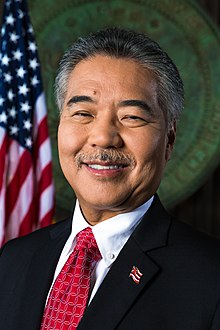
- STATE NICKNAME
- Aloha State
- DATE OF ADMISSION
- Aug. 21, 1959
- STATE MOTTO
- "Ua Mau Ke Ea O Ka Aina I Ka Pono (The Life of the Land Is Perpetuated in Righteousness)"
- STATE BIRD
- nene (Hawaiian goose)
- STATE FLOWER
- yellow hibiscus
- STATE SONG
- “Hawai’i Pono’i”
- U.S. SENATORS
- Brian Schatz (Democrat)
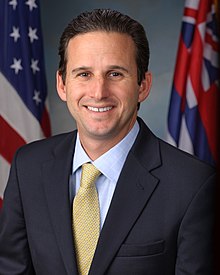
- Mazie Hirono (Democrat)

- SEATS IN U.S. HOUSE OF REPRESENTATIVES
- 2 (of 435)
- TIME ZONE
- Hawaiian (GMT − 10 hours)
- 1Excluding military abroad.
__________________________________________________

__________________________________________________
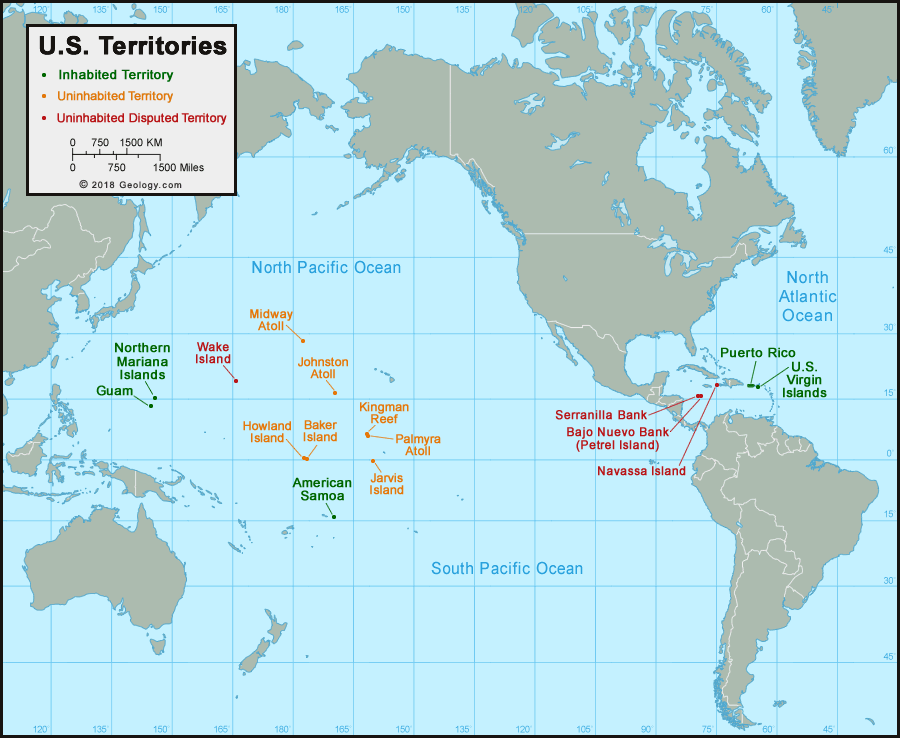

Midway Atoll Airport. ( Public airport ) The airport is used as an emergency diversion point for ETOPS operations.

Johnston Atoll Airport ( US military airport )

Howland Island airport - unused and not maintained

Baker Island

Kingman Reef
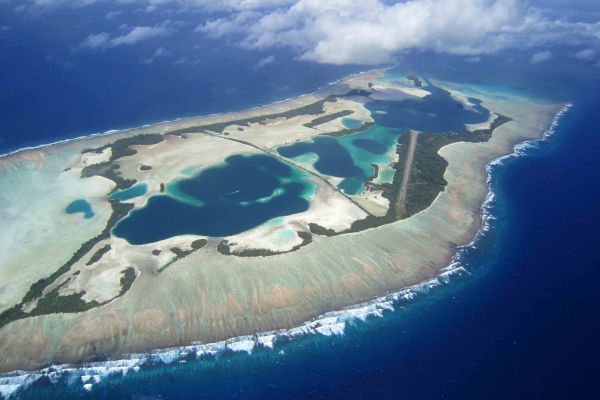
Palmyra (Cooper) Airport . Used during the 2nd World World

Jarvis Island
__________________________________________________
|
Easter Island
Rapa Nui
Isla de Pascua |
|
|---|---|
 |
|
|
|
|
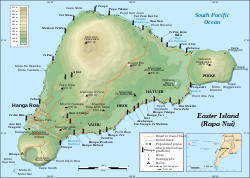
Easter Island map showing Terevaka, Poike, Rano Kau, Motu Nui, Orongo, and Mataveri; major ahus are marked with moai |
|
|
Easter Island in the Pacific Ocean |
|
| Coordinates: 27°7′S 109°22′W | |
| Country | Chile |
| Region | Valparaíso |
| Province | Isla de Pascua |
| Commune | Isla de Pascua |
| Seat | Hanga Roa |
| Government | |
| • Type | Municipality |
| • Body | Municipal council |
| • Provincial Governor |
|
| • Alcalde | Pedro Edmunds Paoa(PRO) |
| Area | |
| • Total | 163.6 km2(63.2 sq mi) |
| Highest elevation | 507 m (1,663 ft) |
| Lowest elevation | 0 m (0 ft) |
| Population
(2017 census) |
|
| • Total | 7,750[1] |
| Time zone | UTC−6 (CLT) |
| • Summer (DST) | UTC−5 (CLST) |
| Country Code | +56 |
| Currency | Peso (CLP) |
| Language | Spanish, Rapa Nui |
| Website | Municipality of Isla de Pascua |
| NGA UFI=-905269 | |
__________________________________________________
Name of Country
Travel to Hawaii
1.XXX
2.XXX
3.XXX
4.XXX
5.XXX
6.XXX
7.XXX
8.XXX
9.XXX
10.XXX
______________________________________________
1. XXX
Capital :
Population :
_____________________________________________
_____________________________________________
2. XXX
XXX
Airport picture
xxx
View of the city picture
Capital : xxx
The main mosque in xxx picture
xxx
_____________________________________________
___________________________________________
3. XXX
_____________________________________________
____________________________________________
4. XXX
_____________________________________________
___________________________________________
5. XXX
_____________________________________________
___________________________________________
6. XXX
_____________________________________________
__________________________________________
7. XXX
_____________________________________________
_________________________________________
8. XXX
_____________________________________________
_________________________________________
9. XXX
_____________________________________________
_________________________________________
10. XXX
_________________________________________
_________________________________________
xxx
_________________________________________
back to top
_________________________________________
xxx
_________________________________________
back to top
_________________________________________
_________________________________________
back to top
_________________________________________








